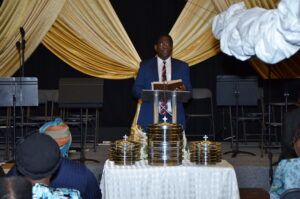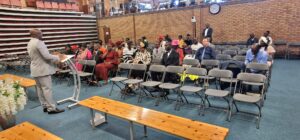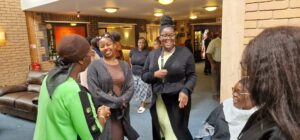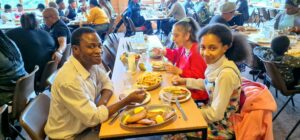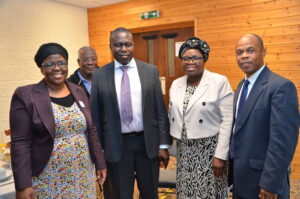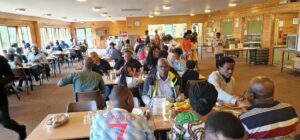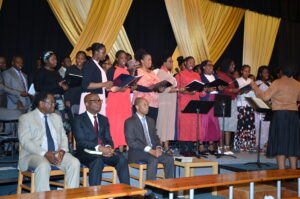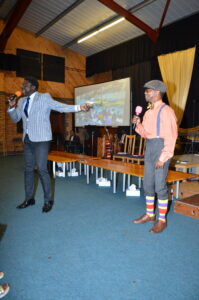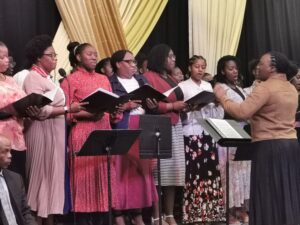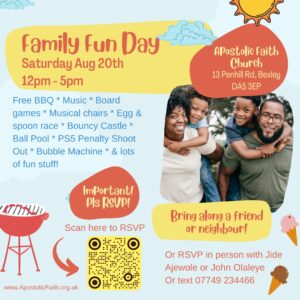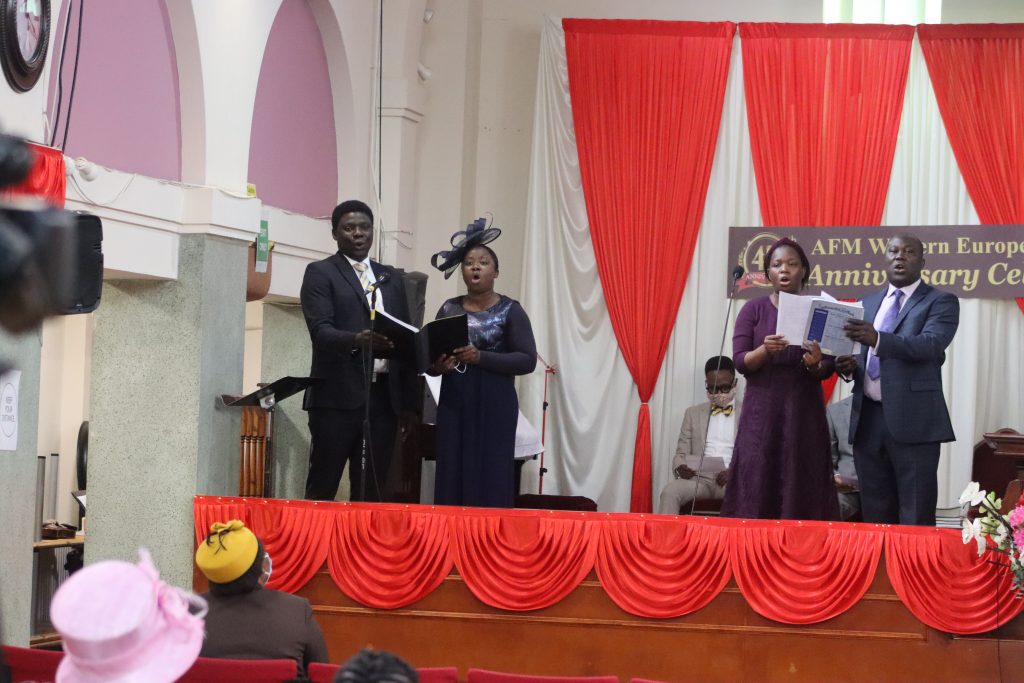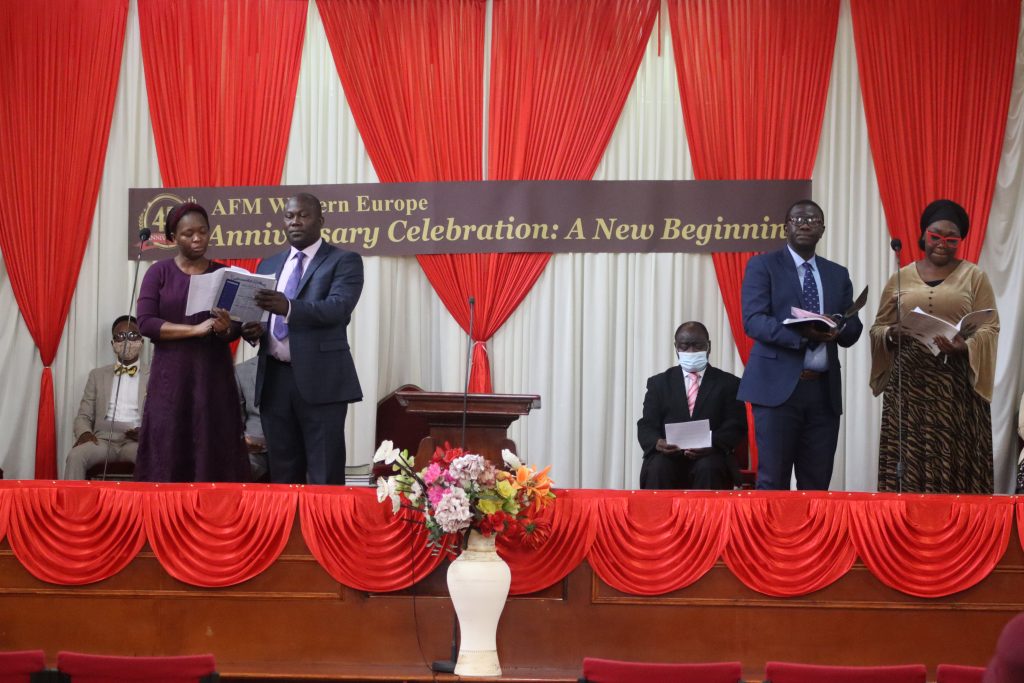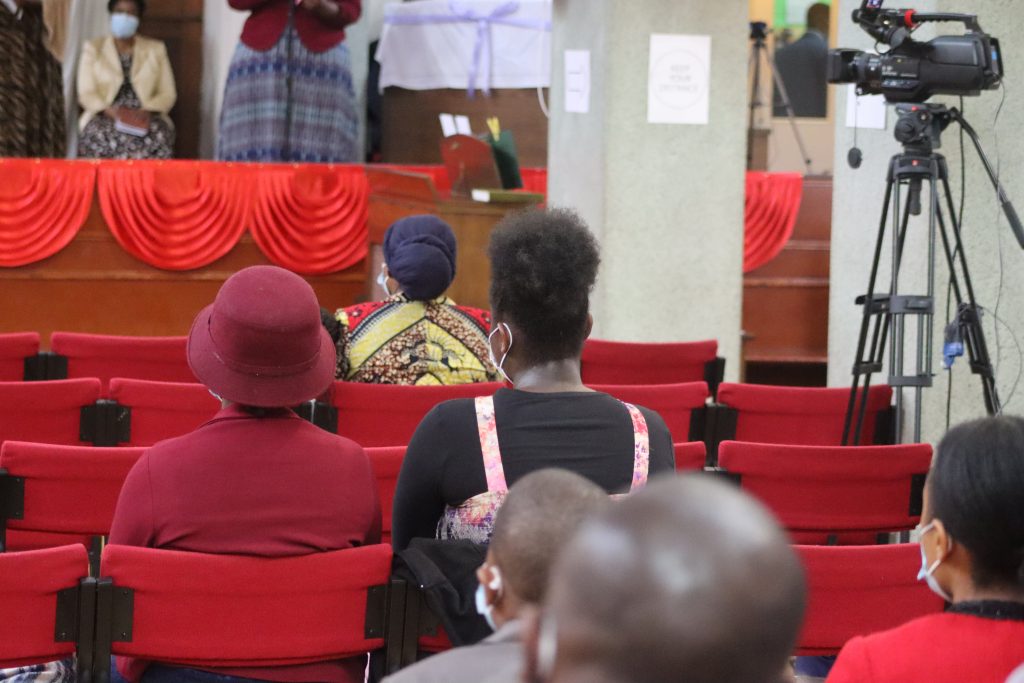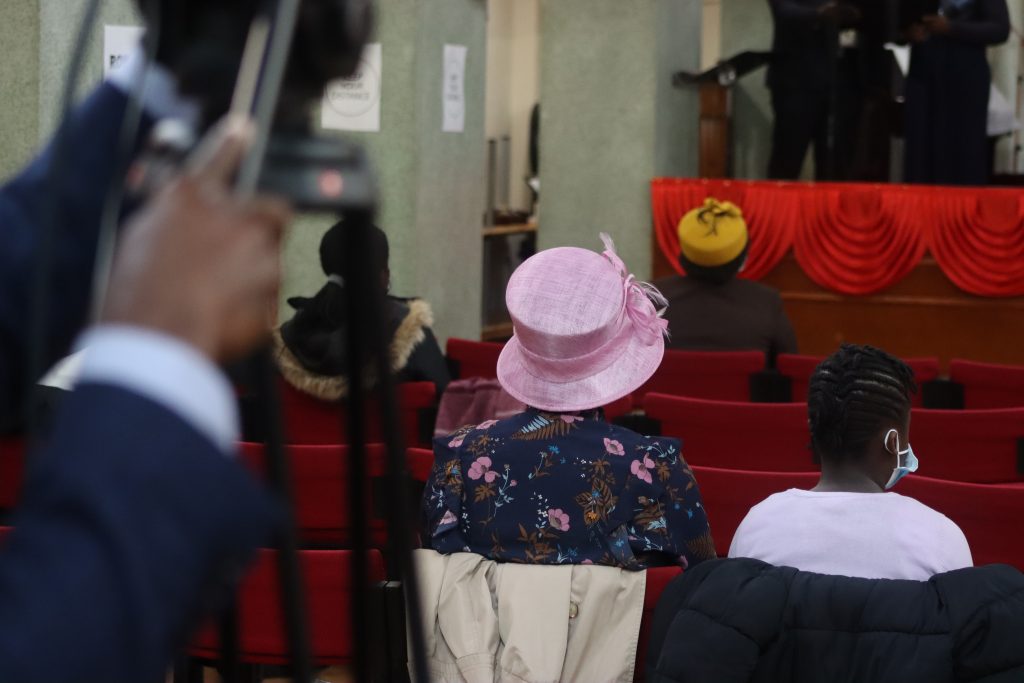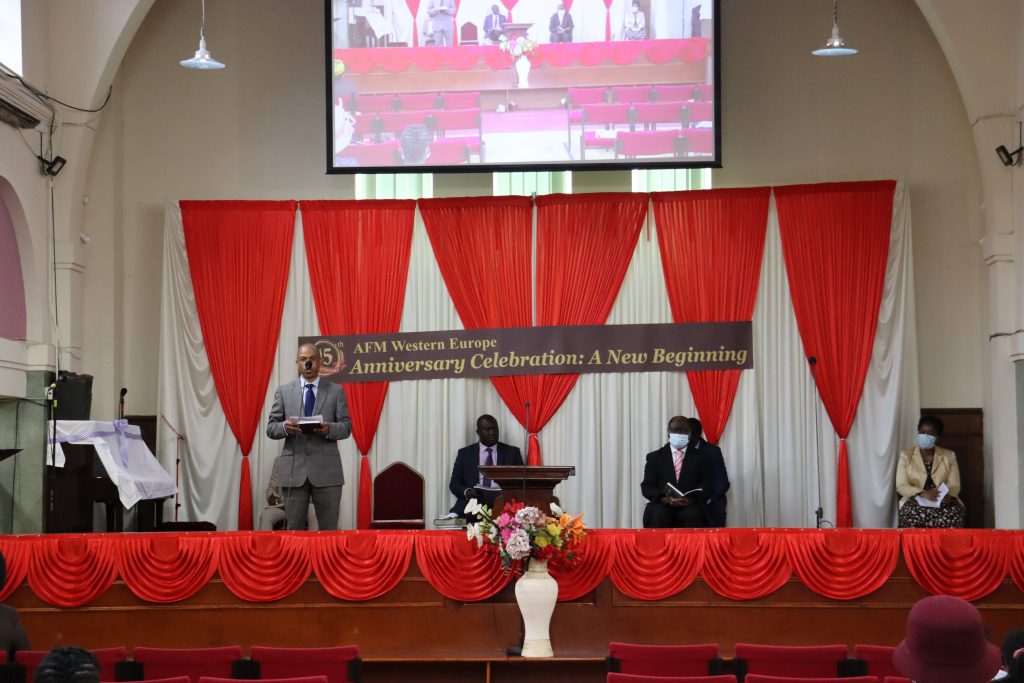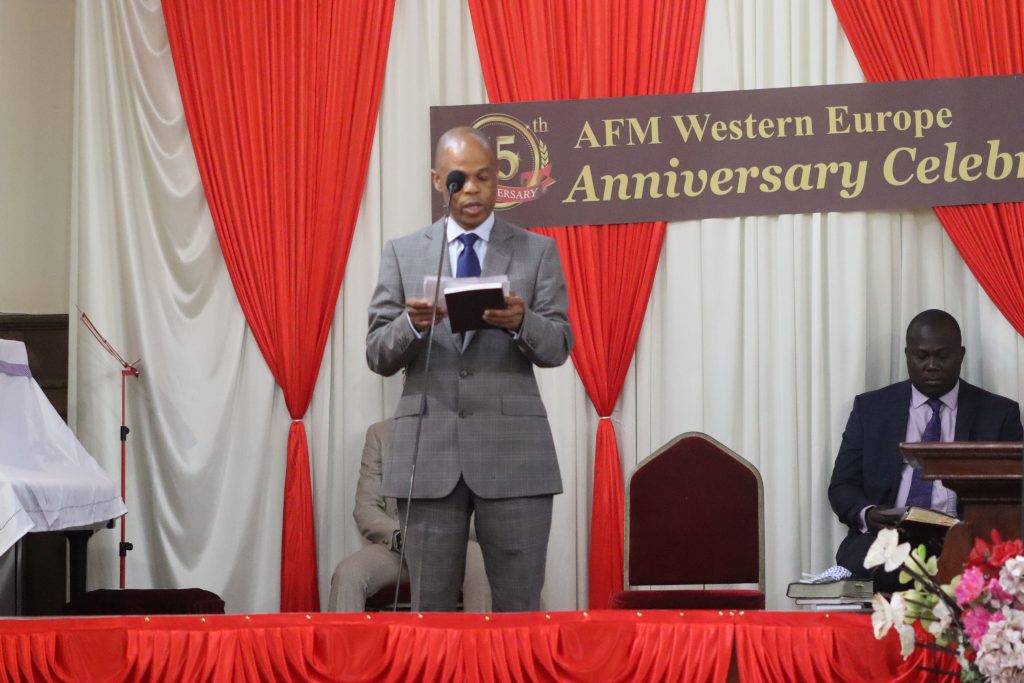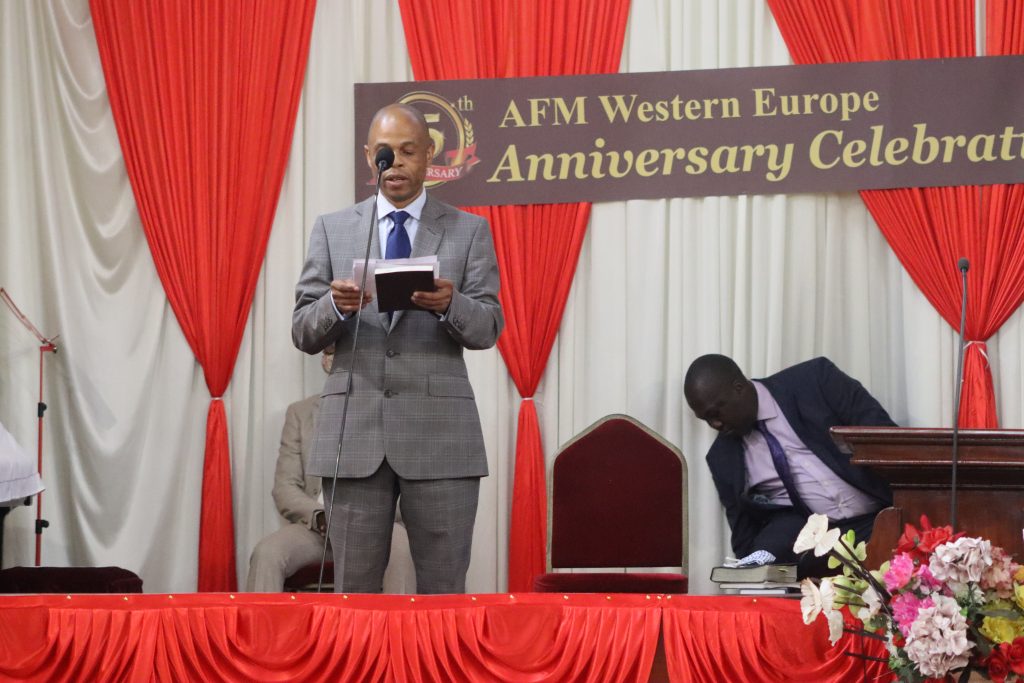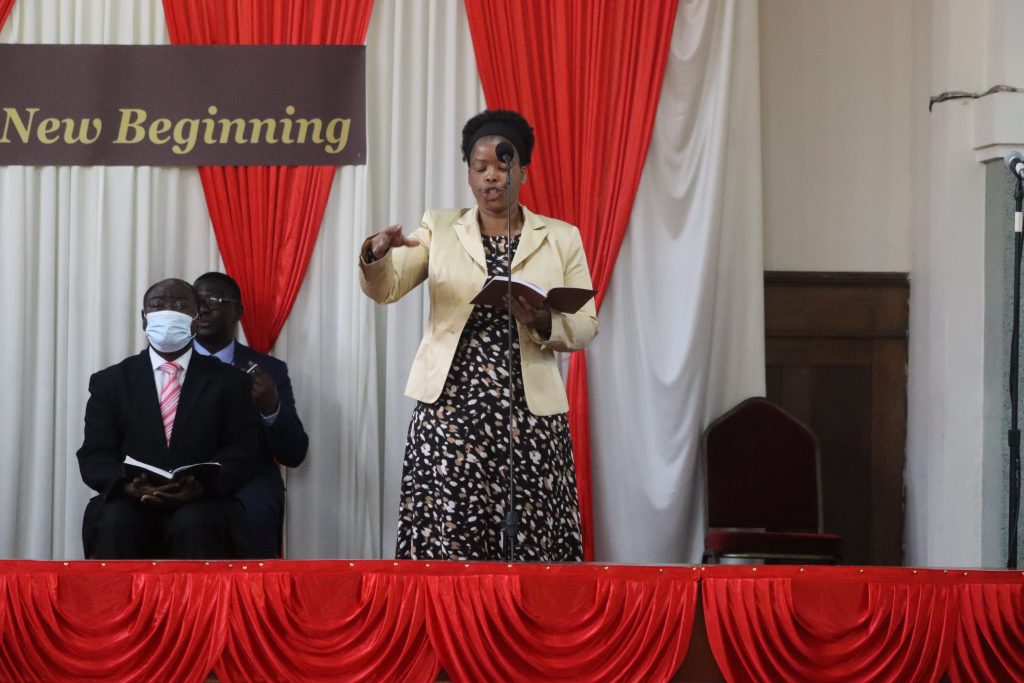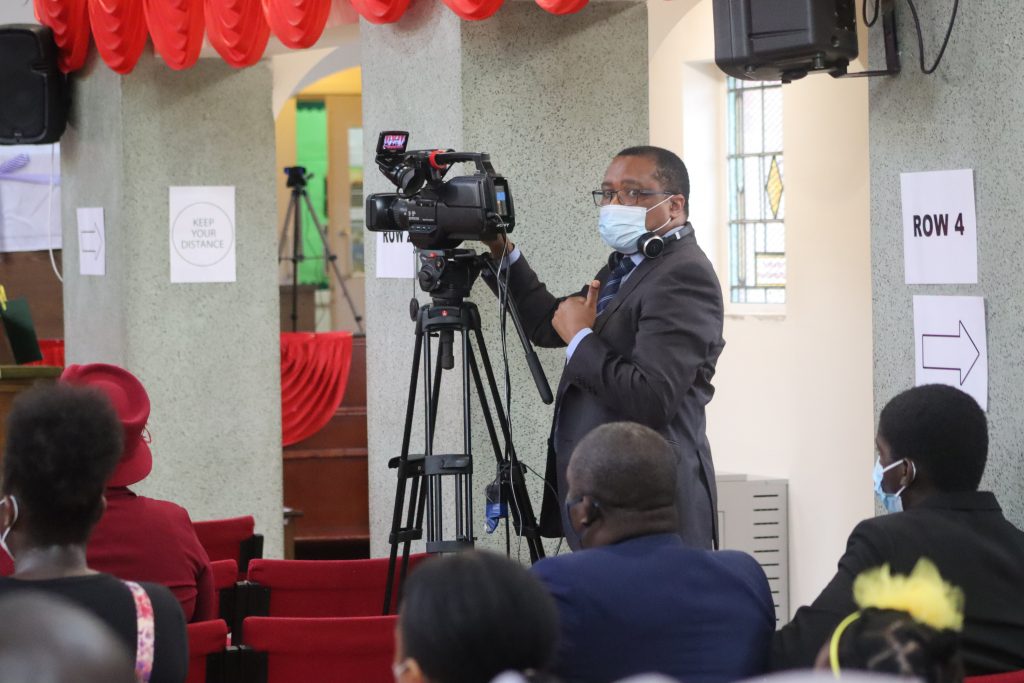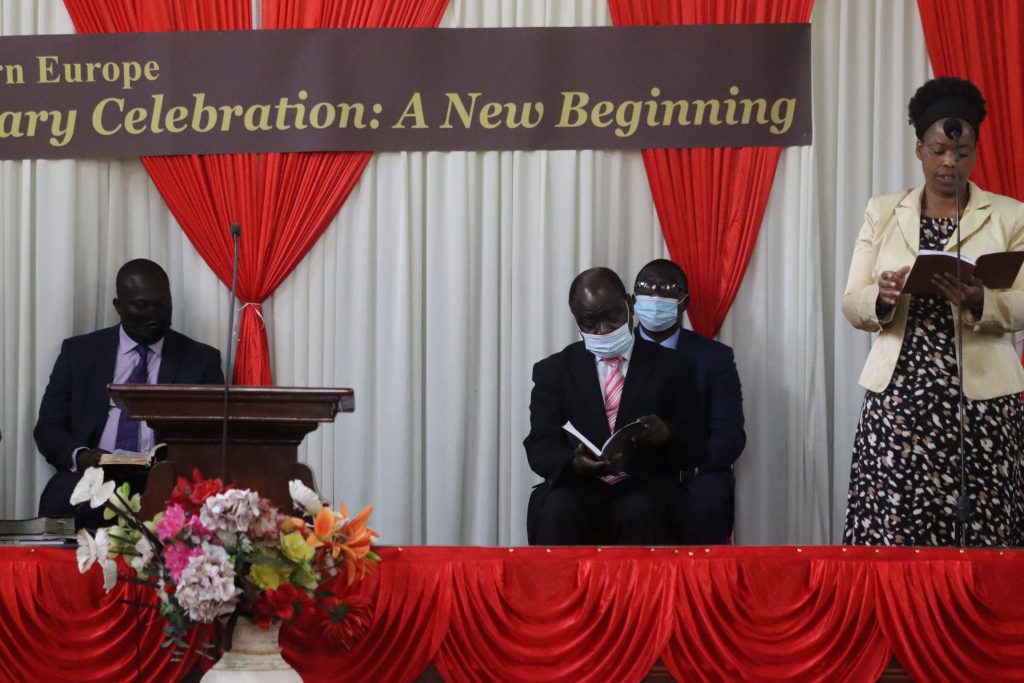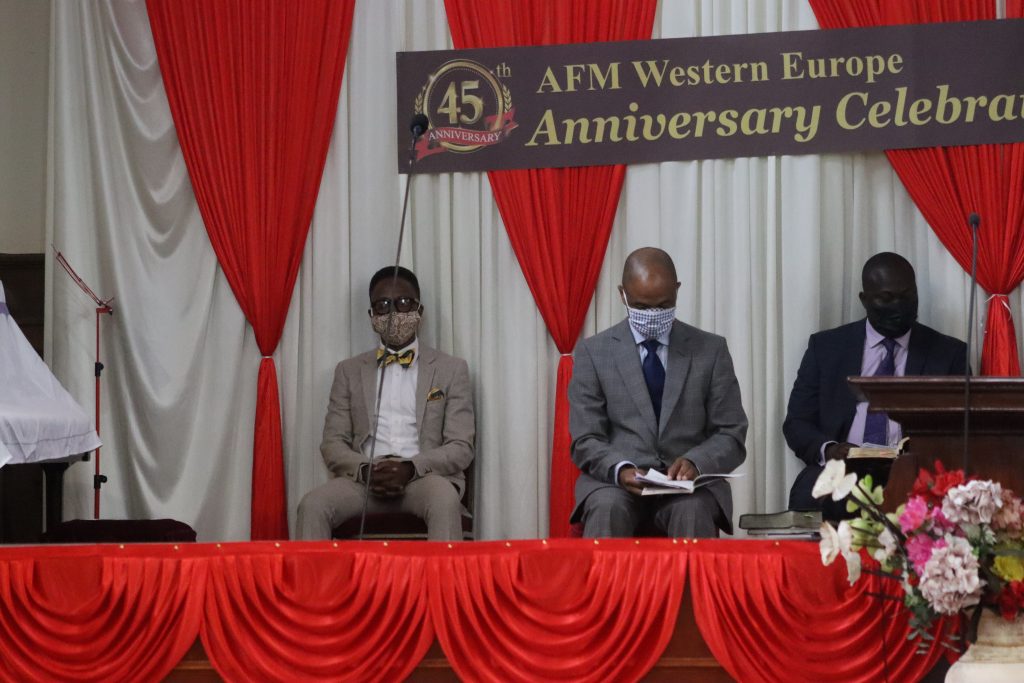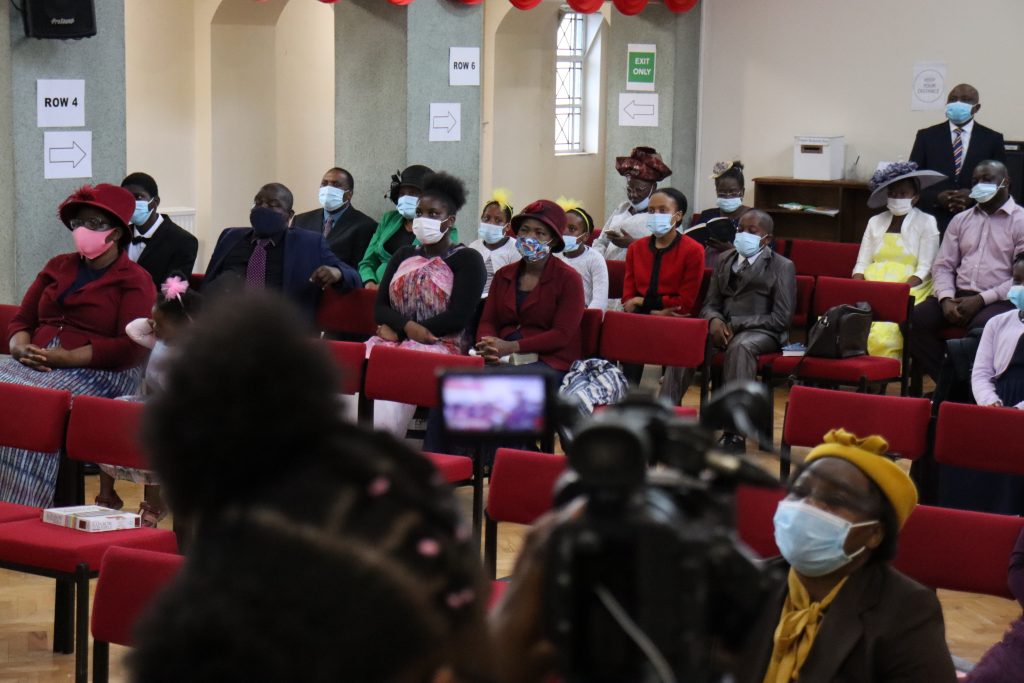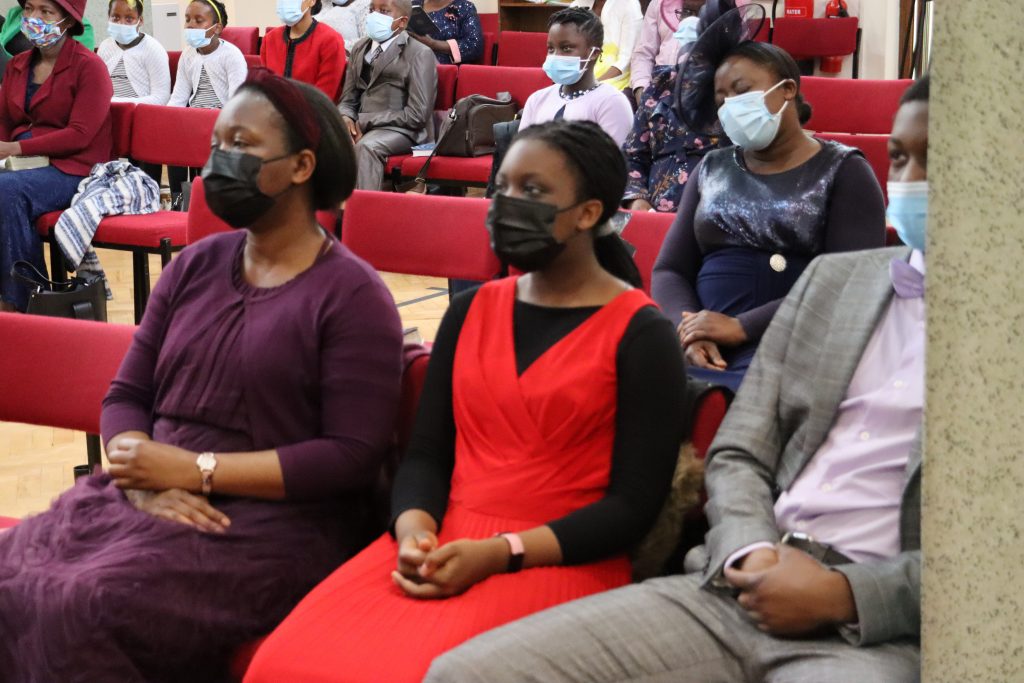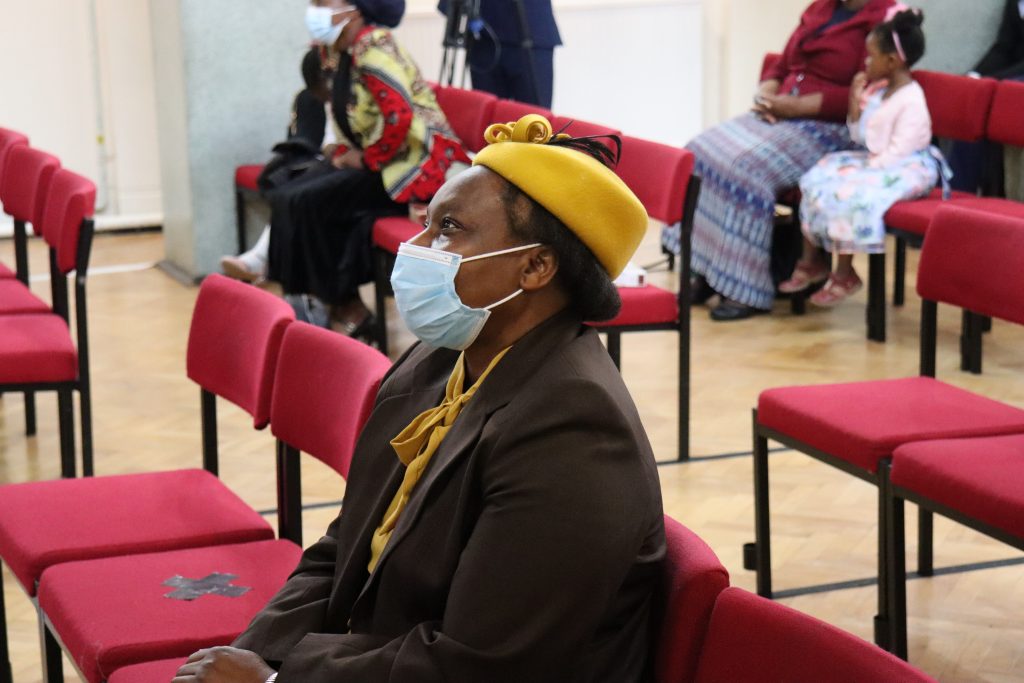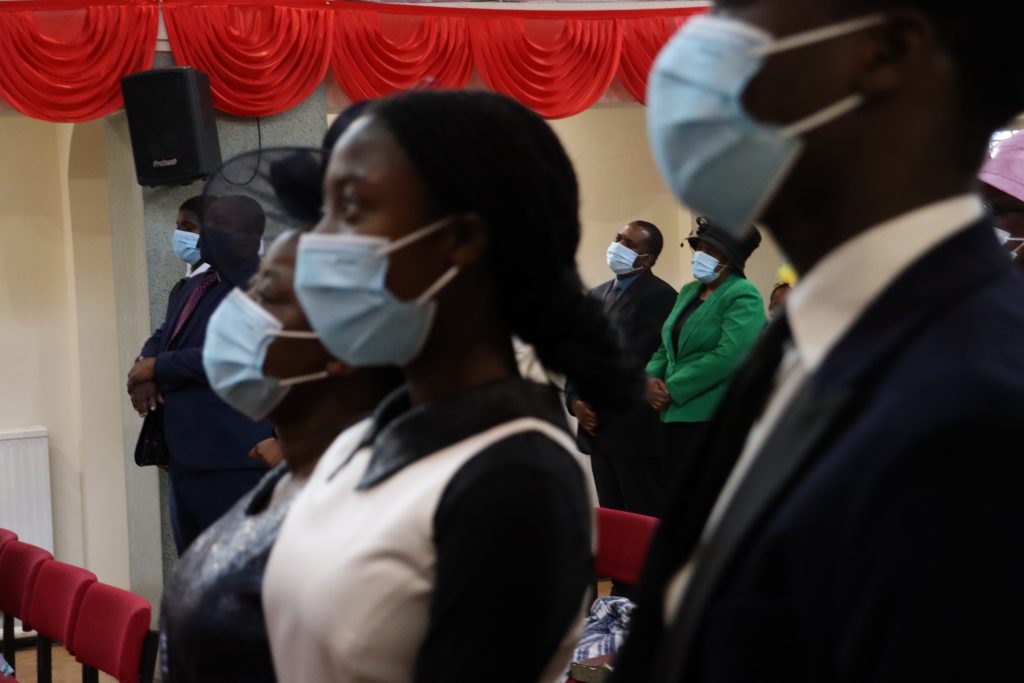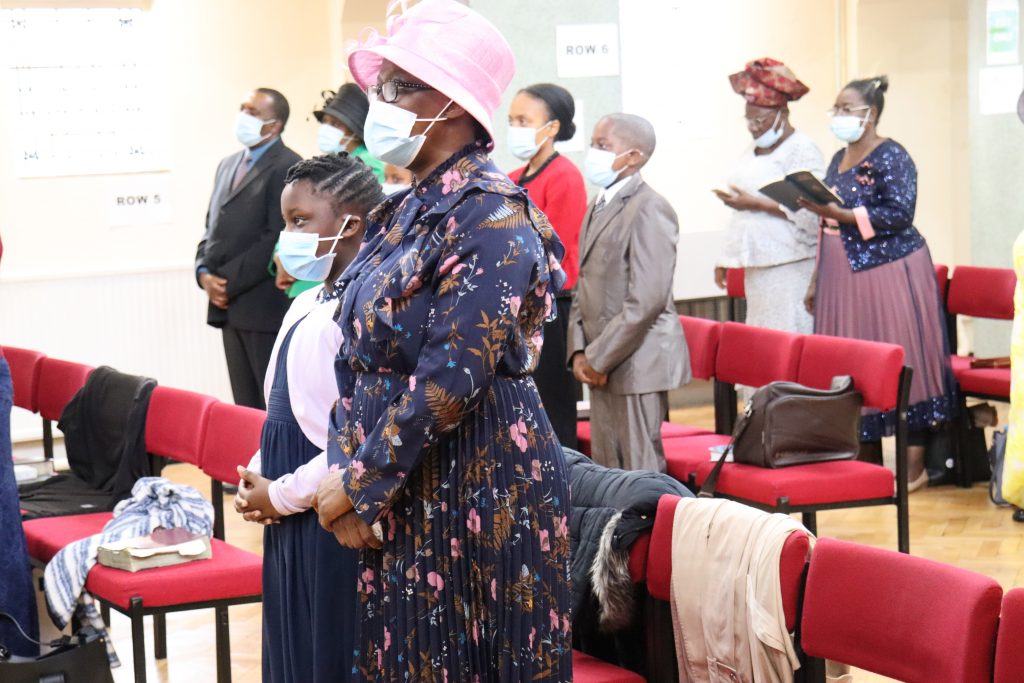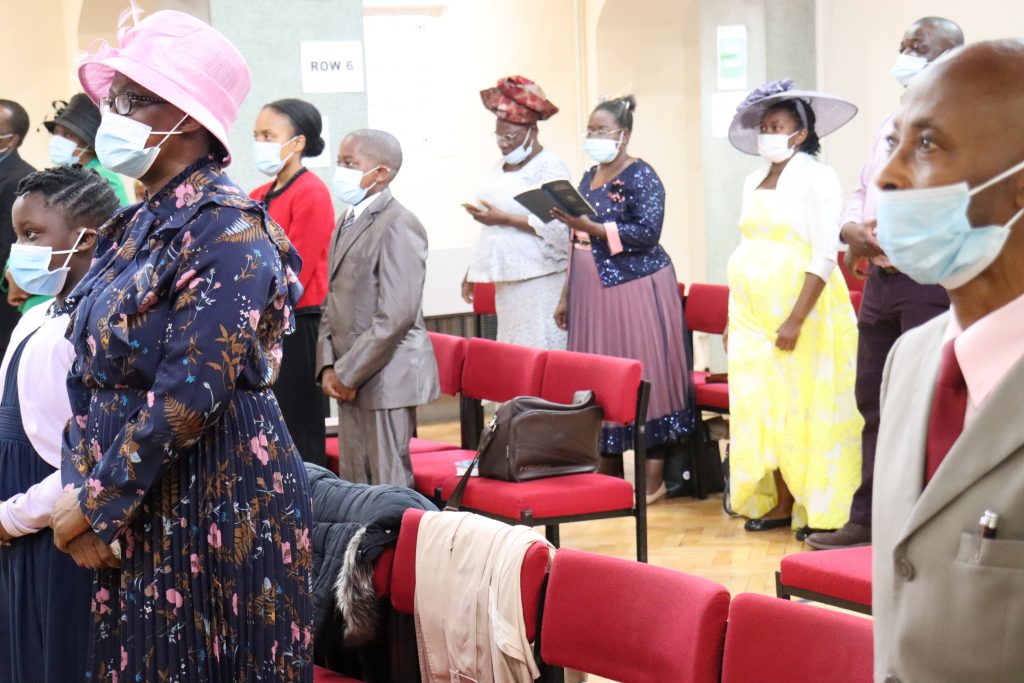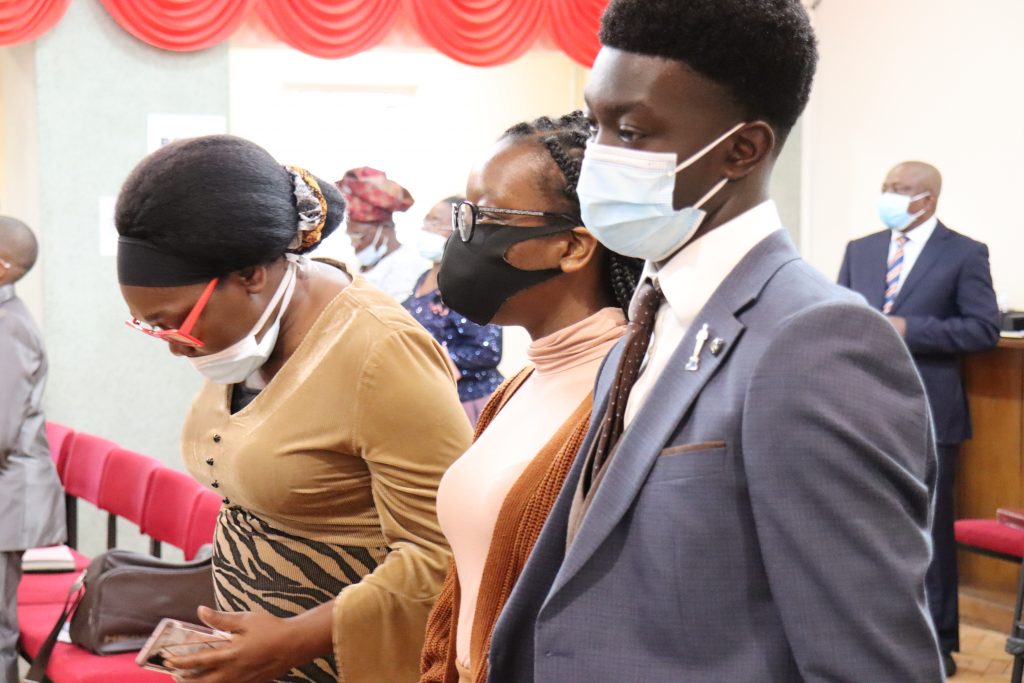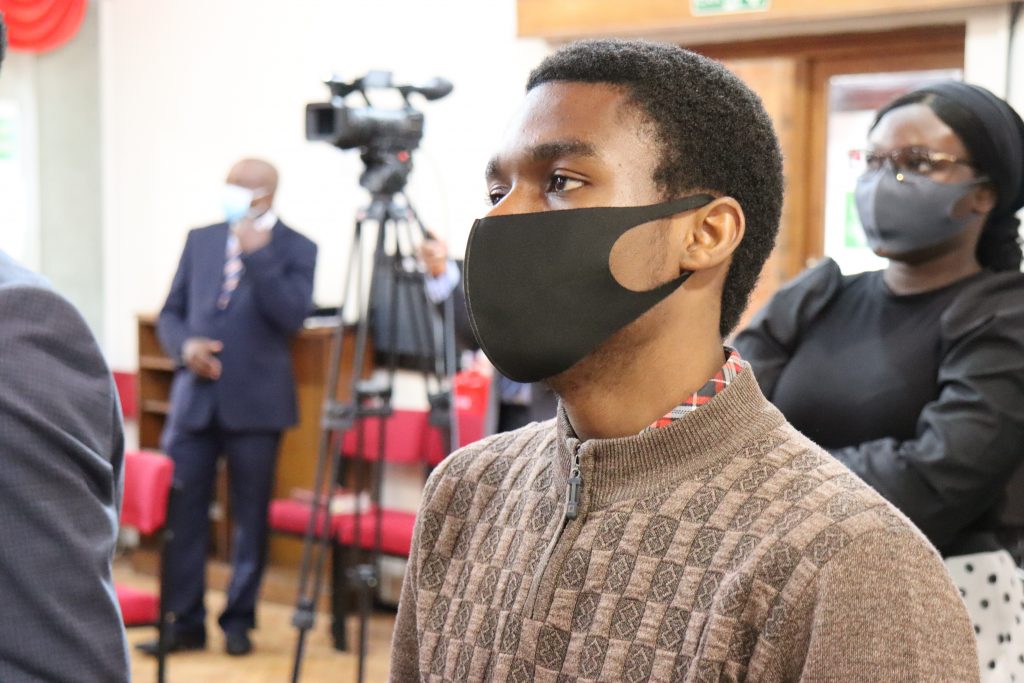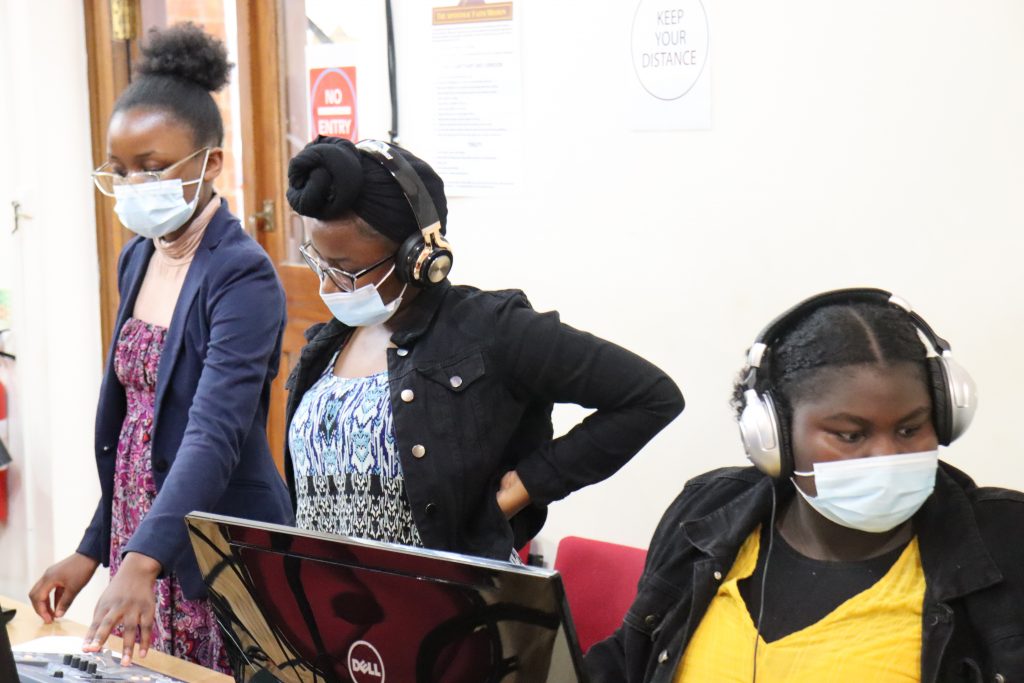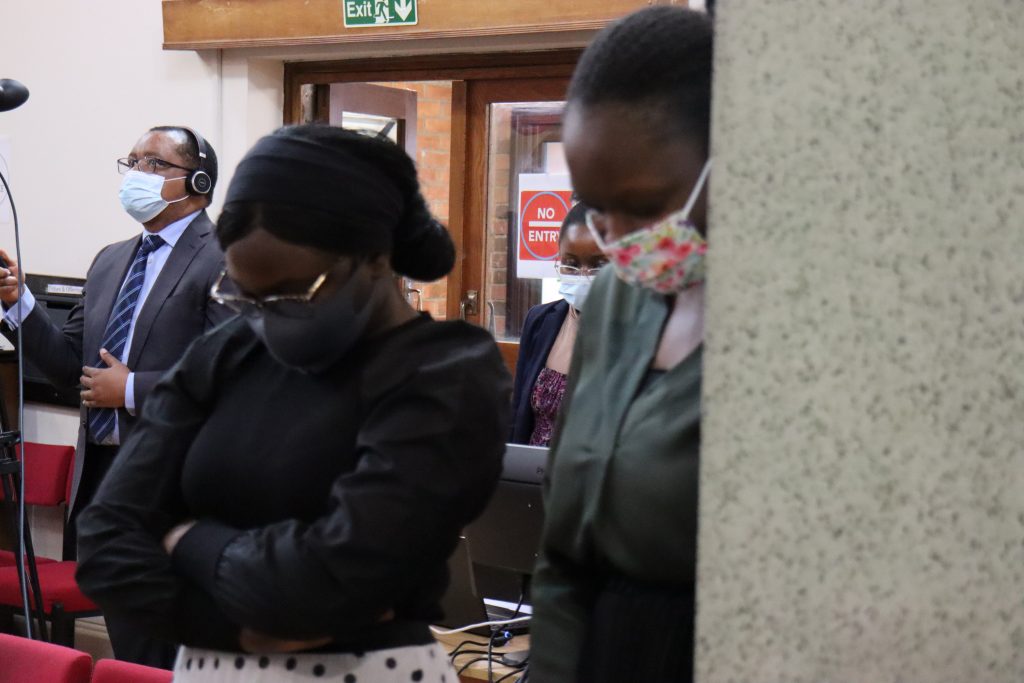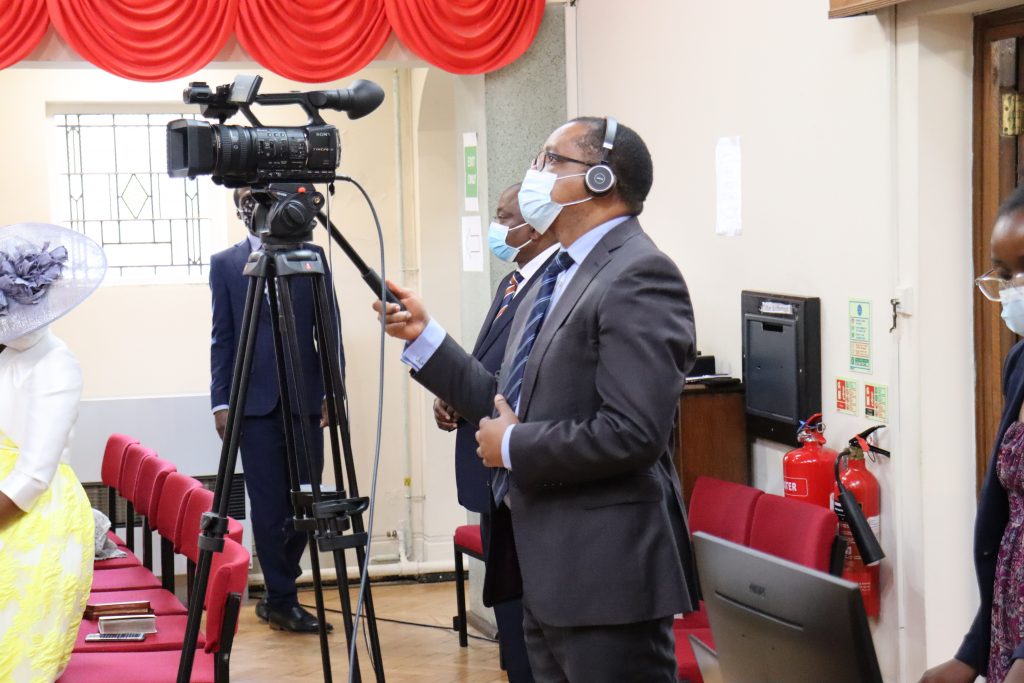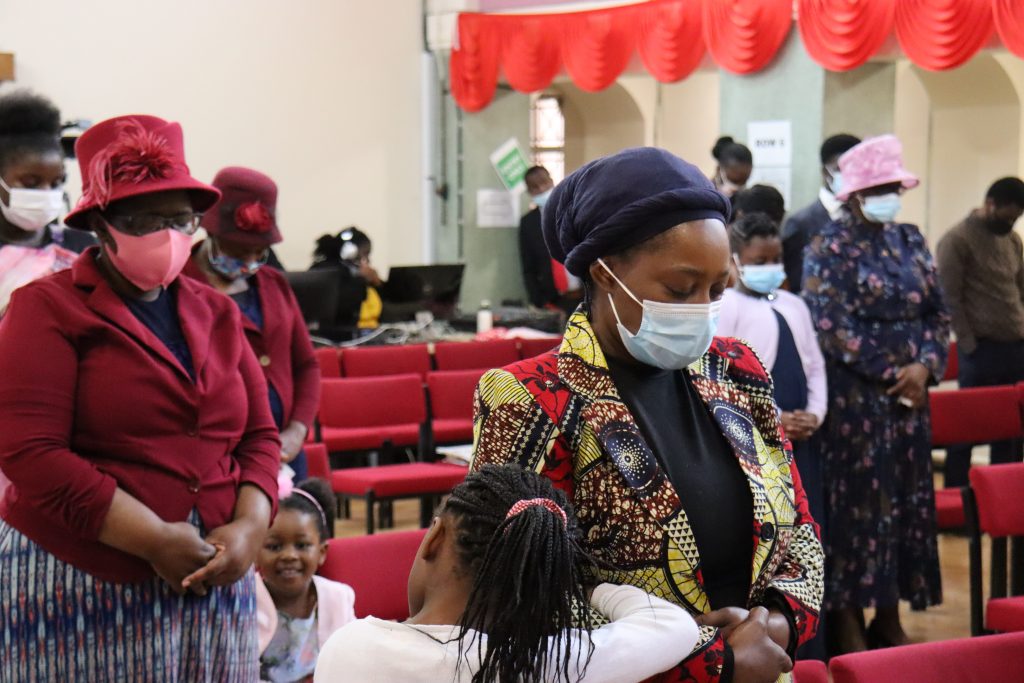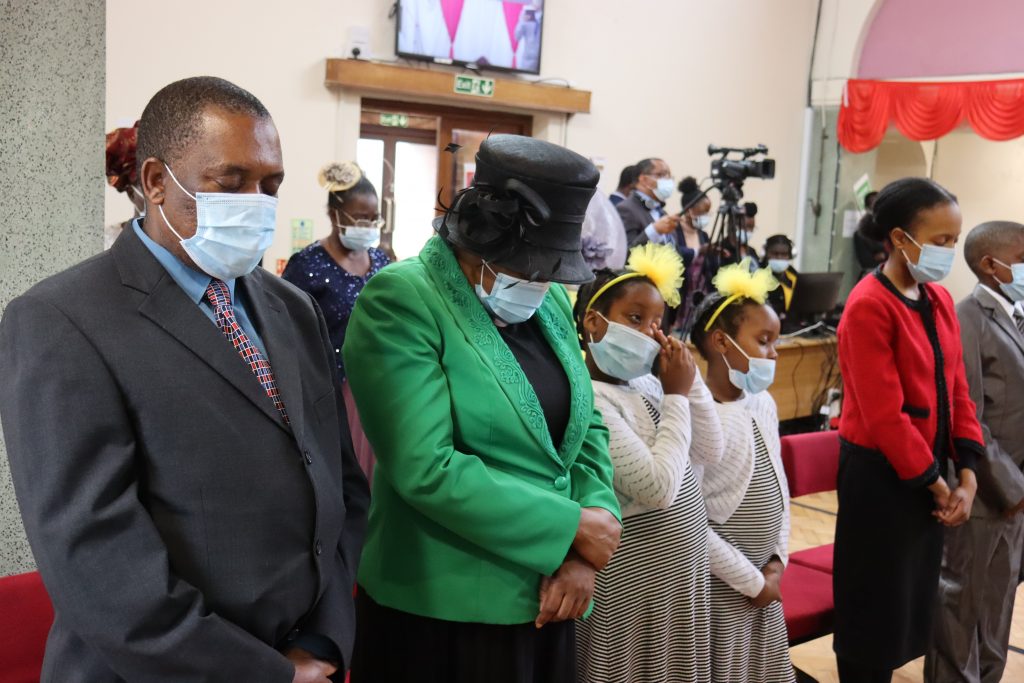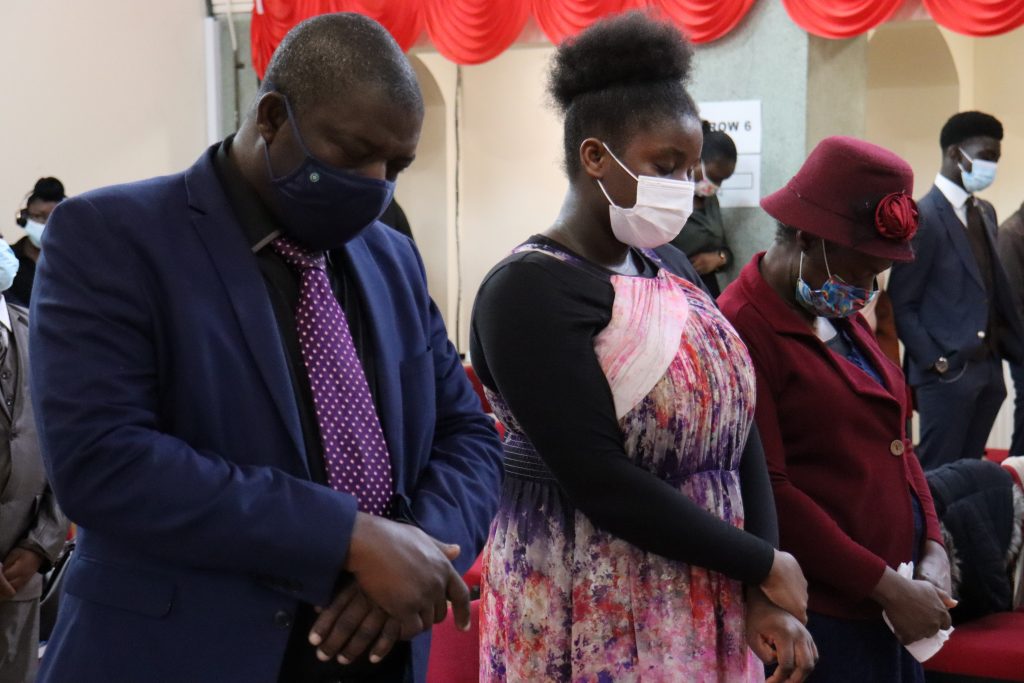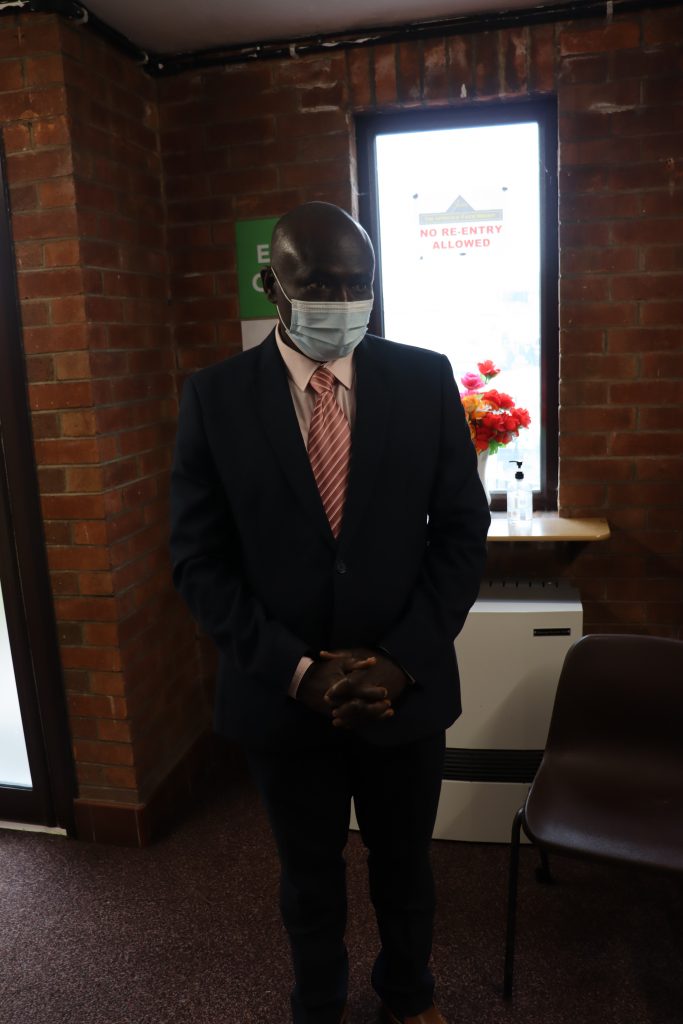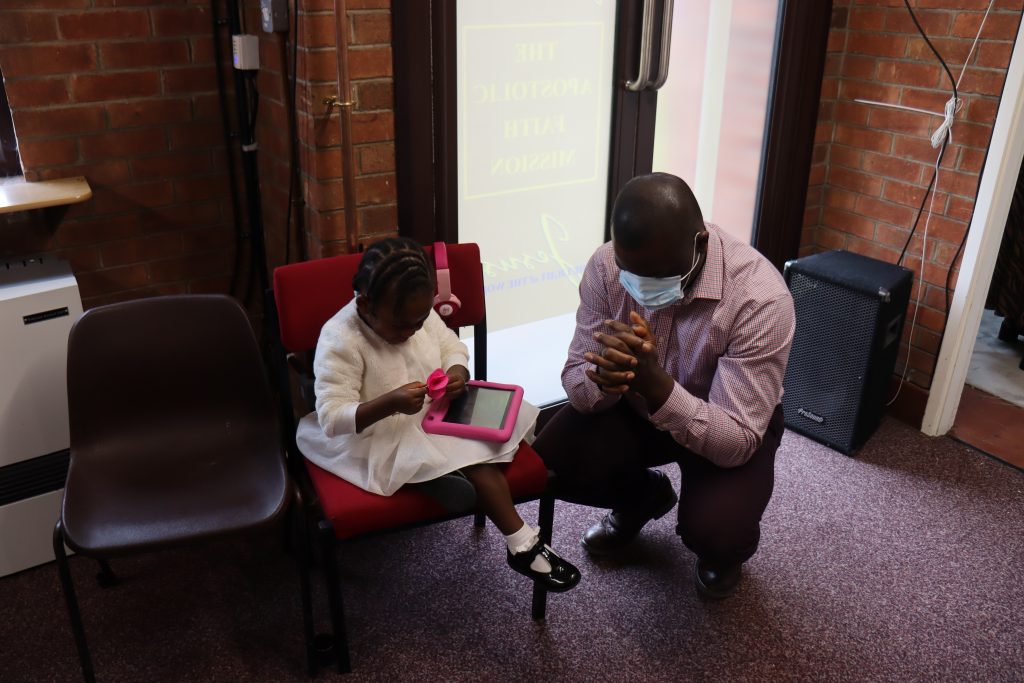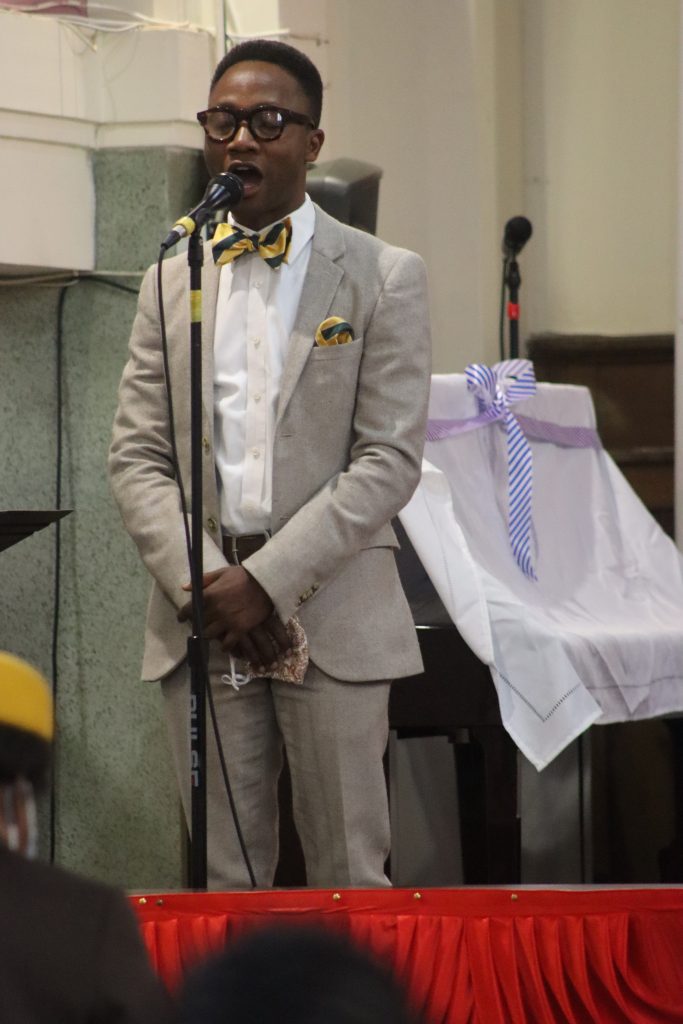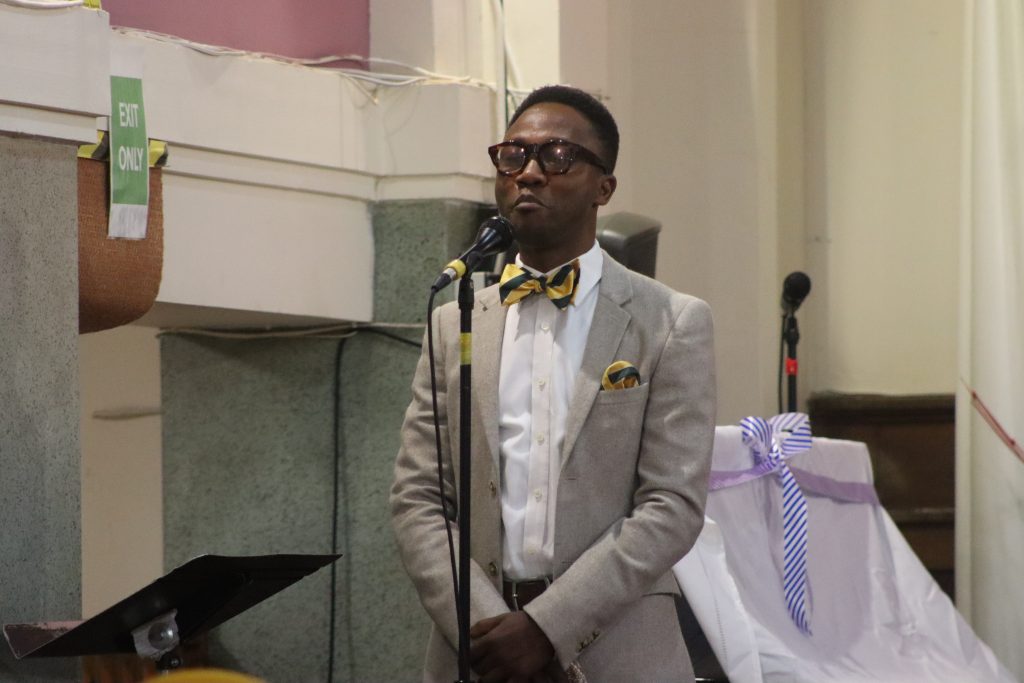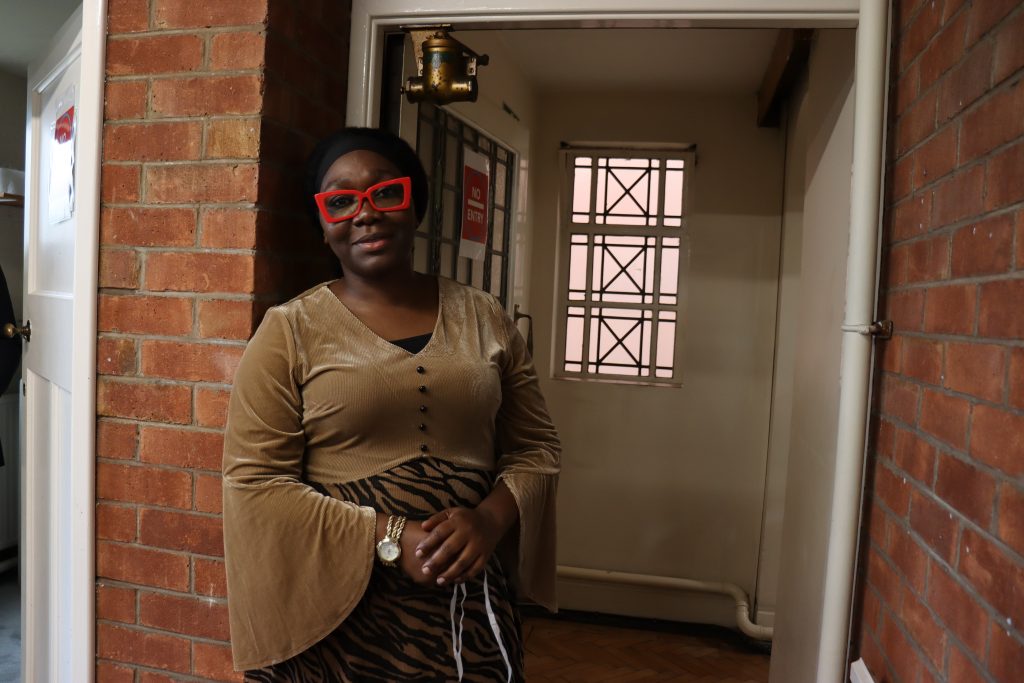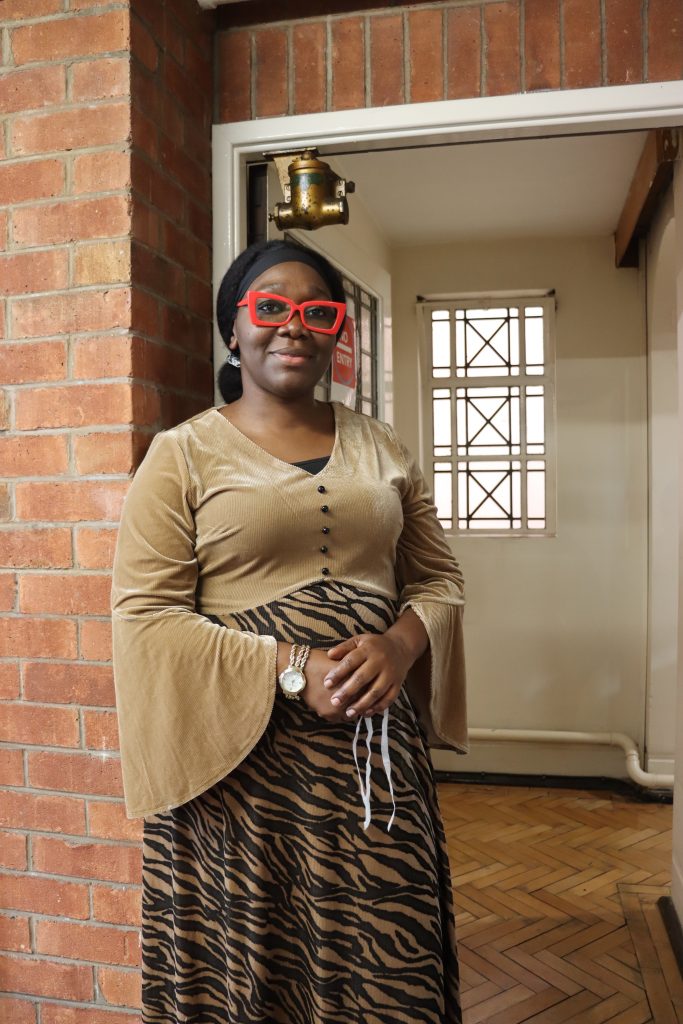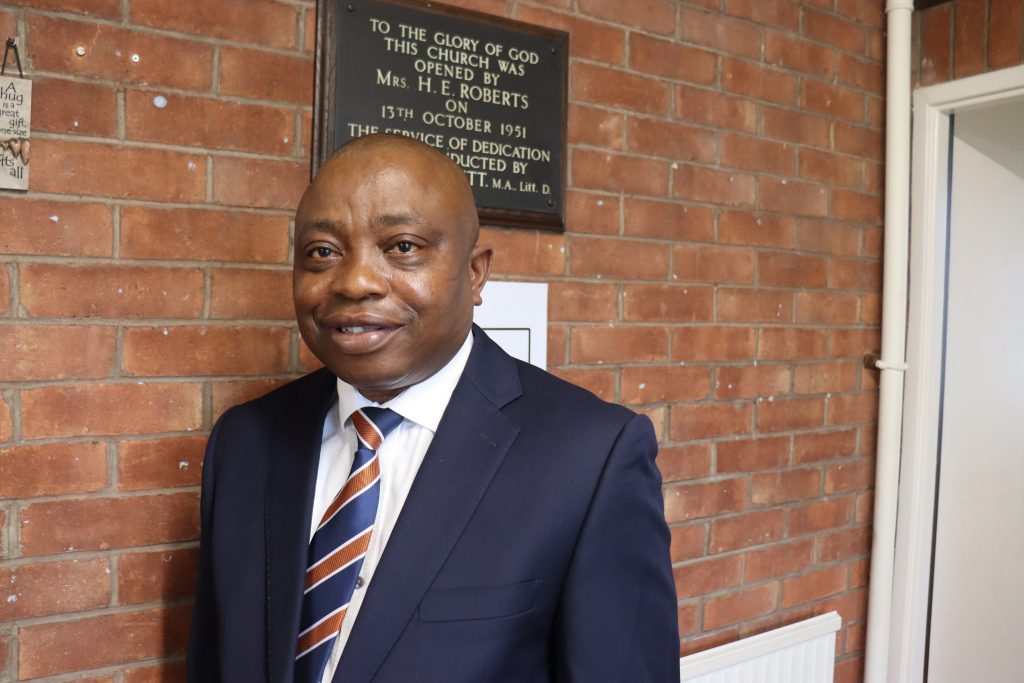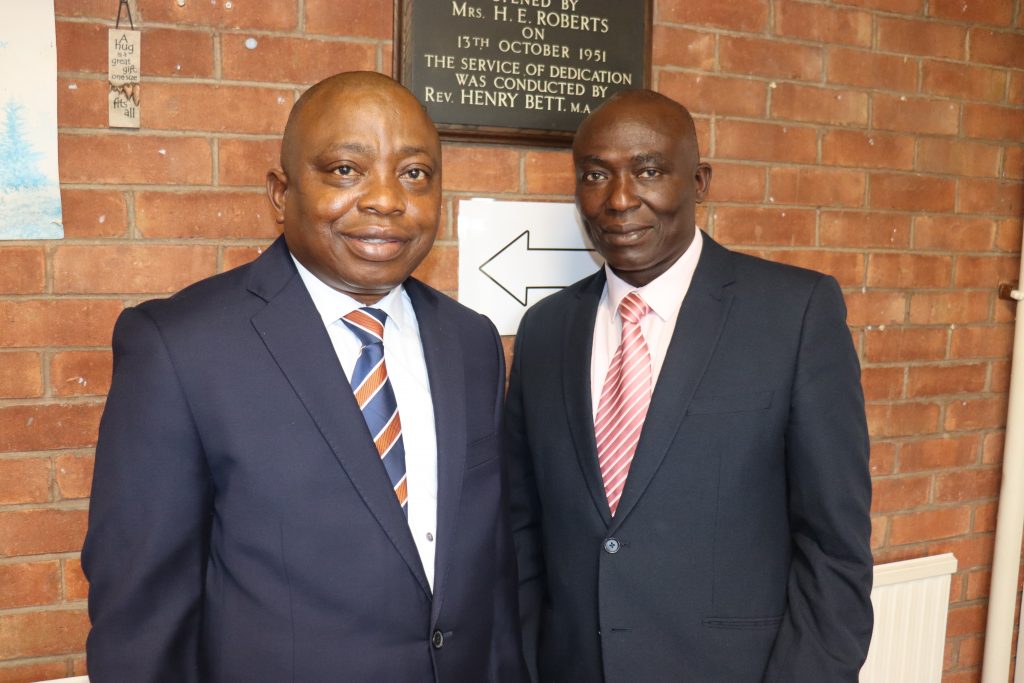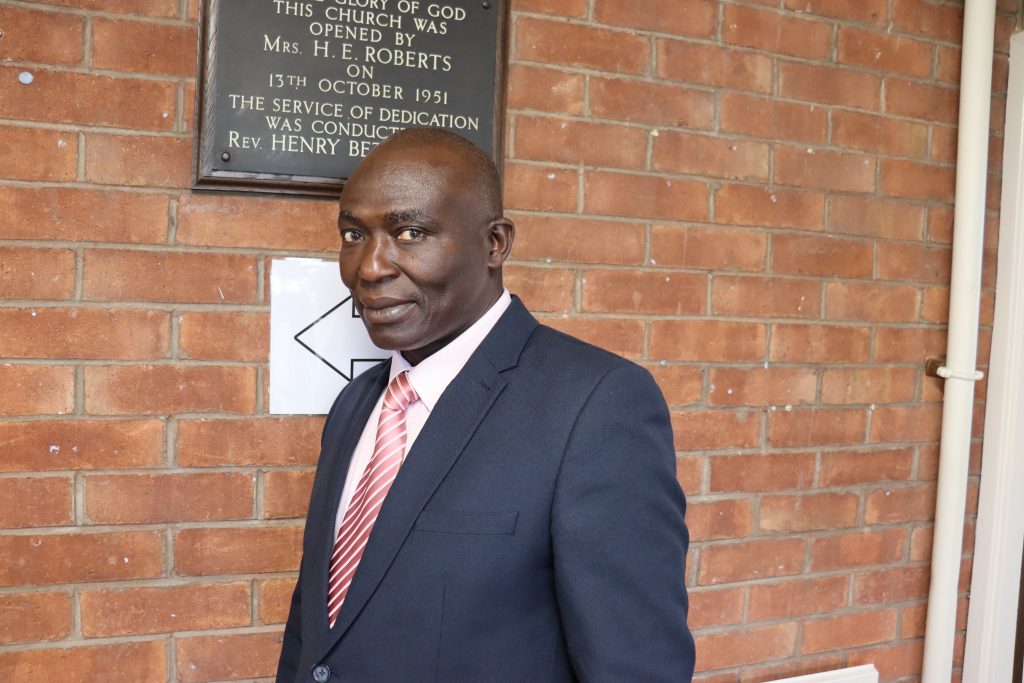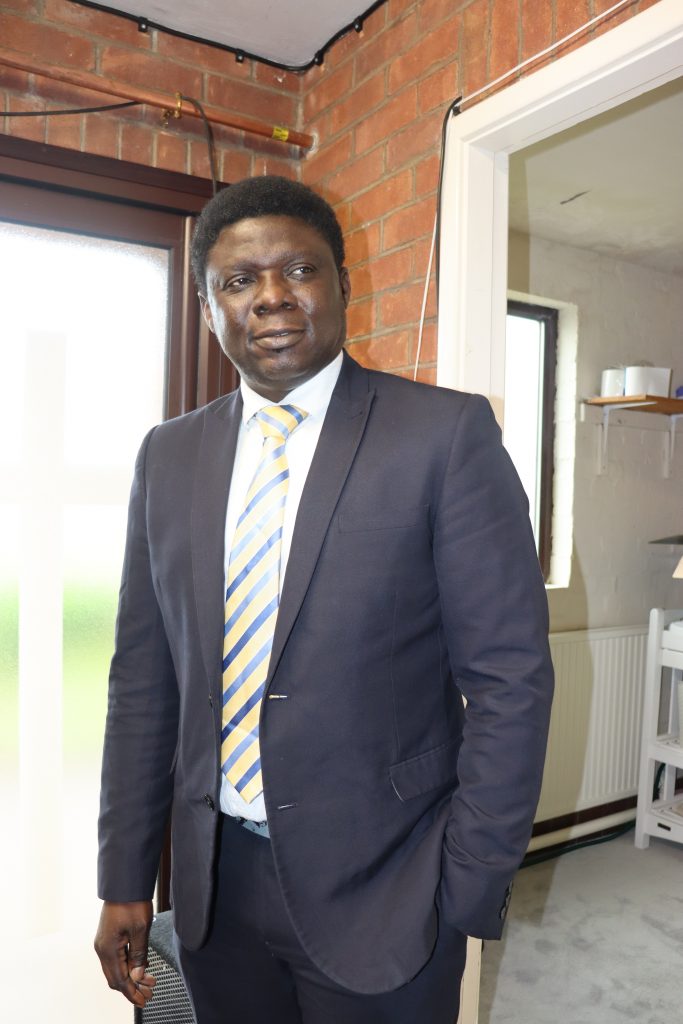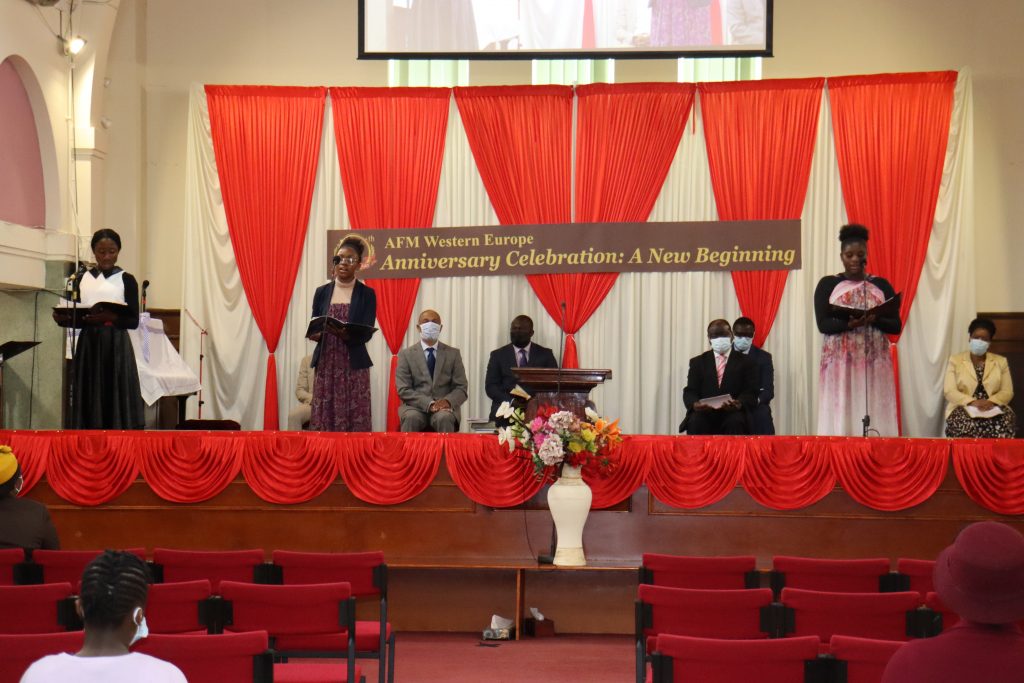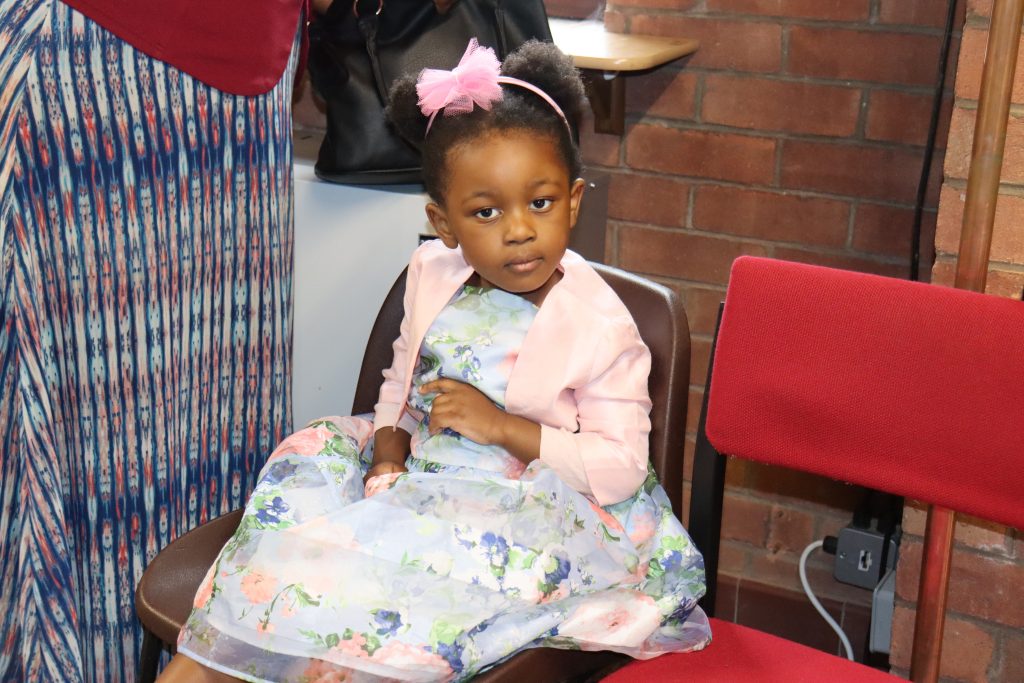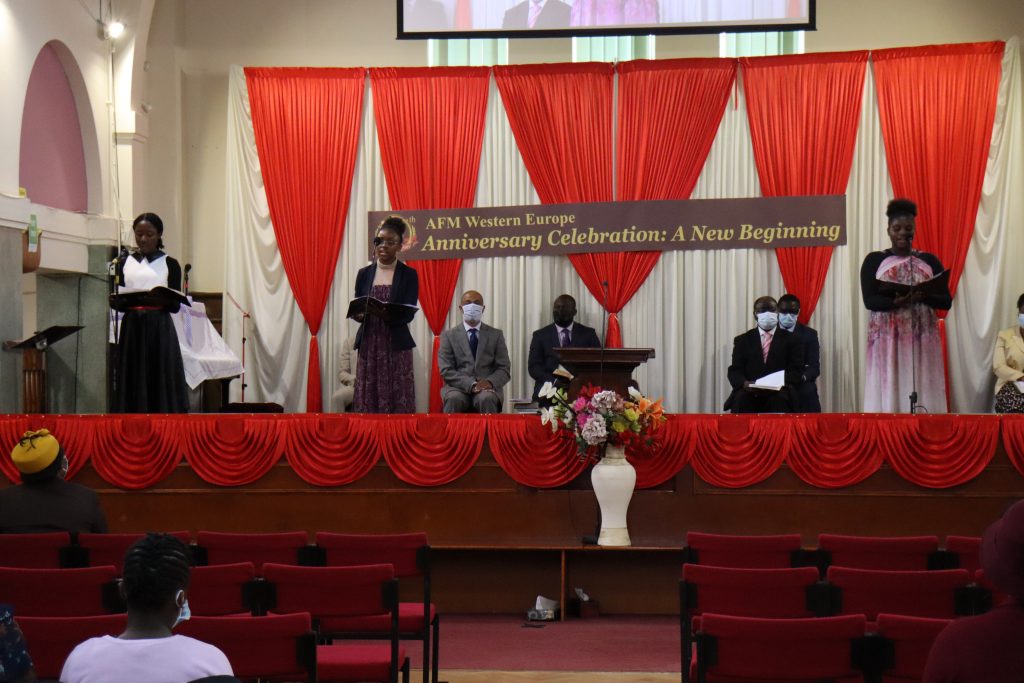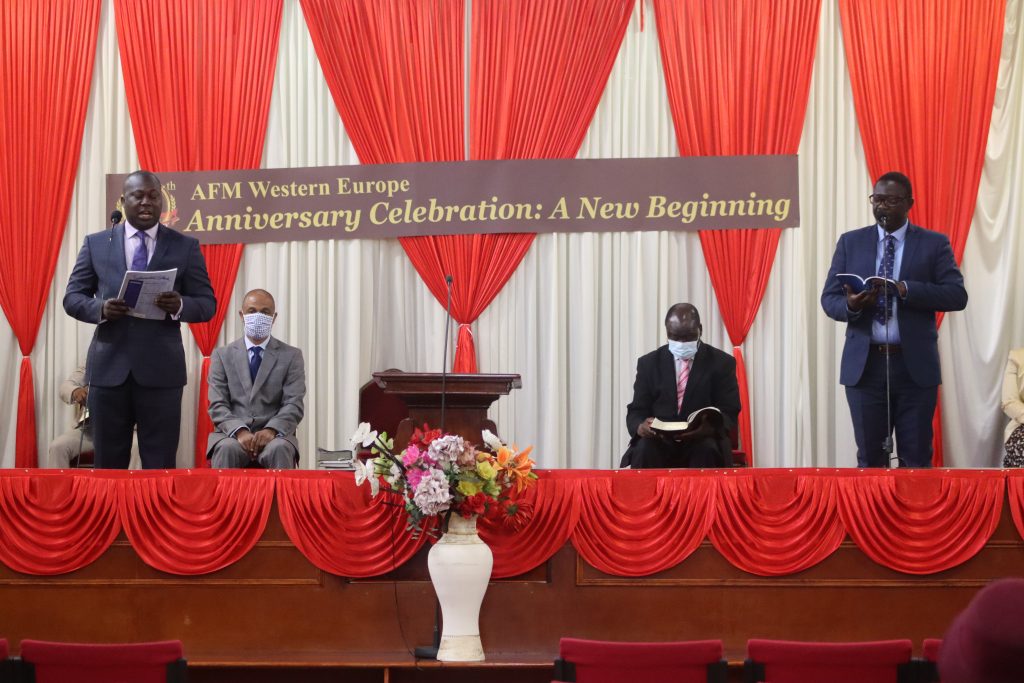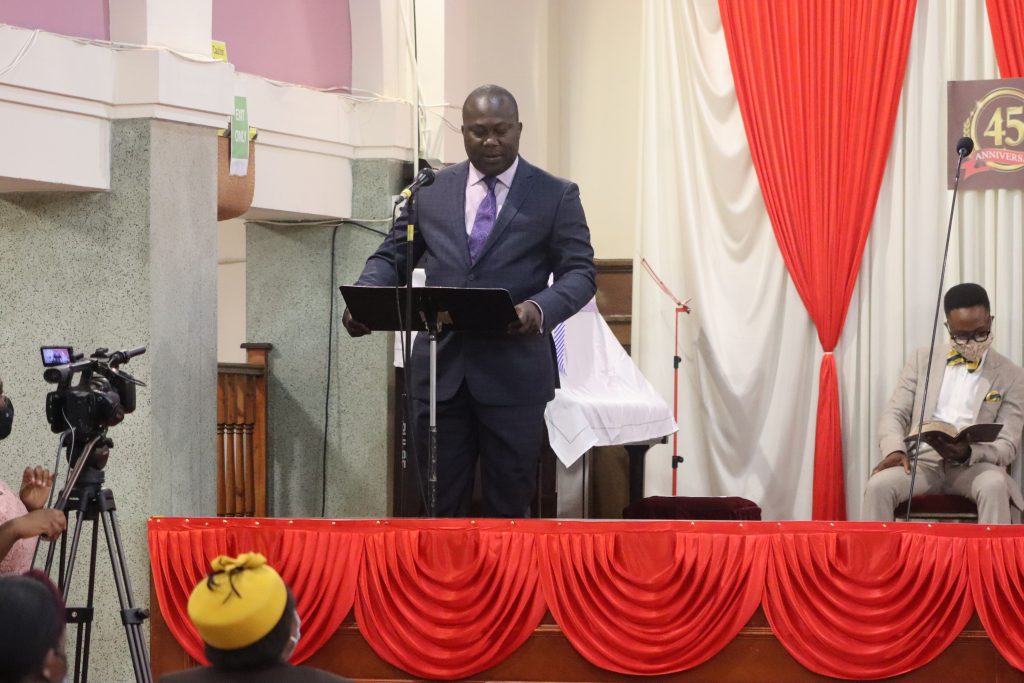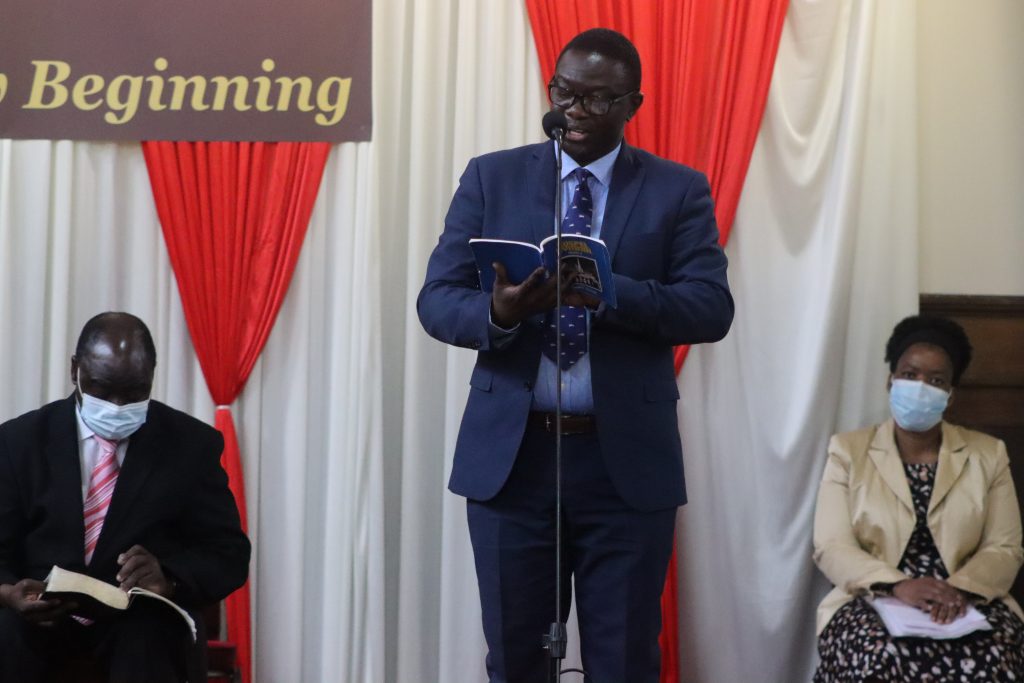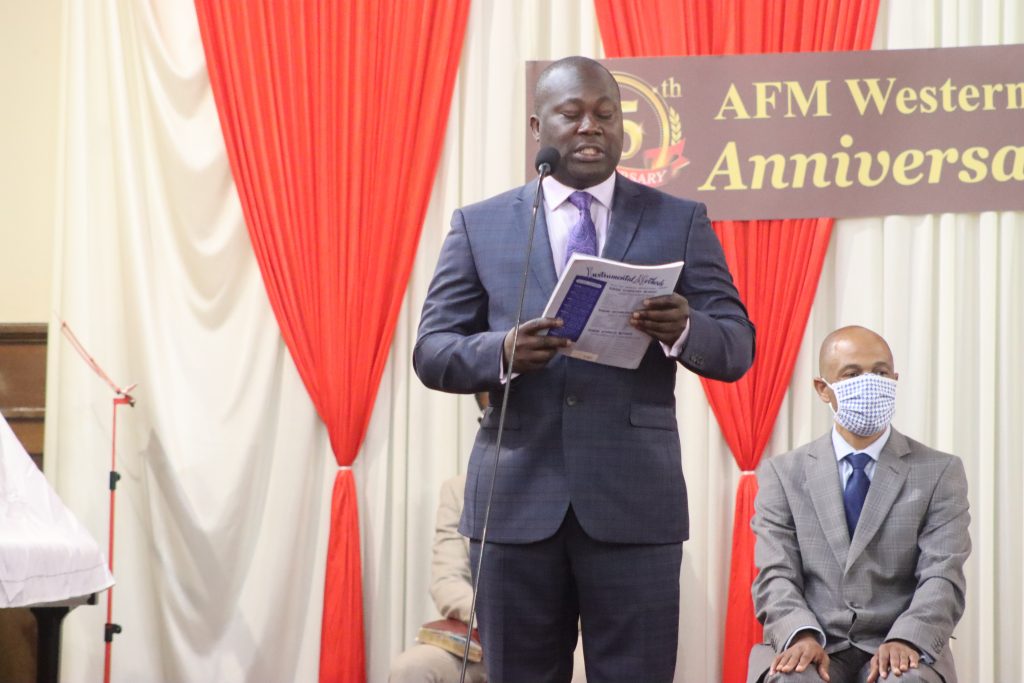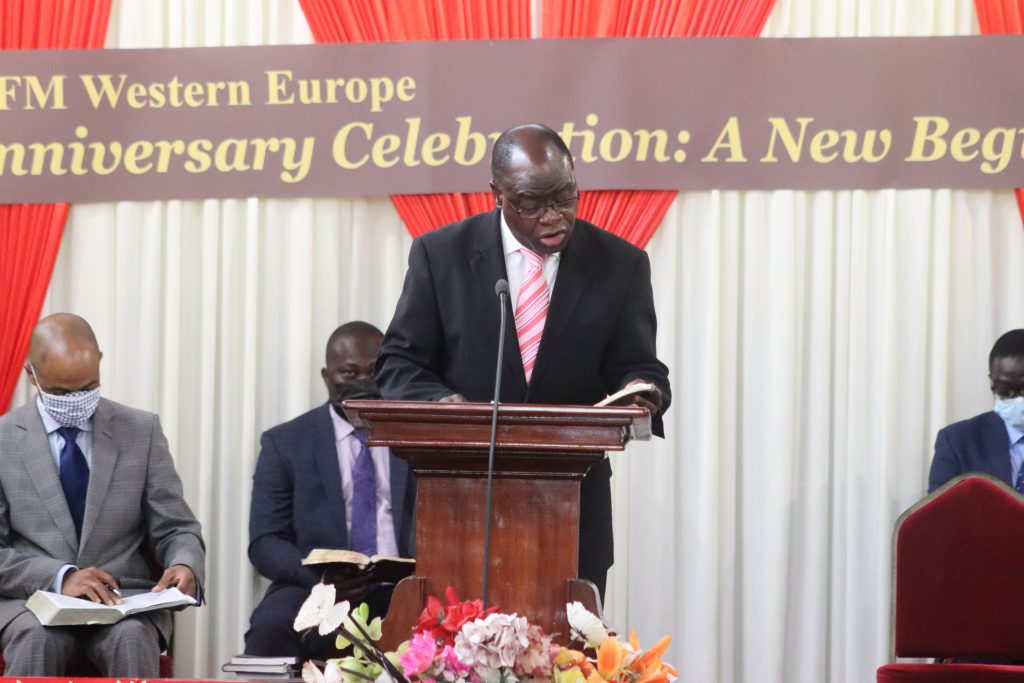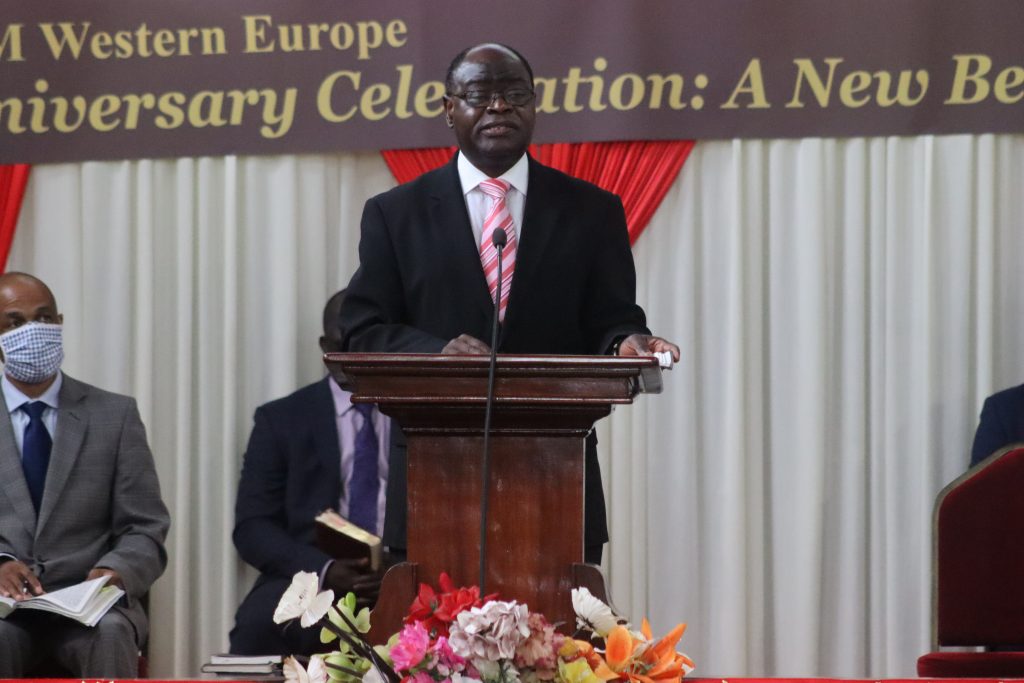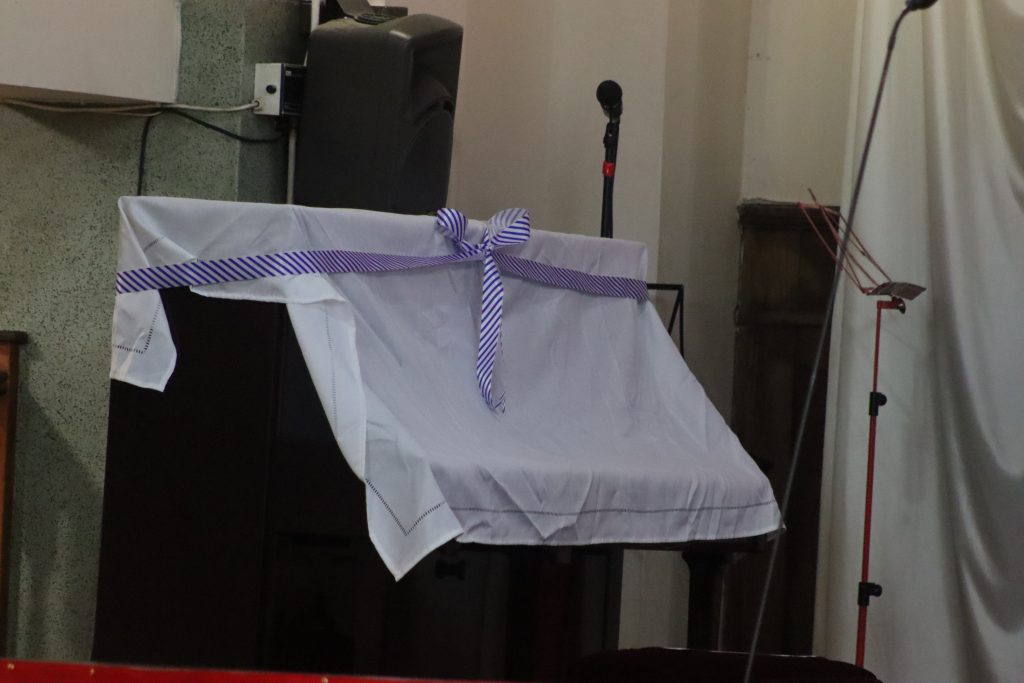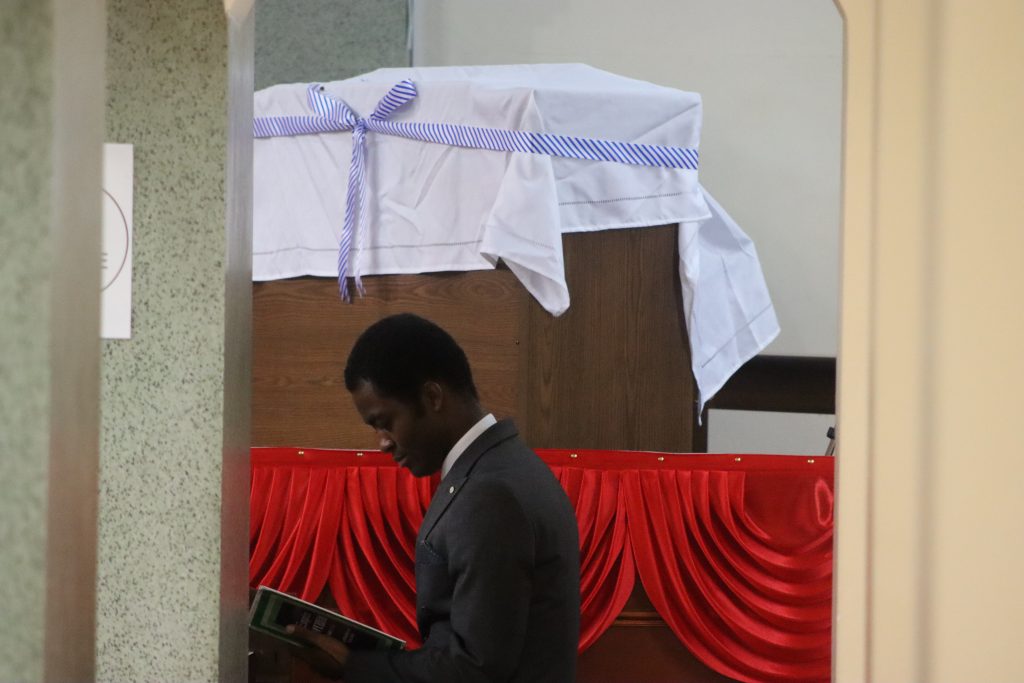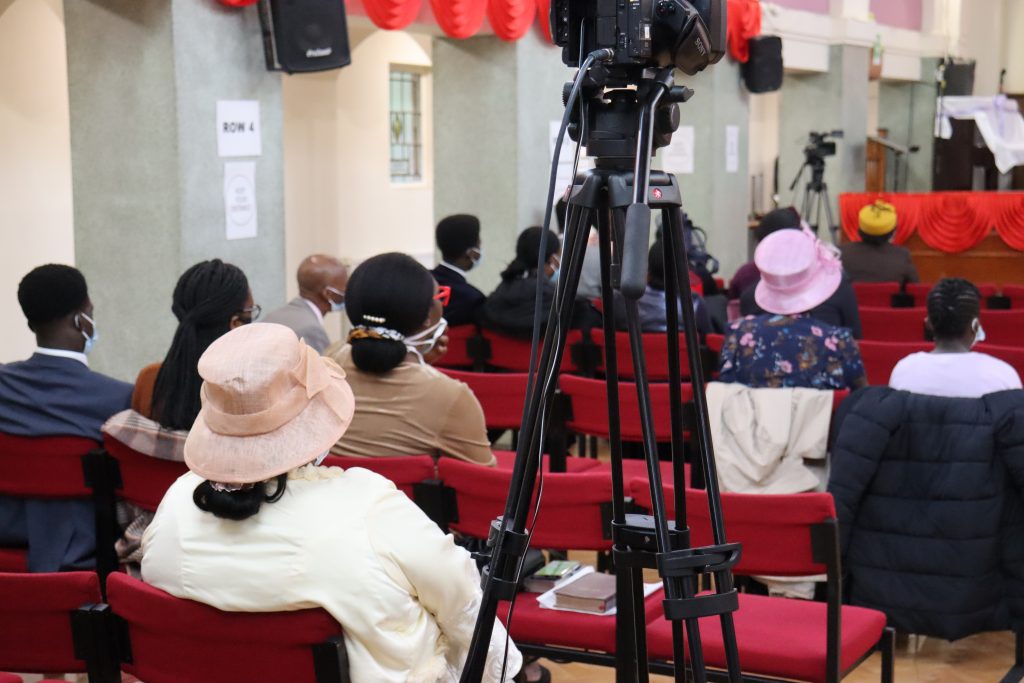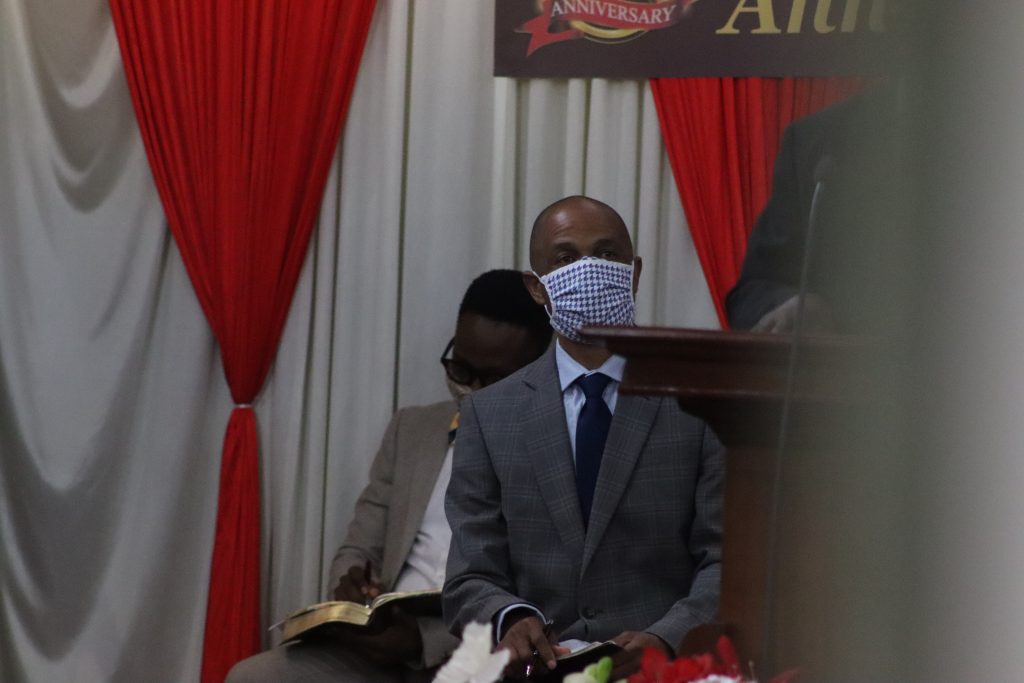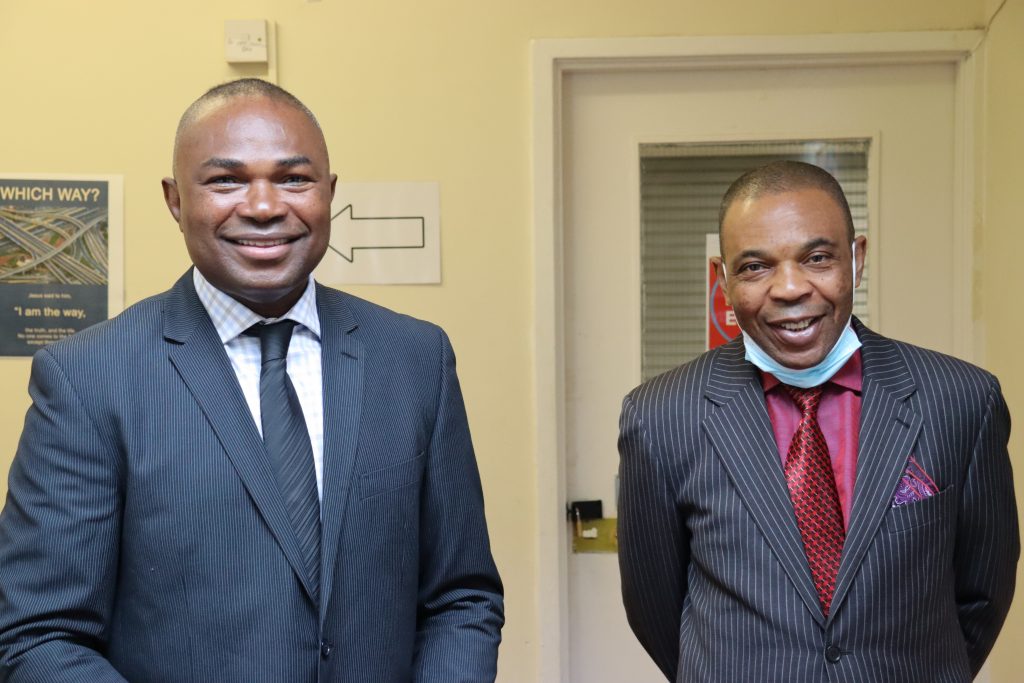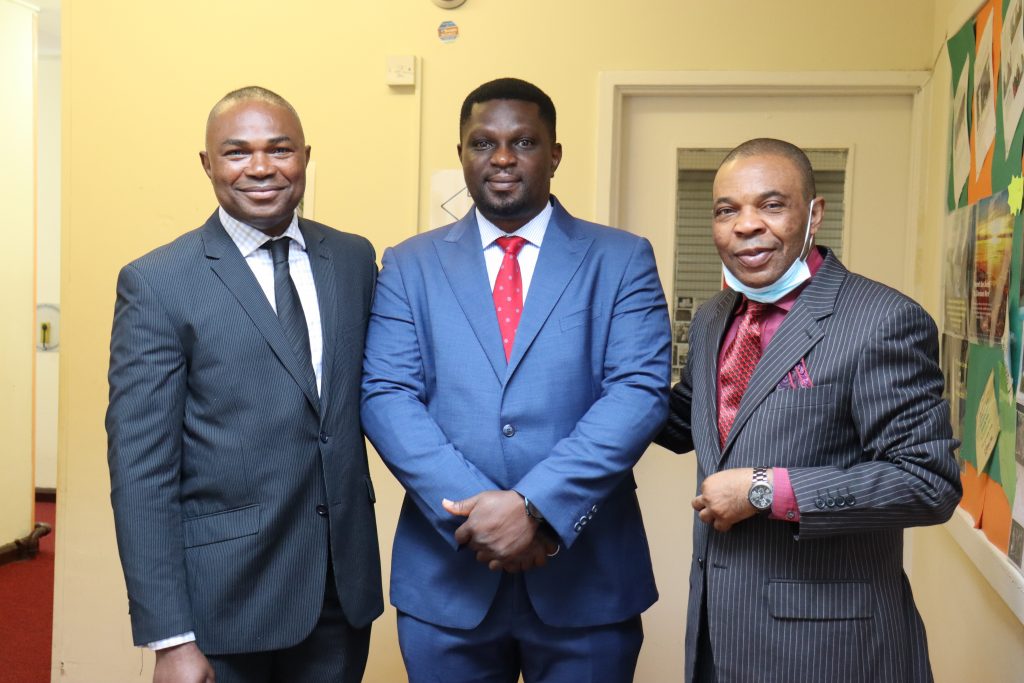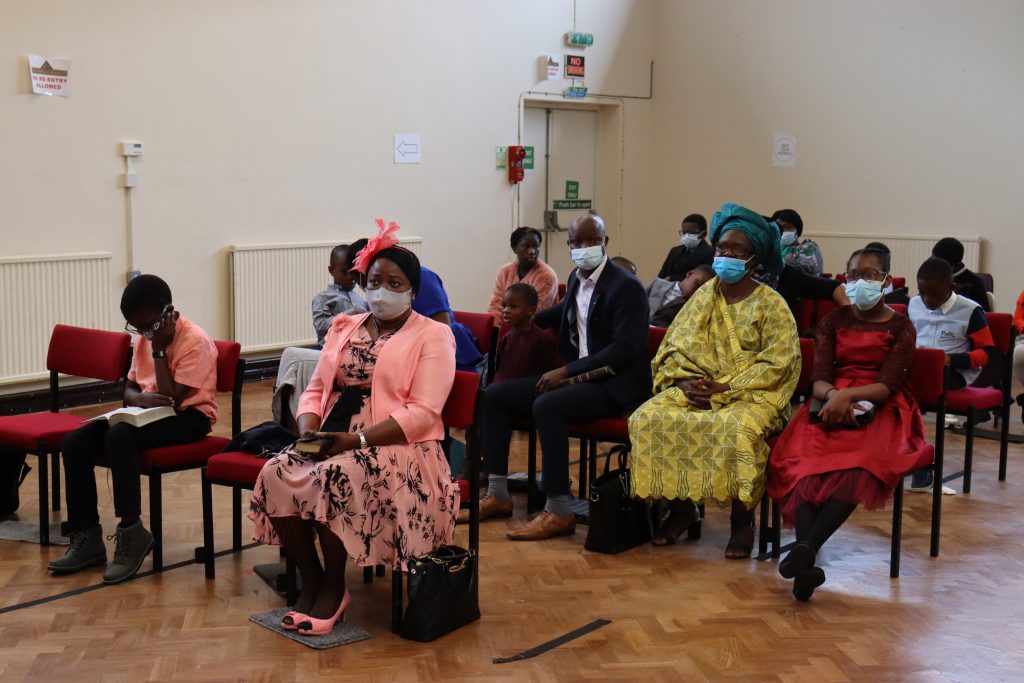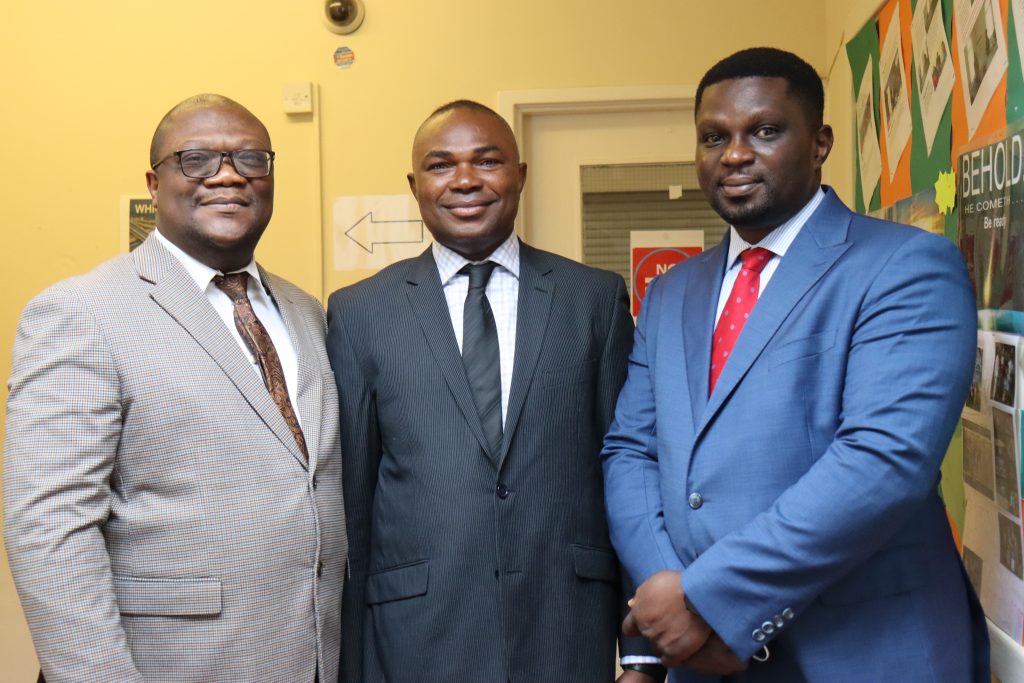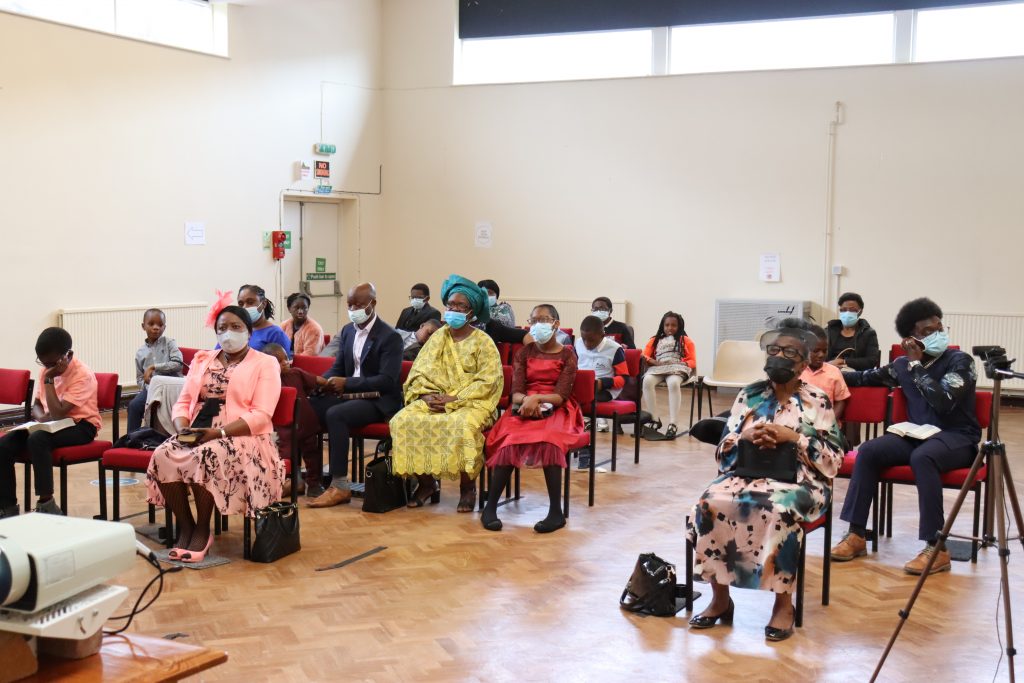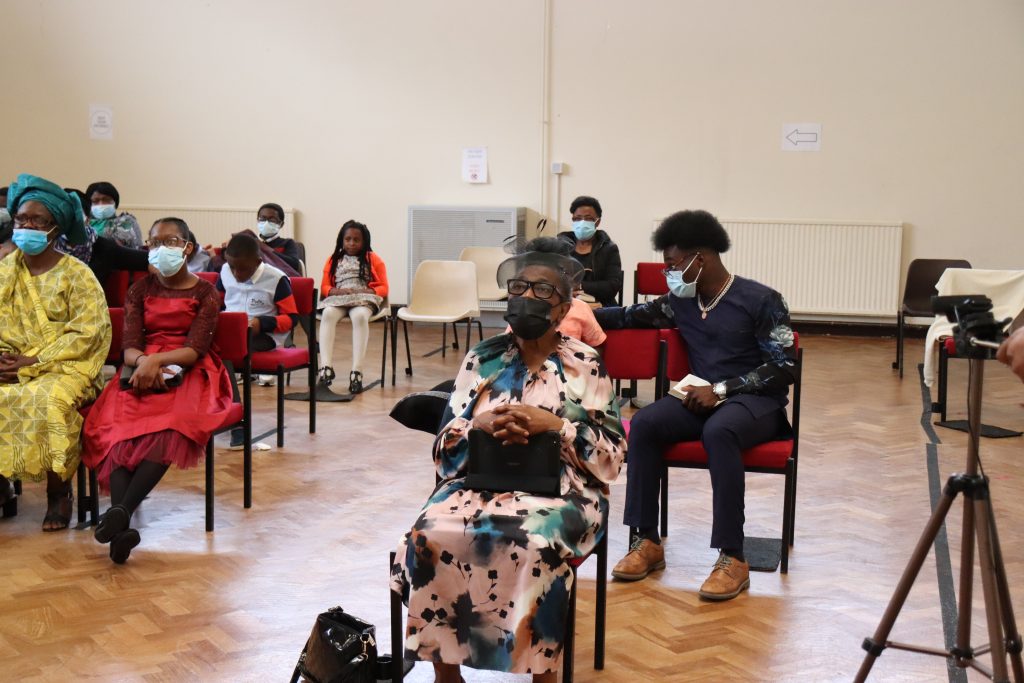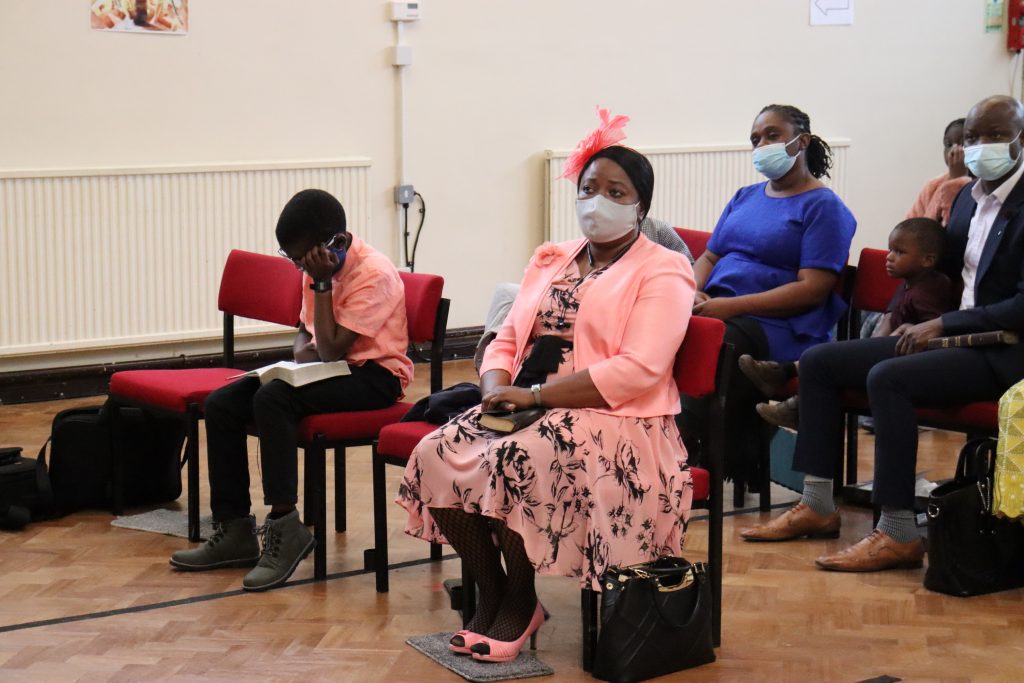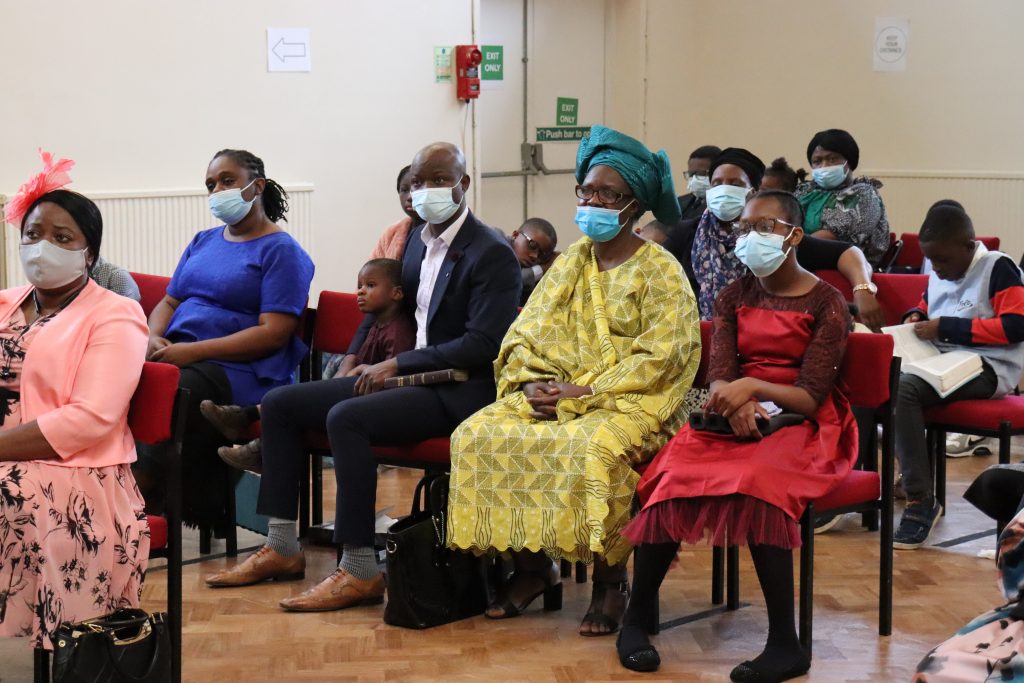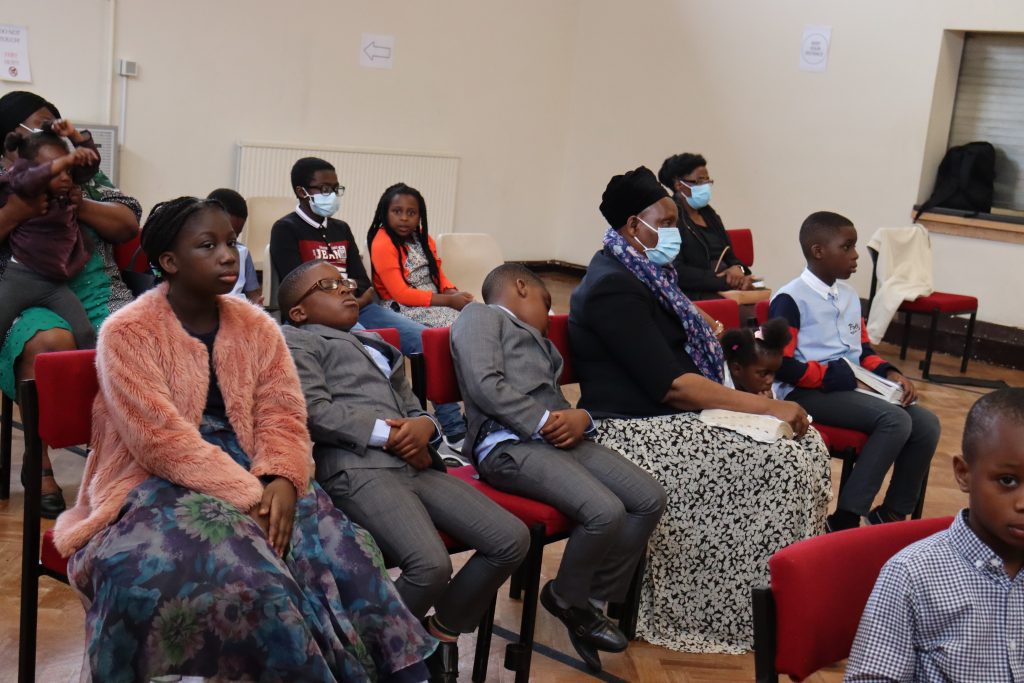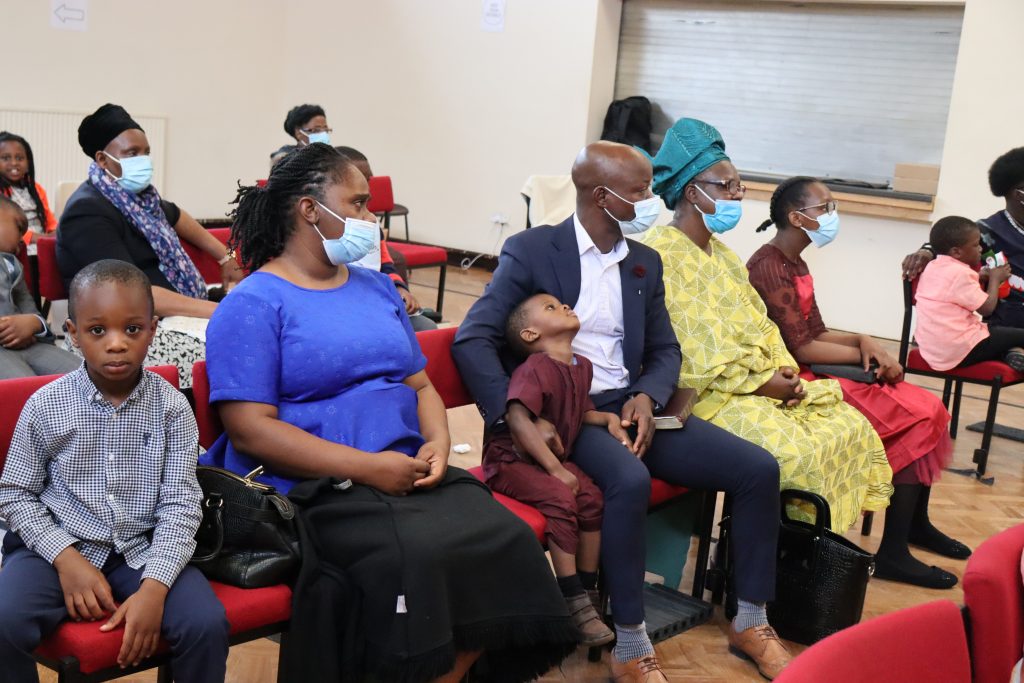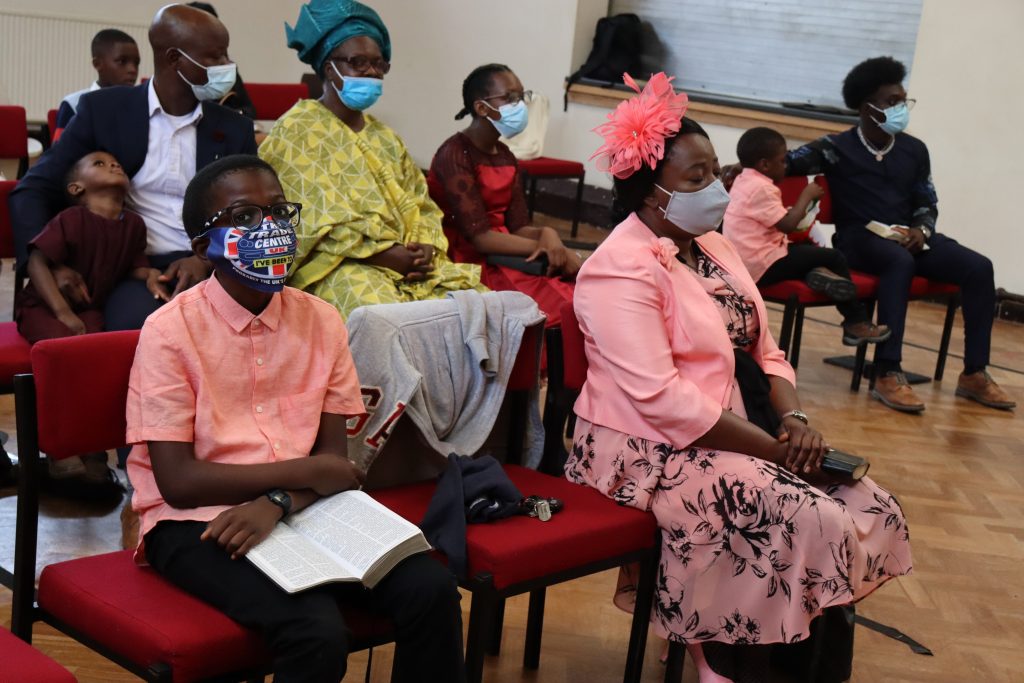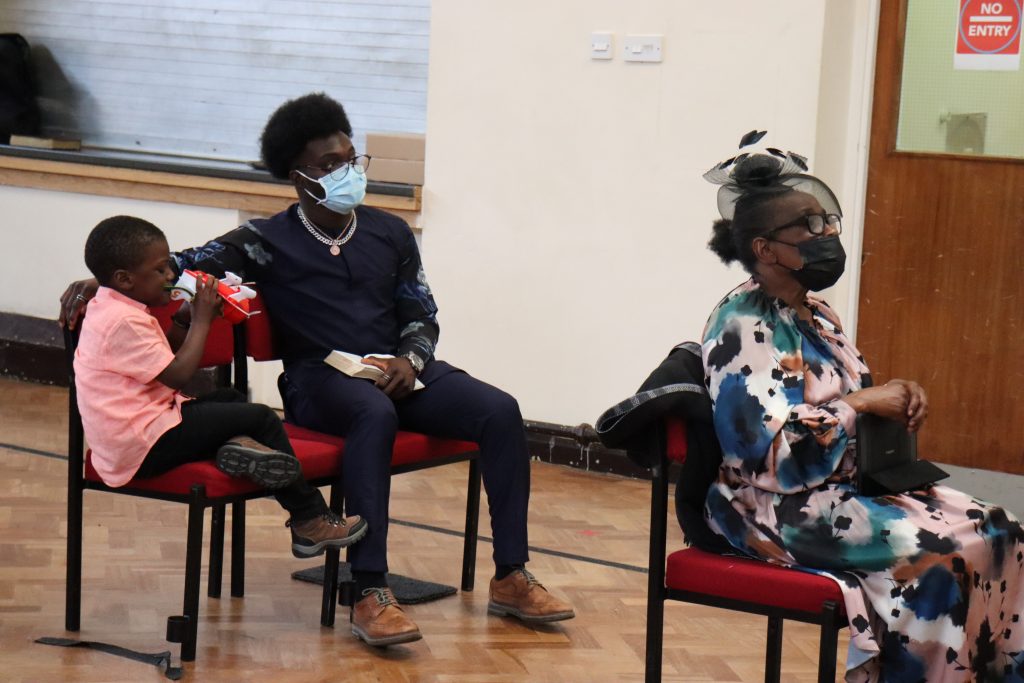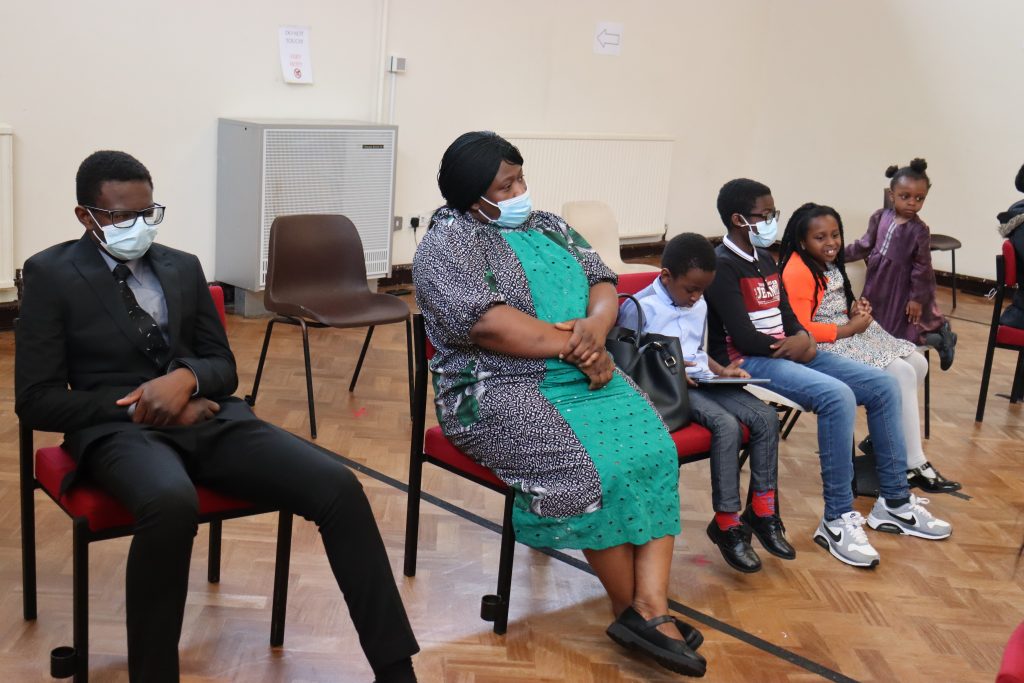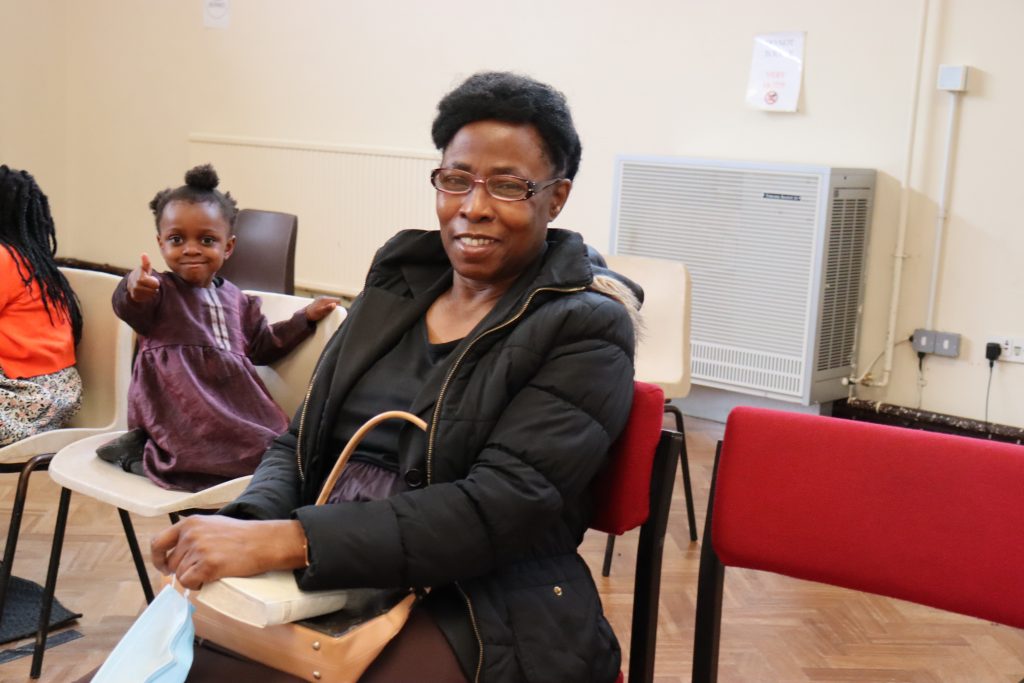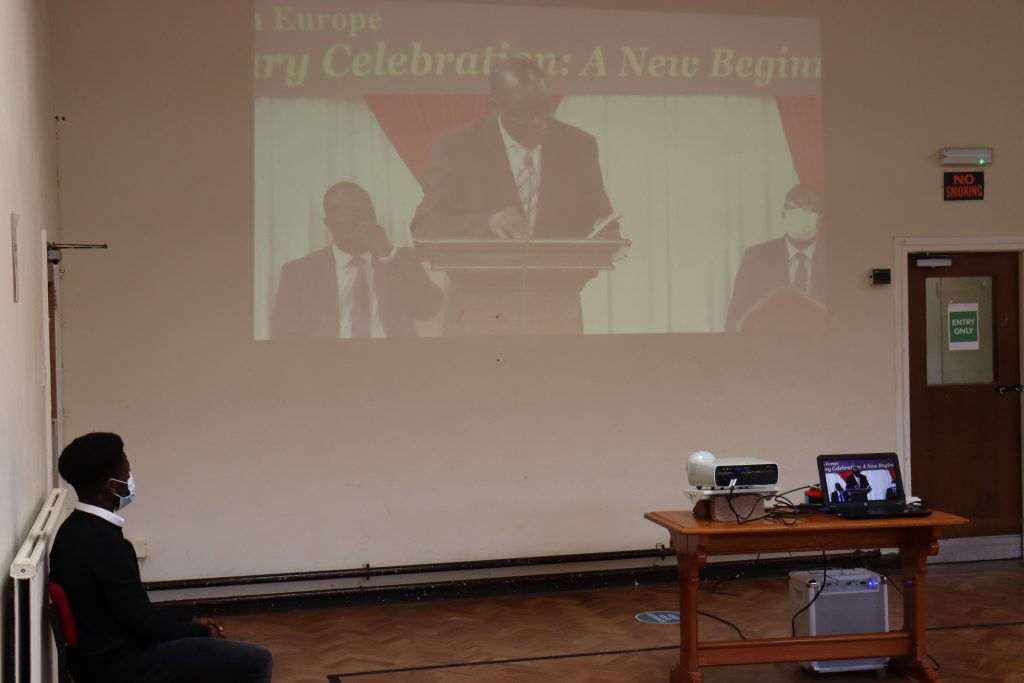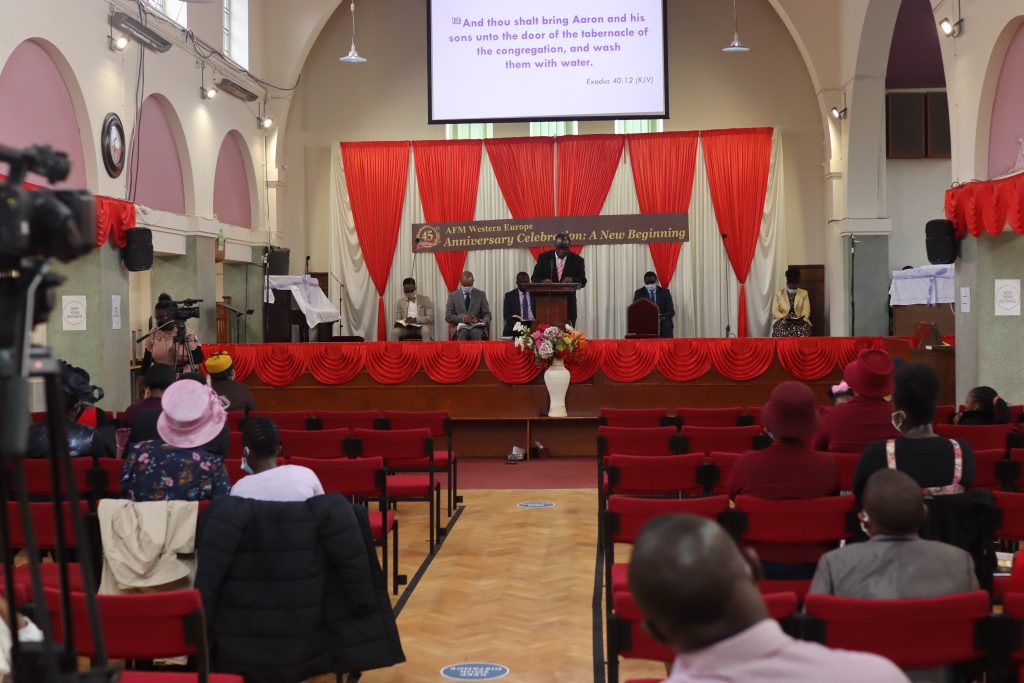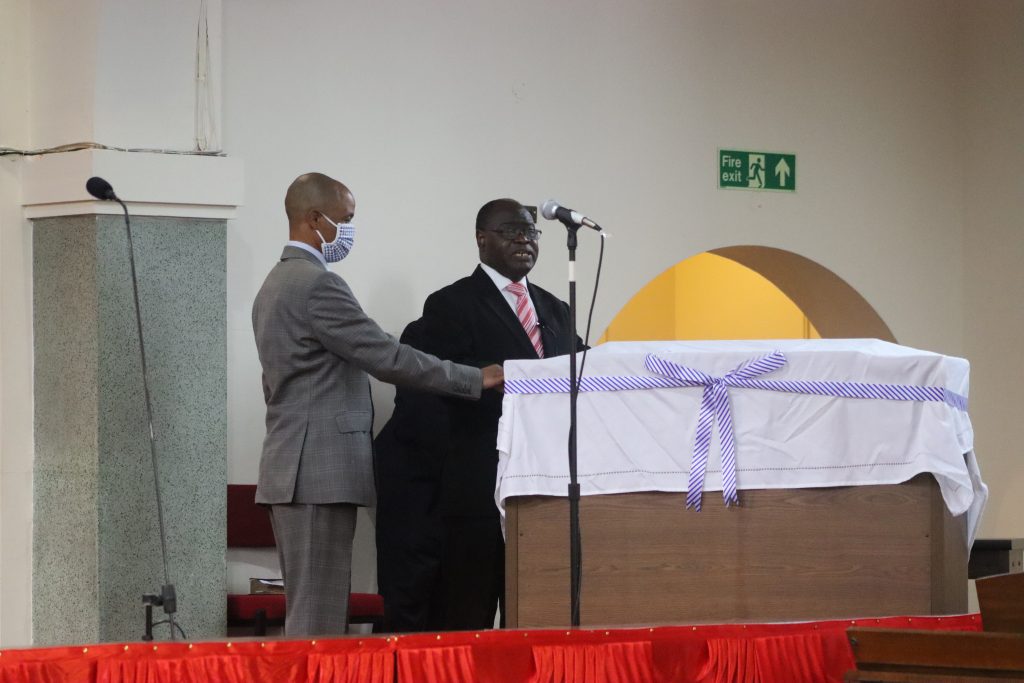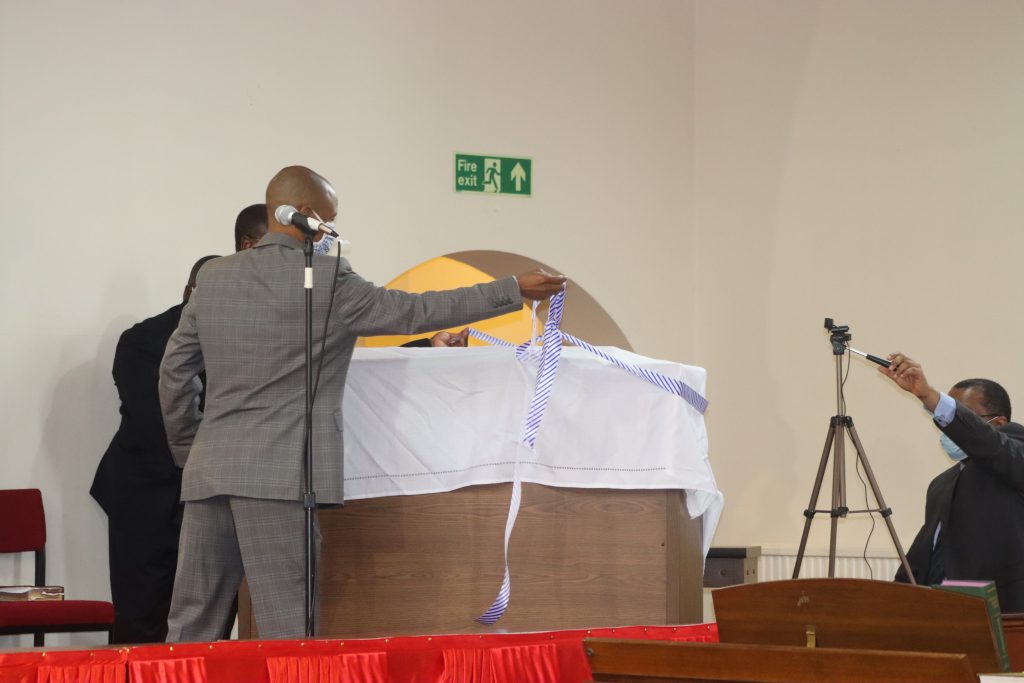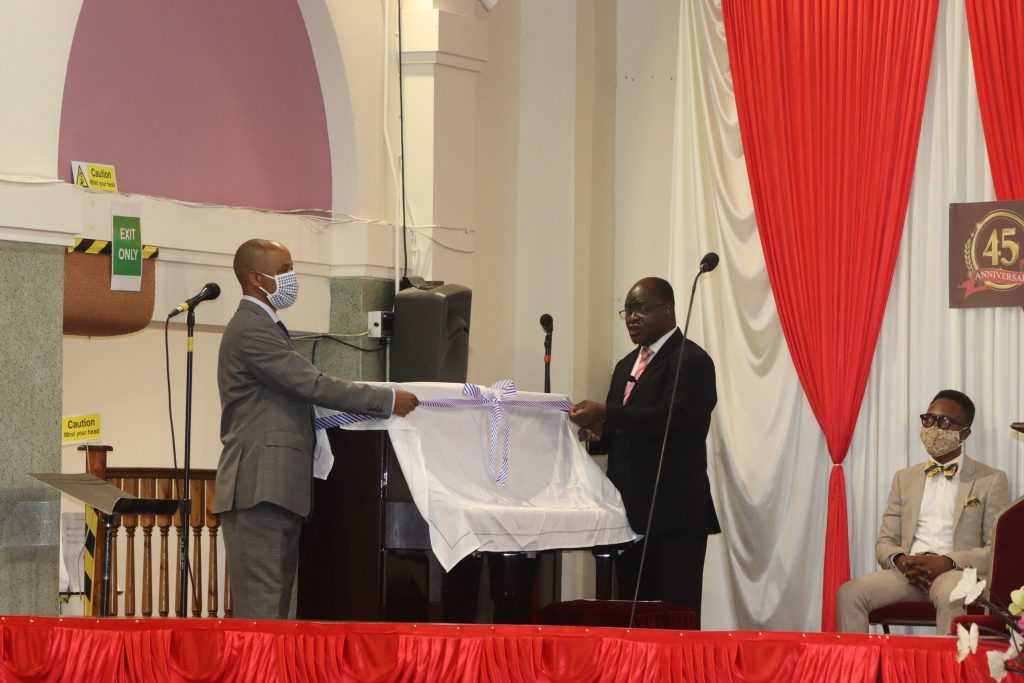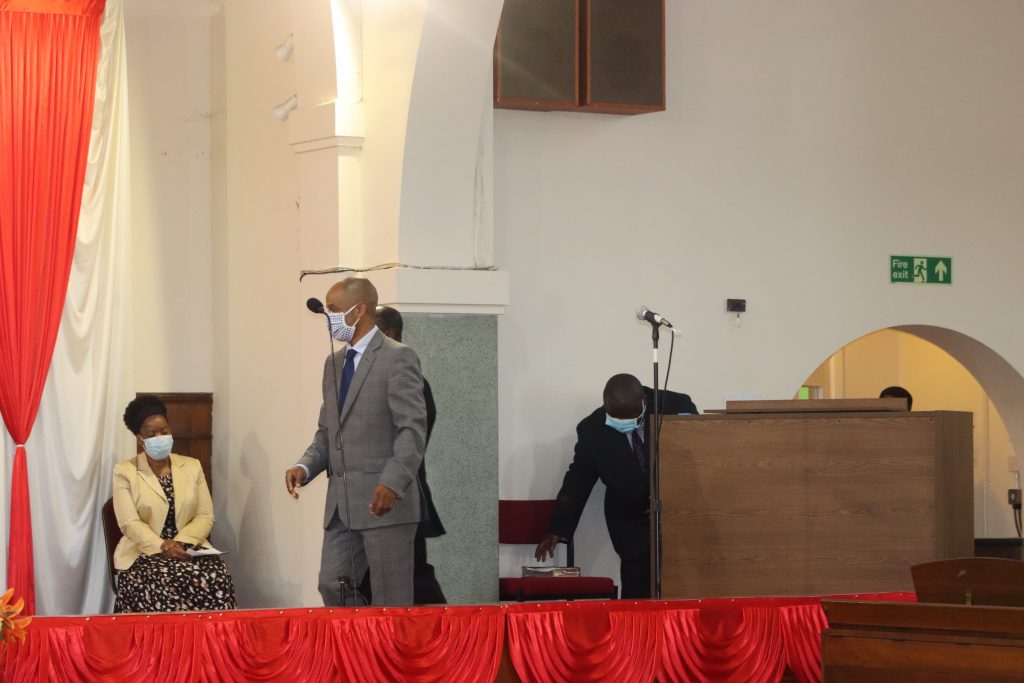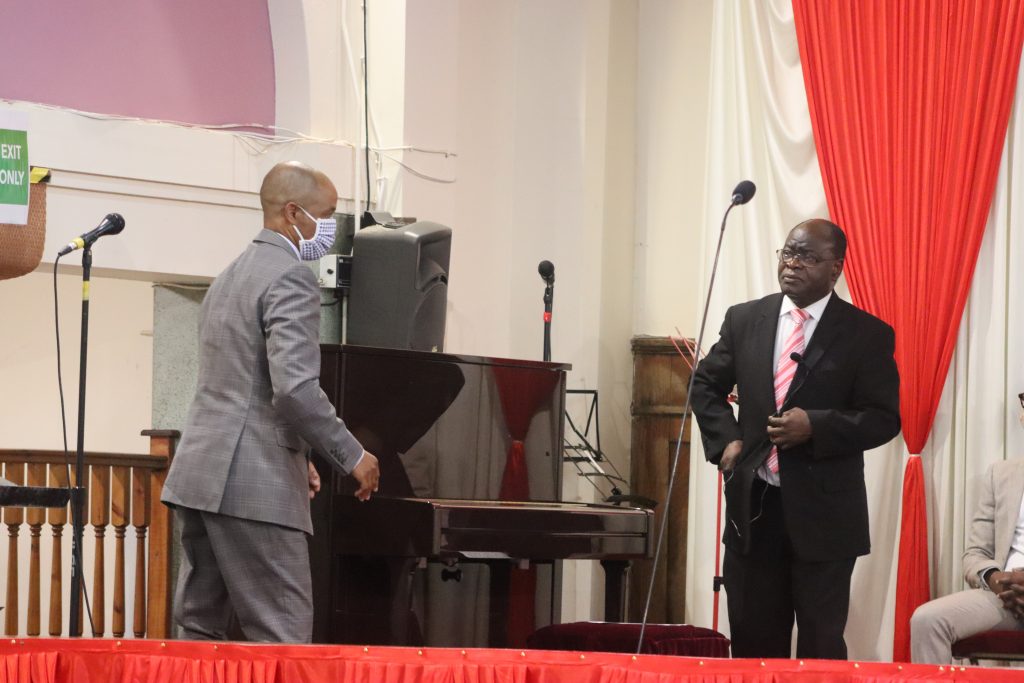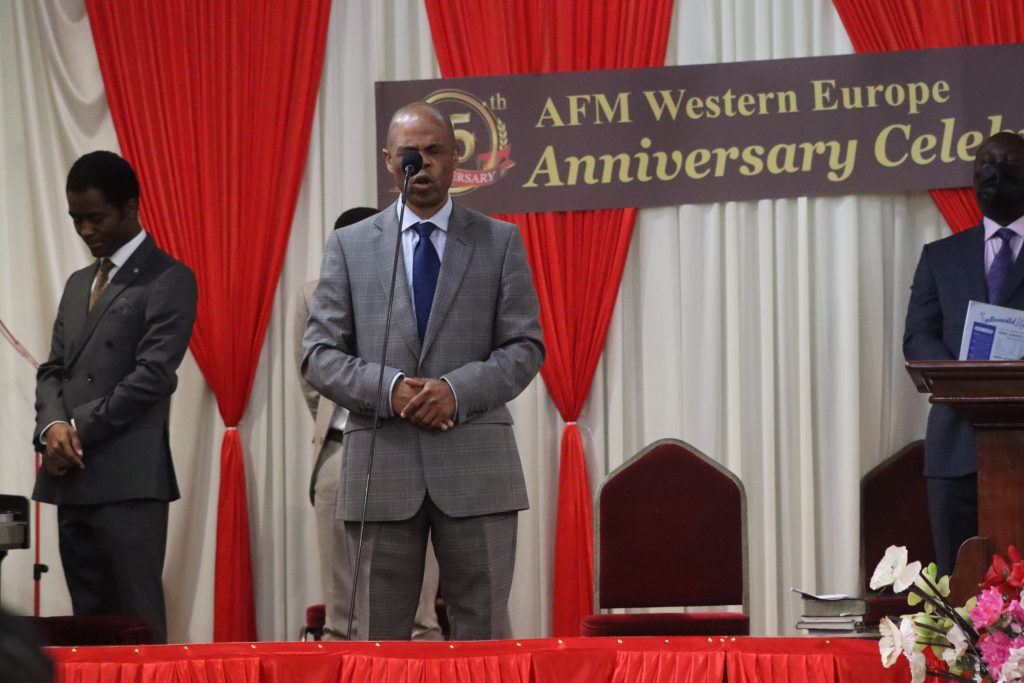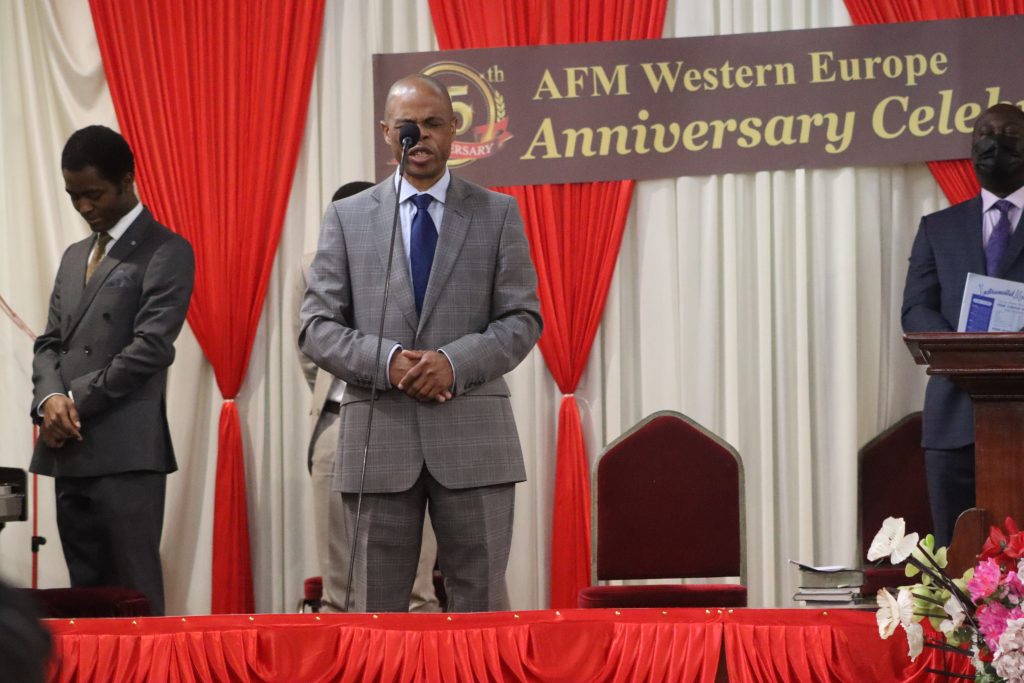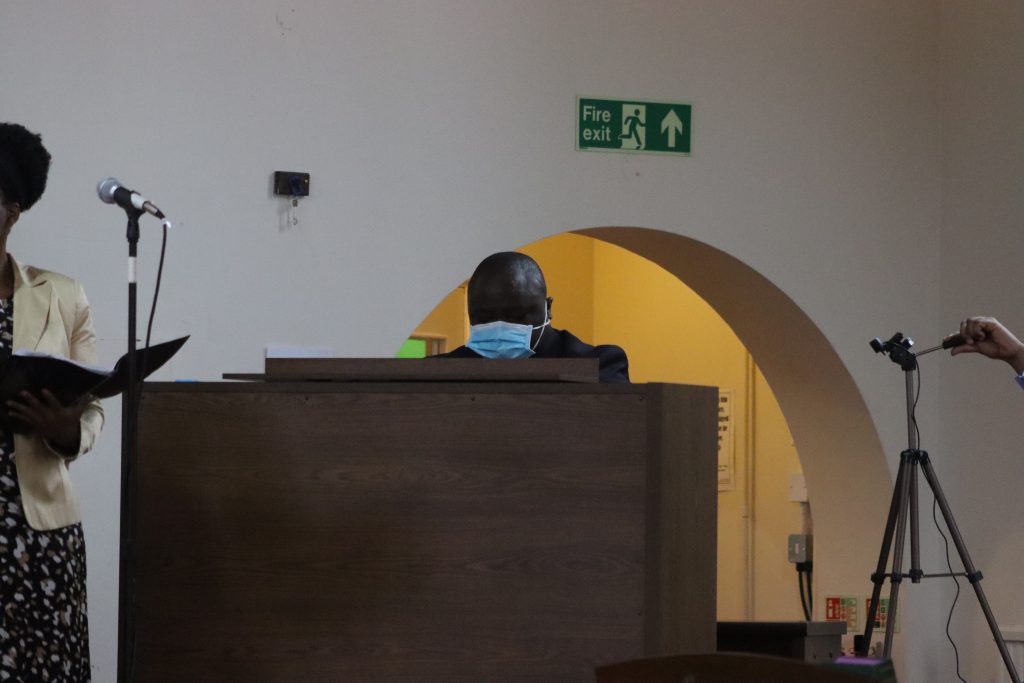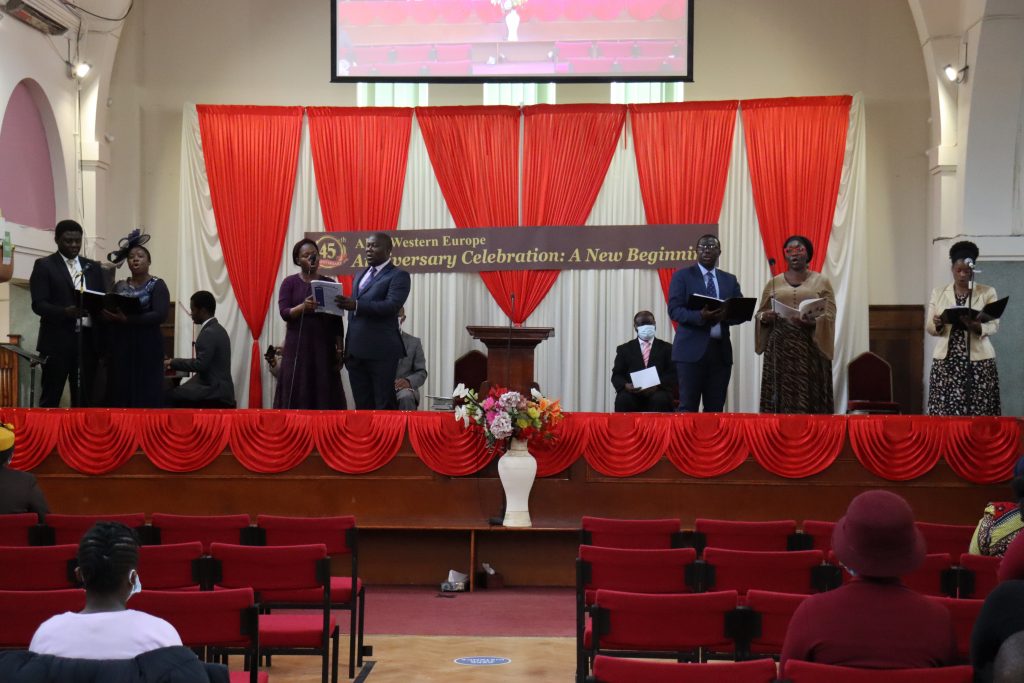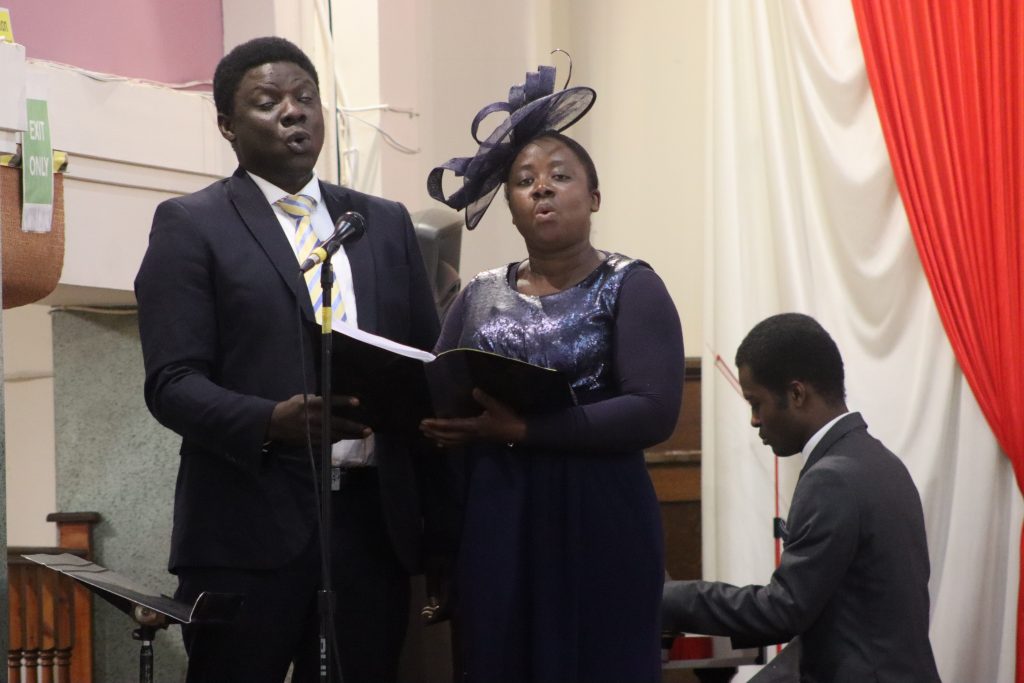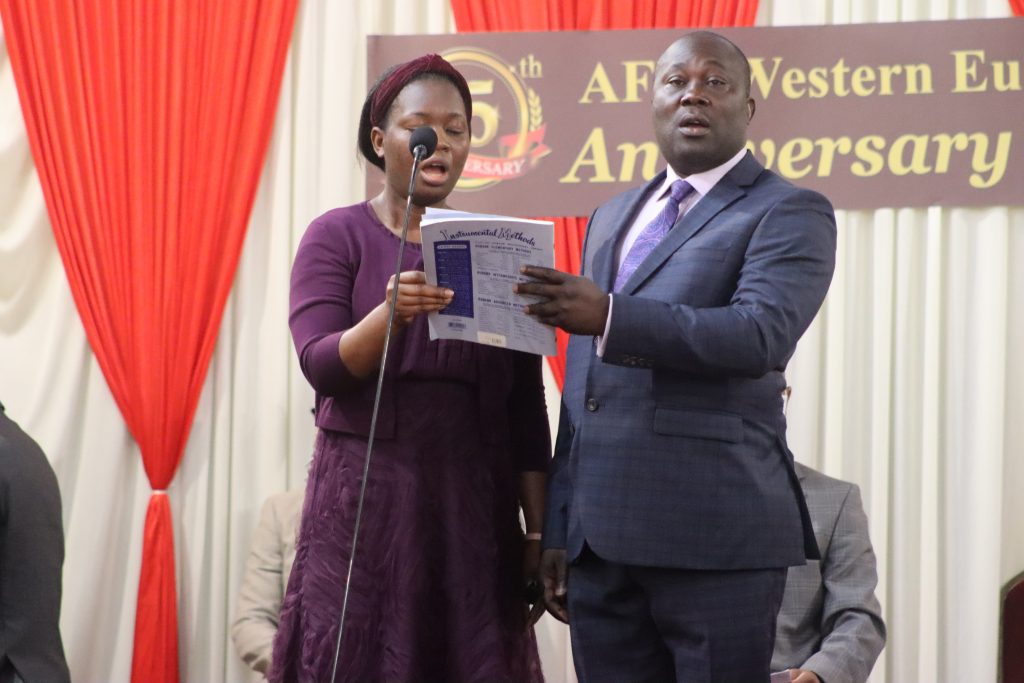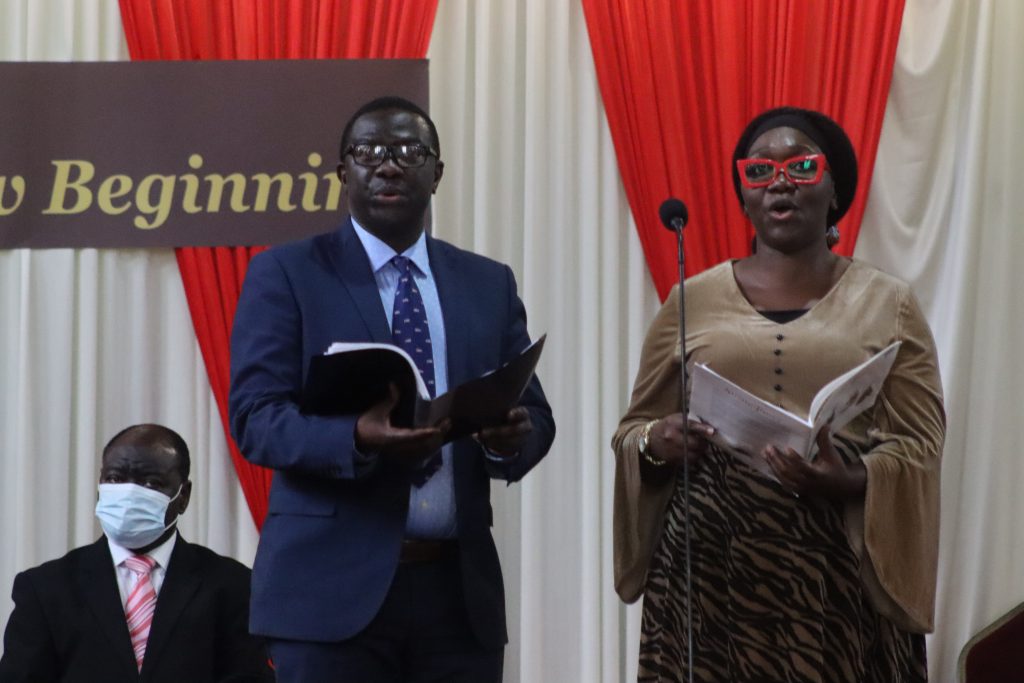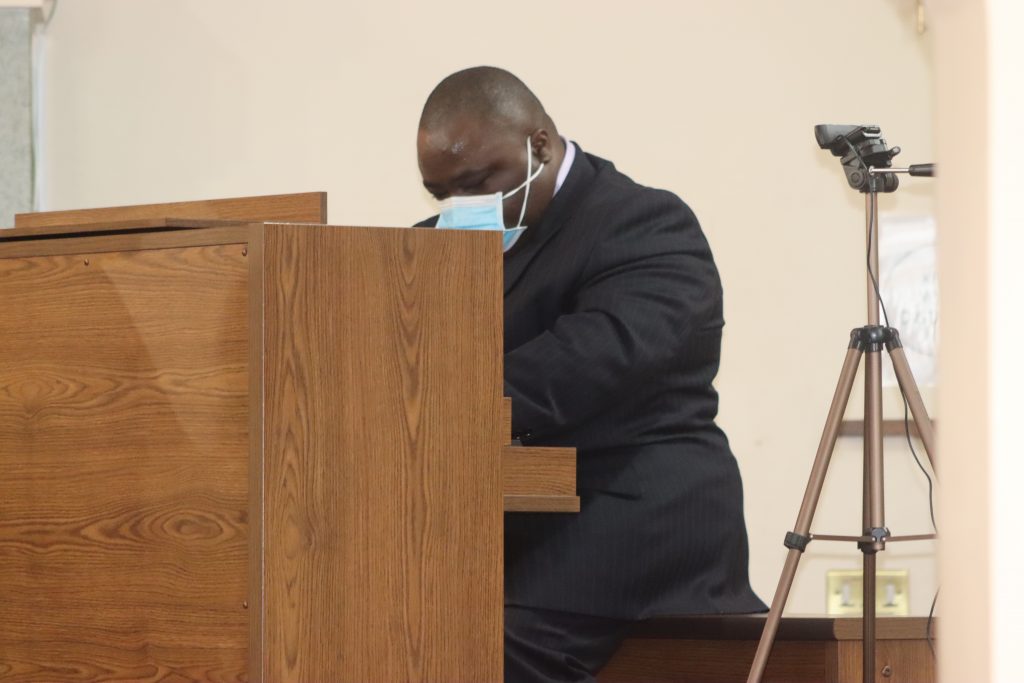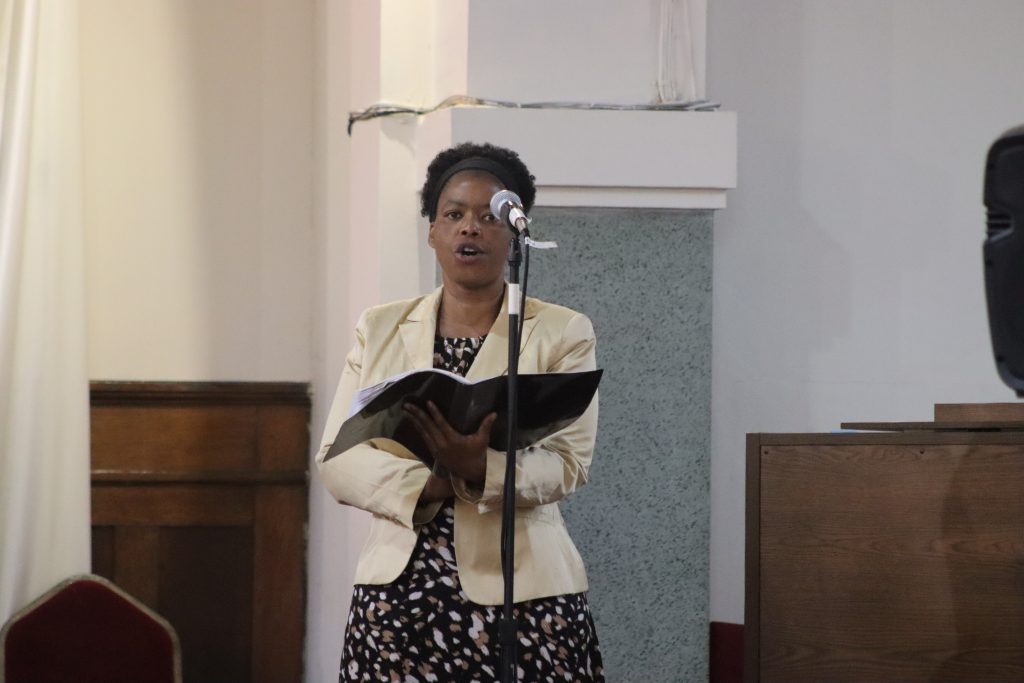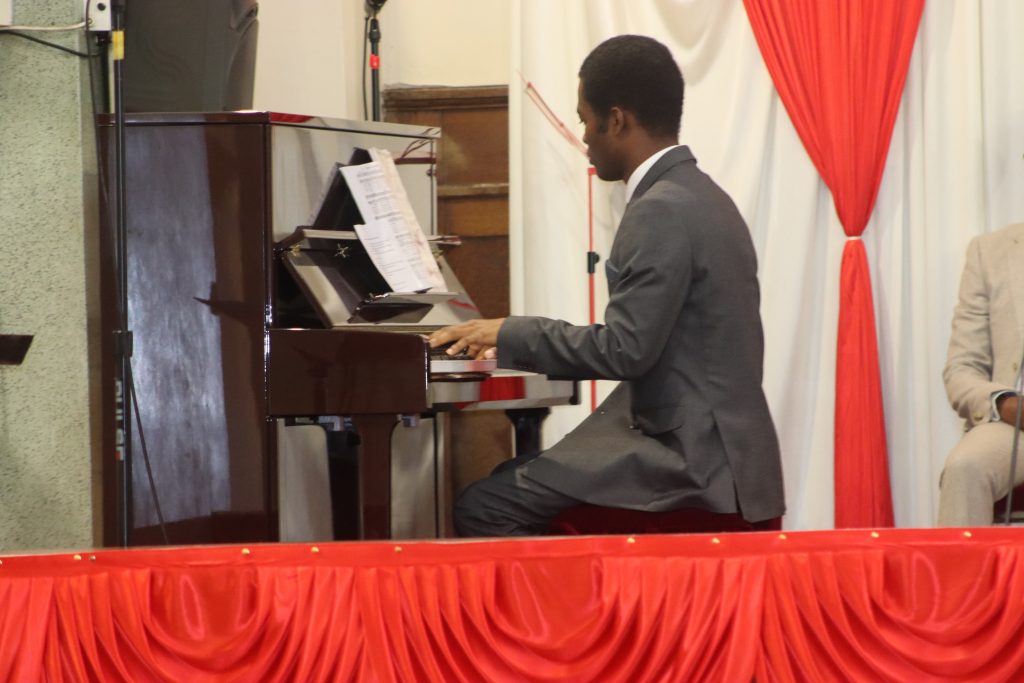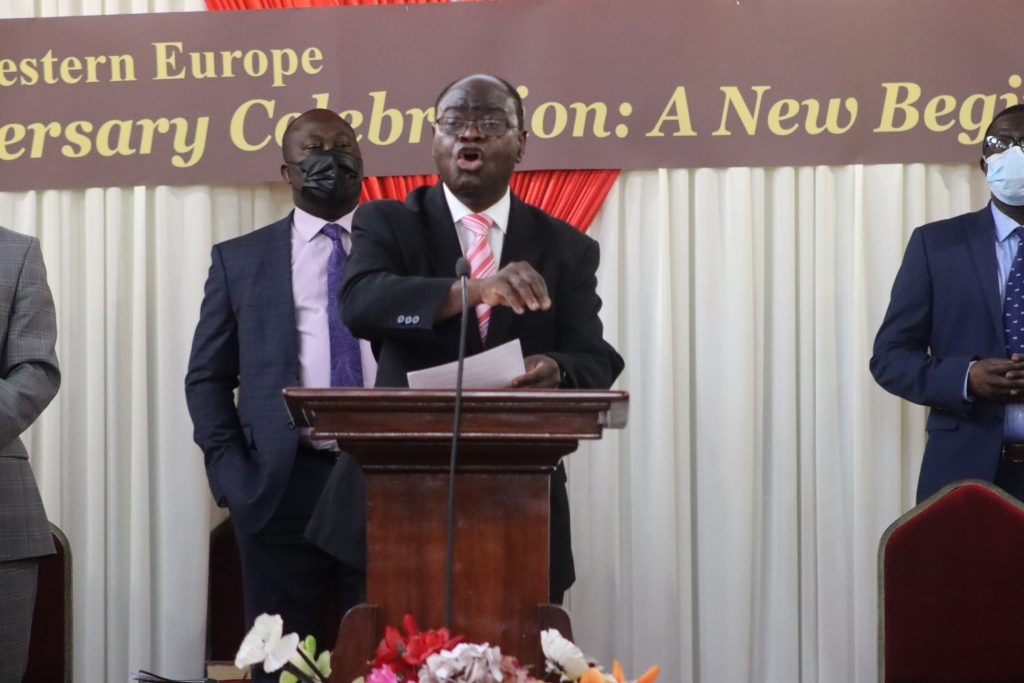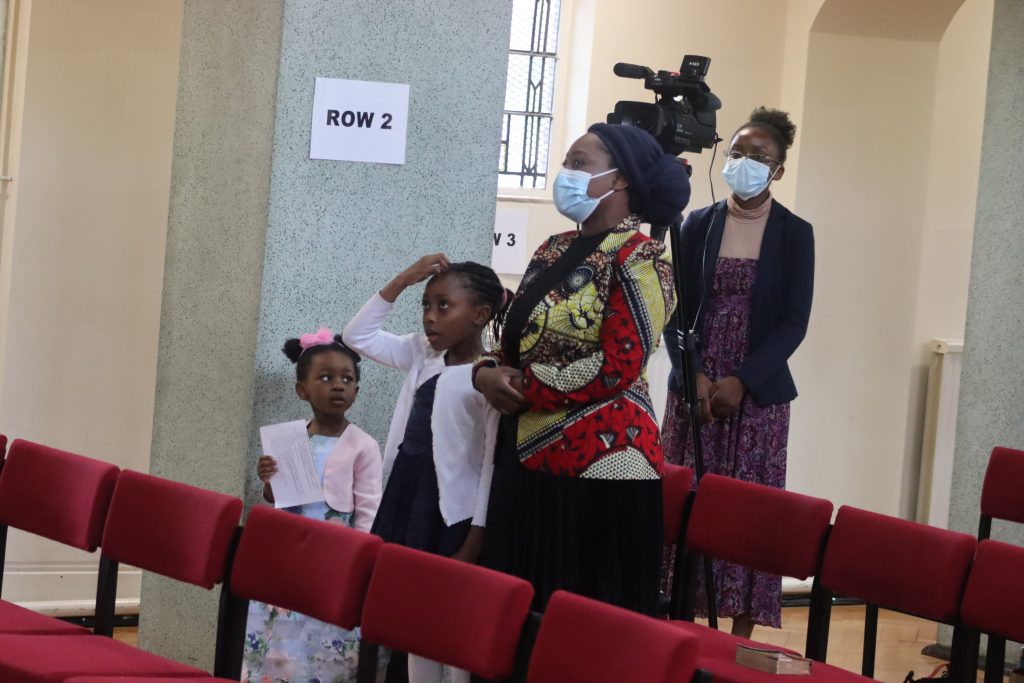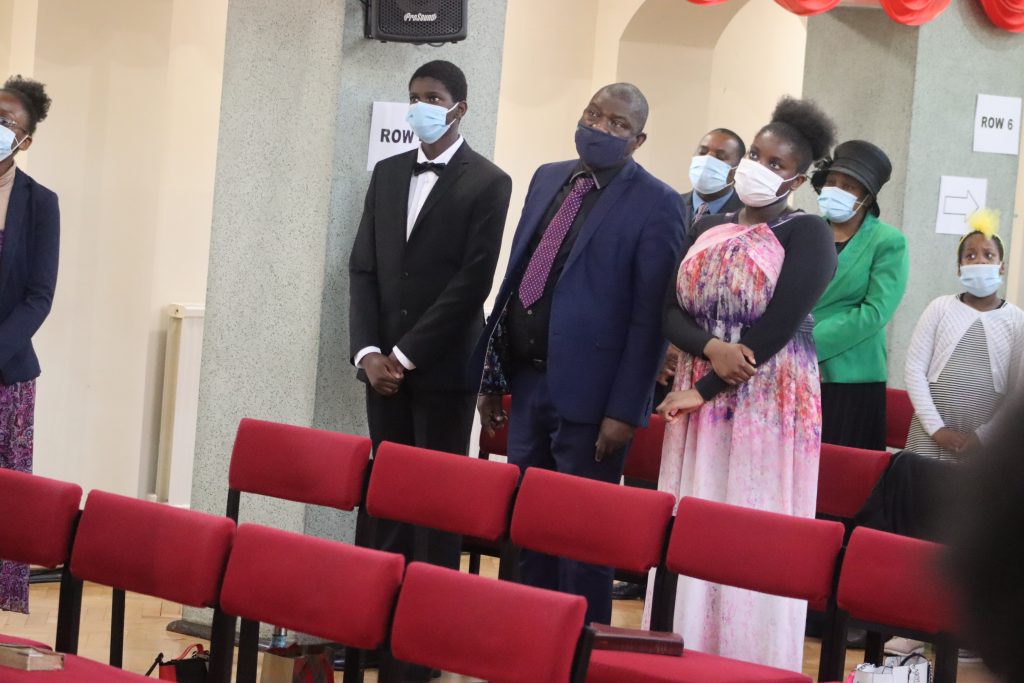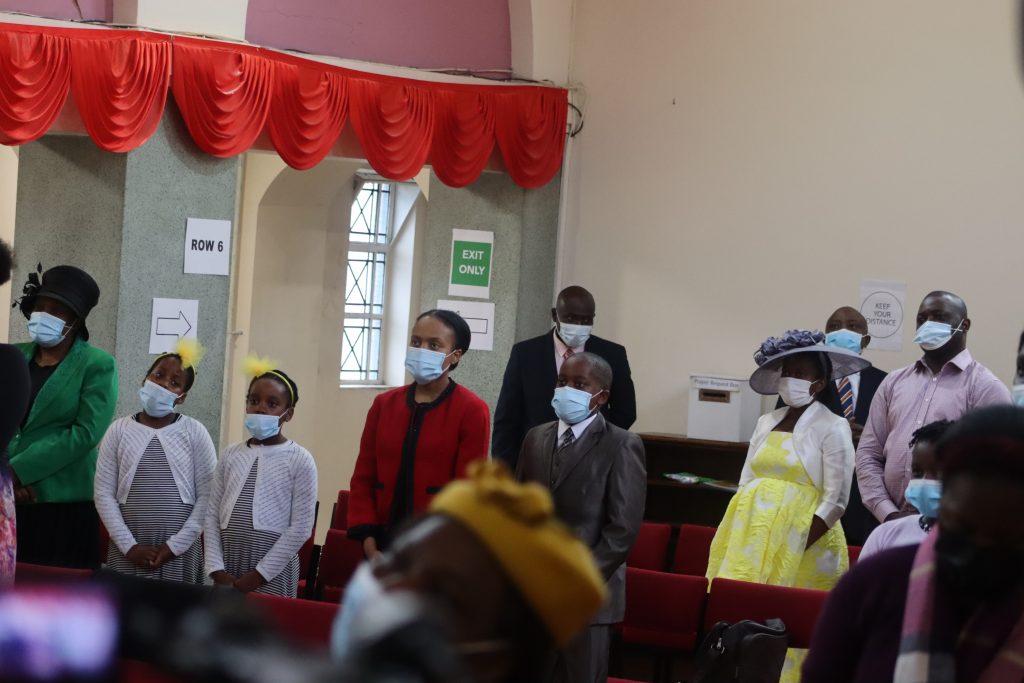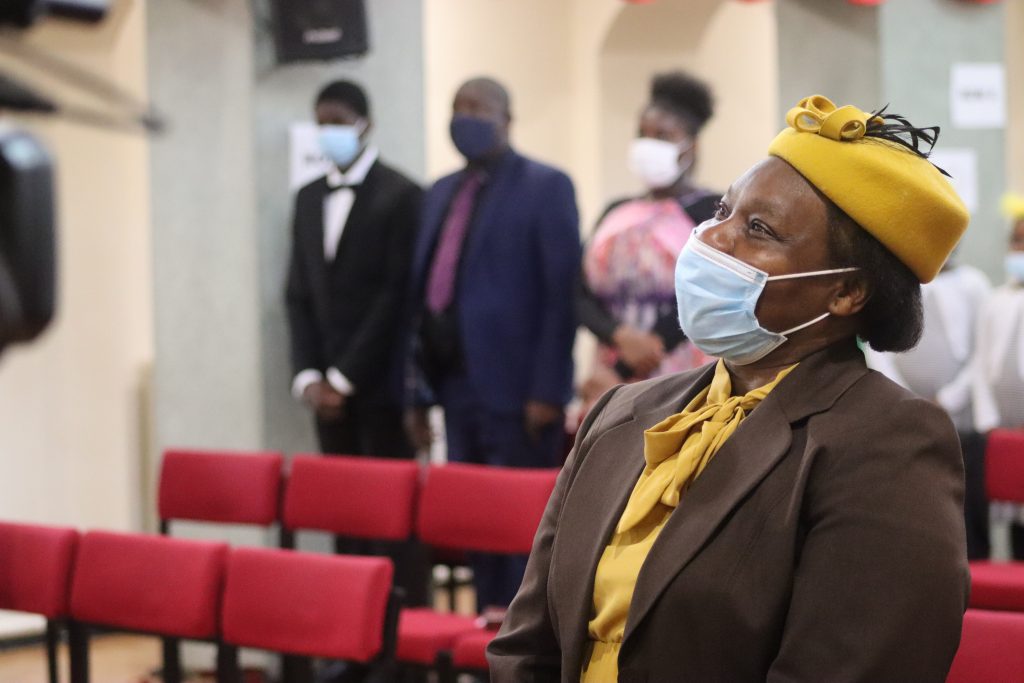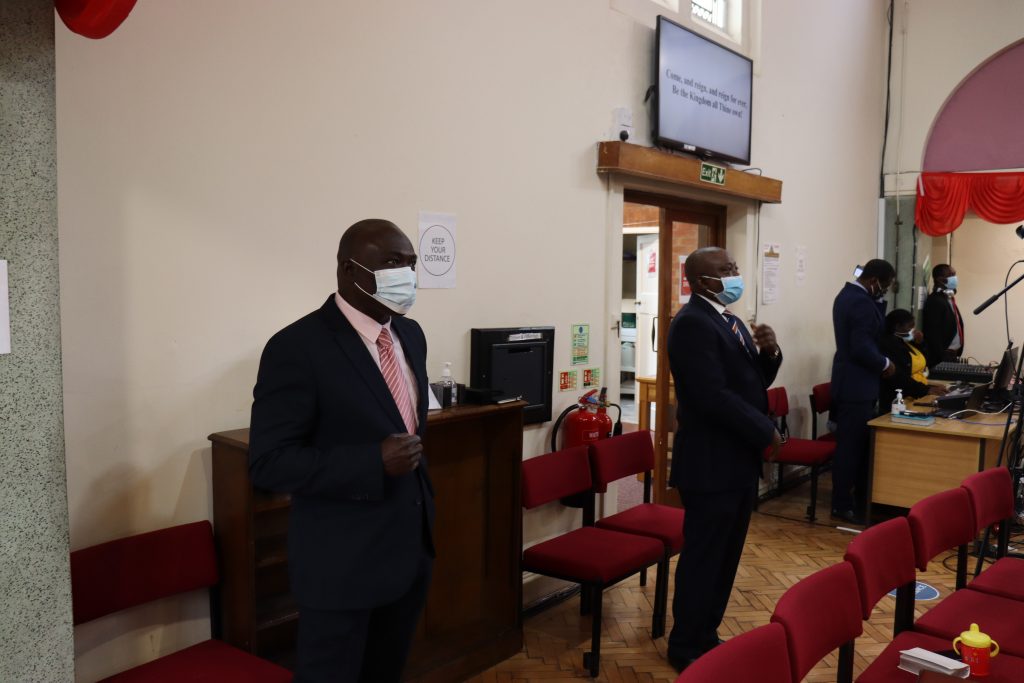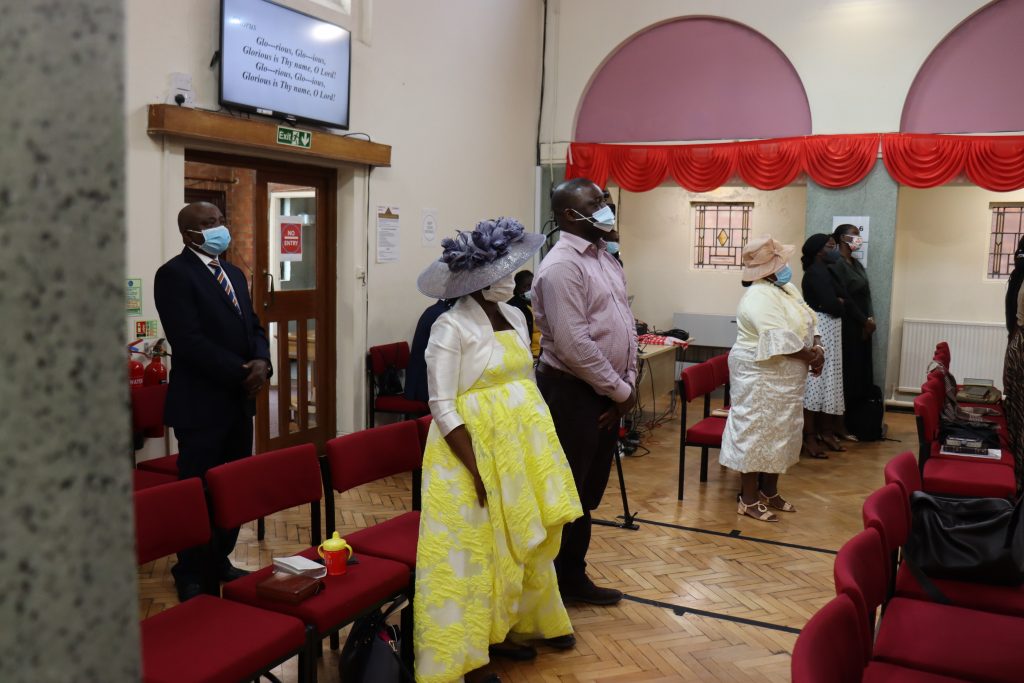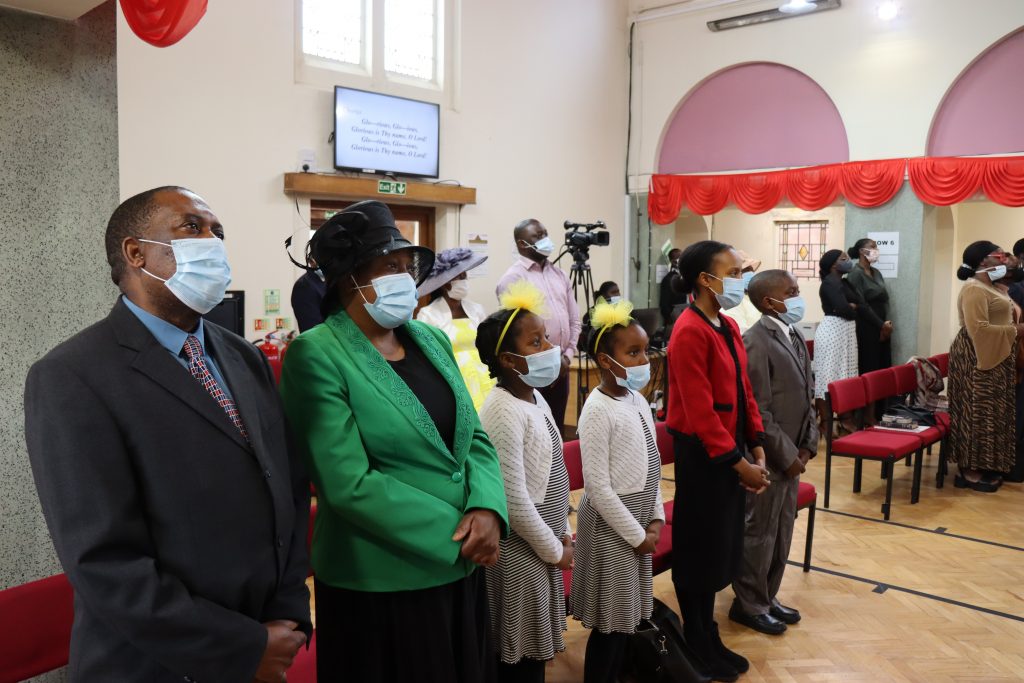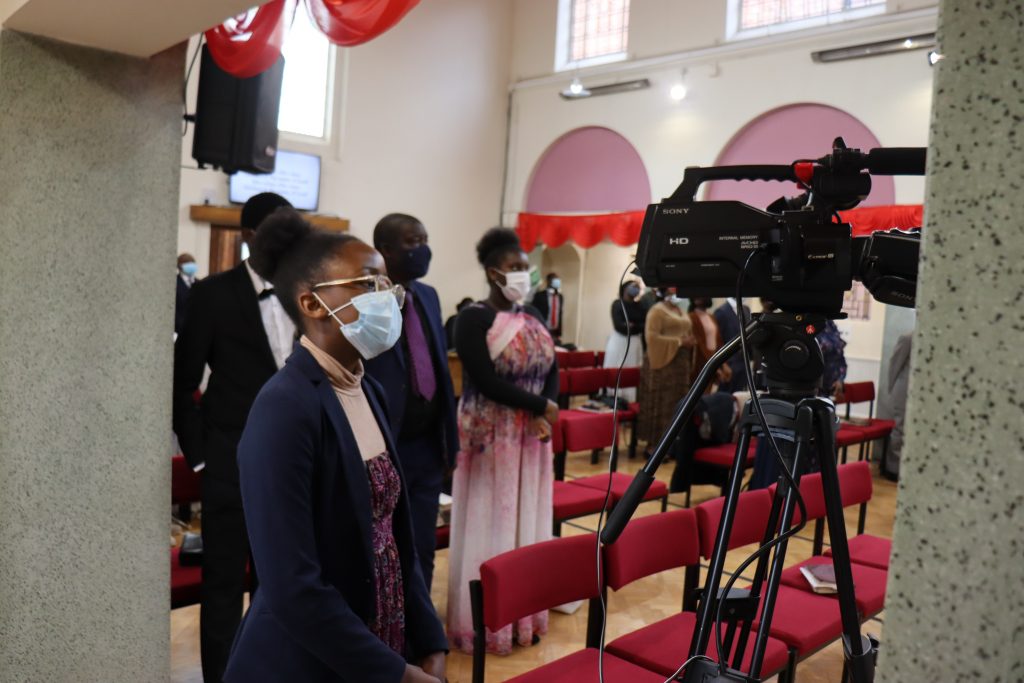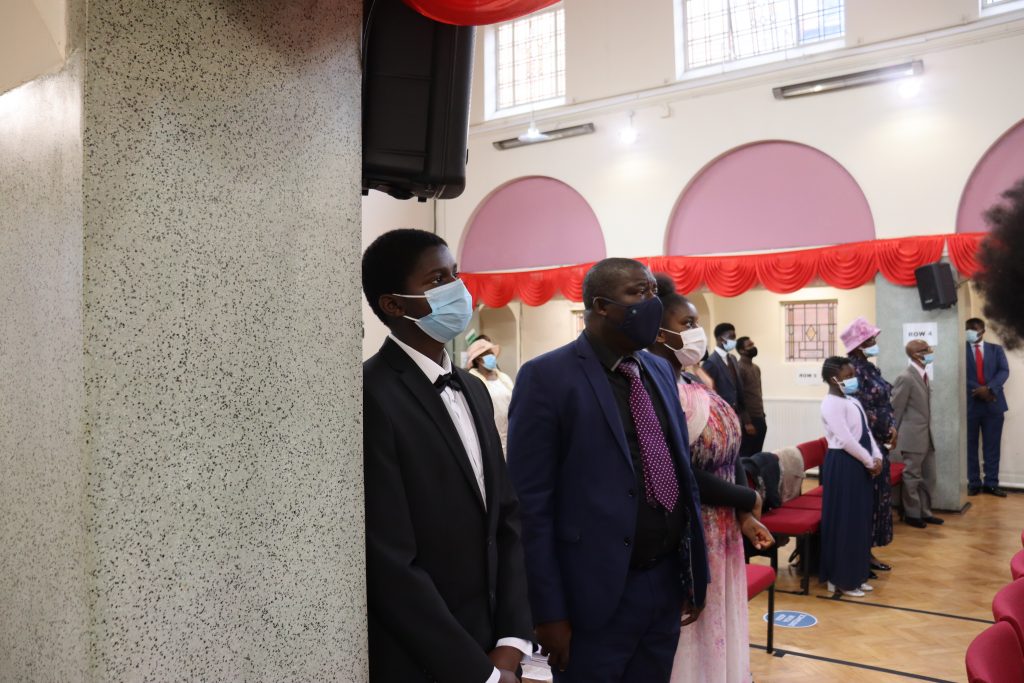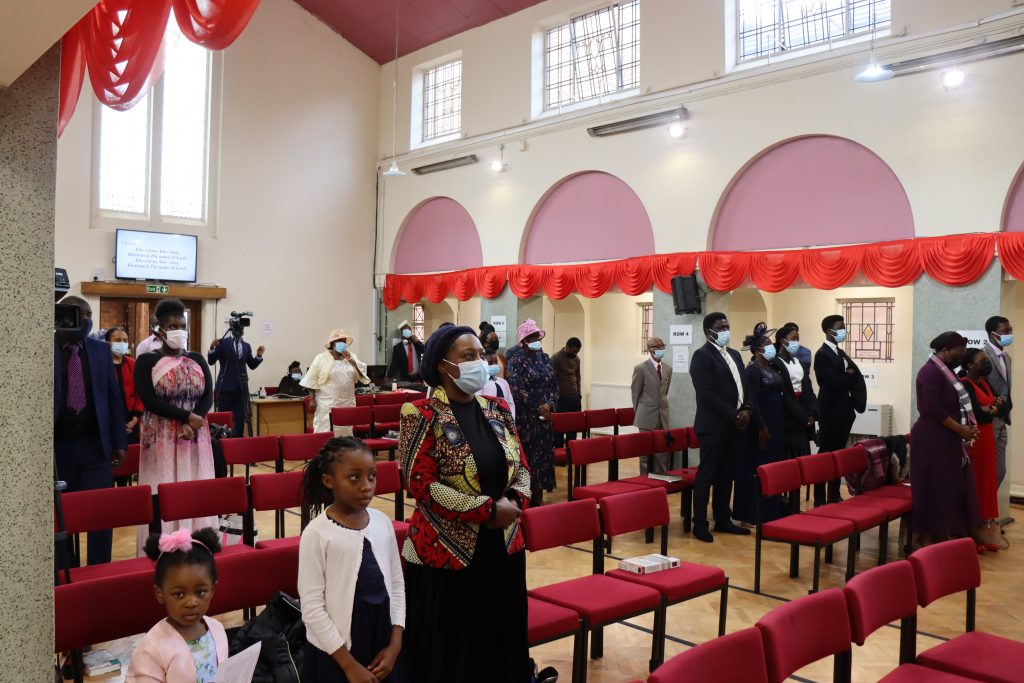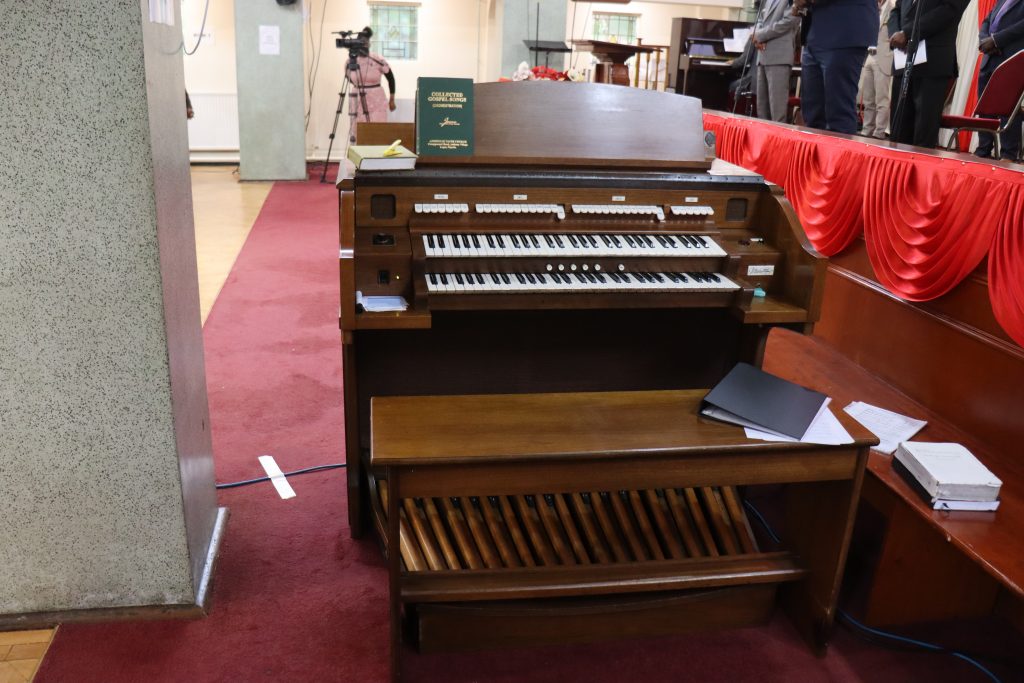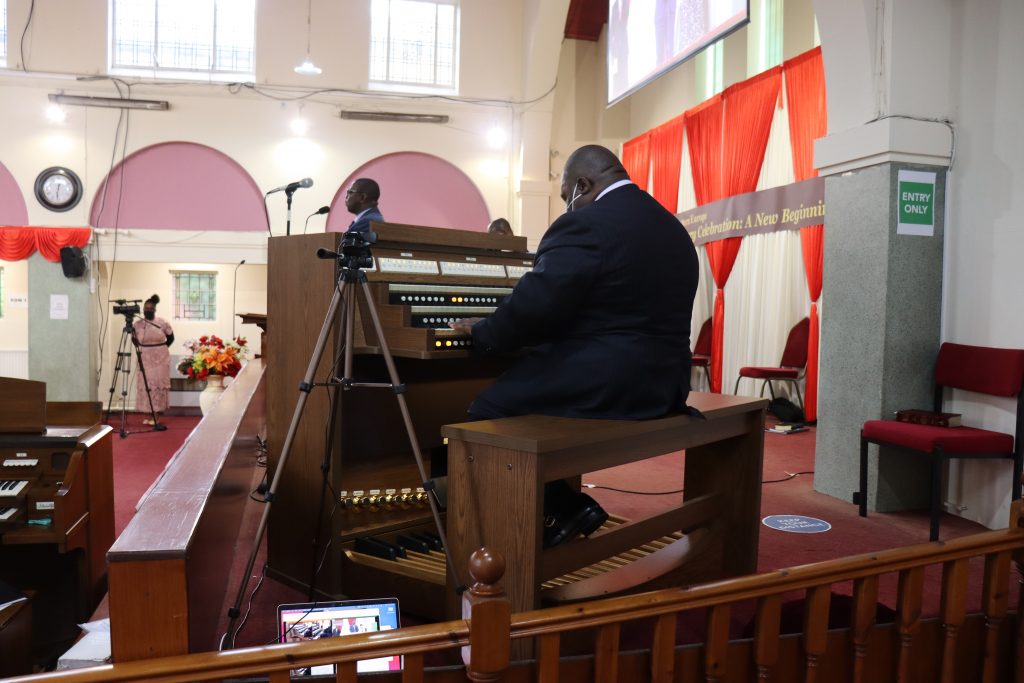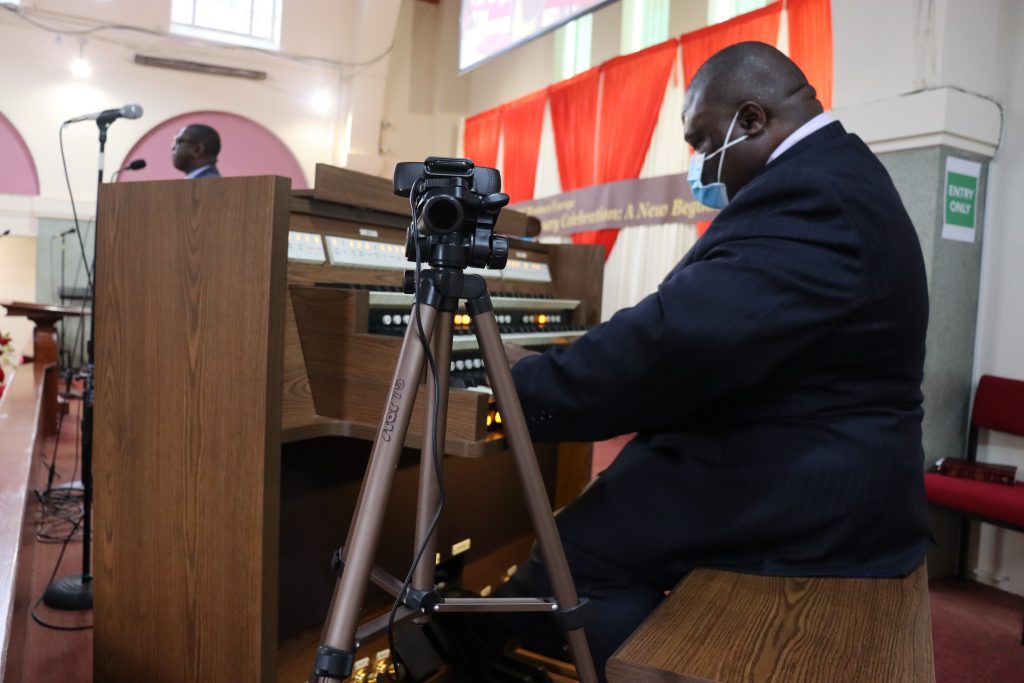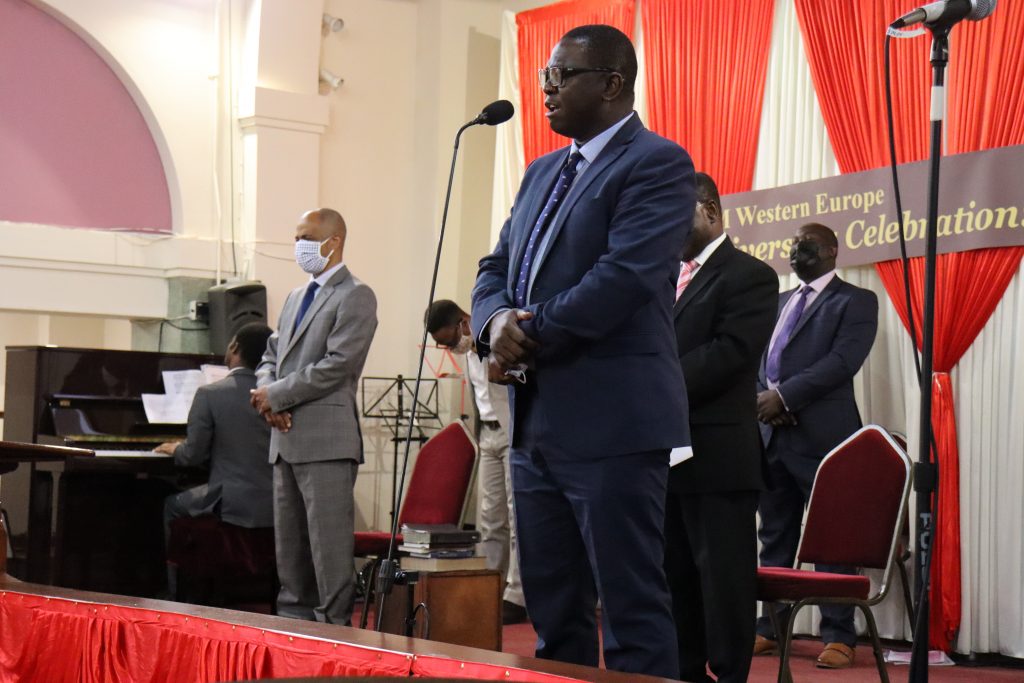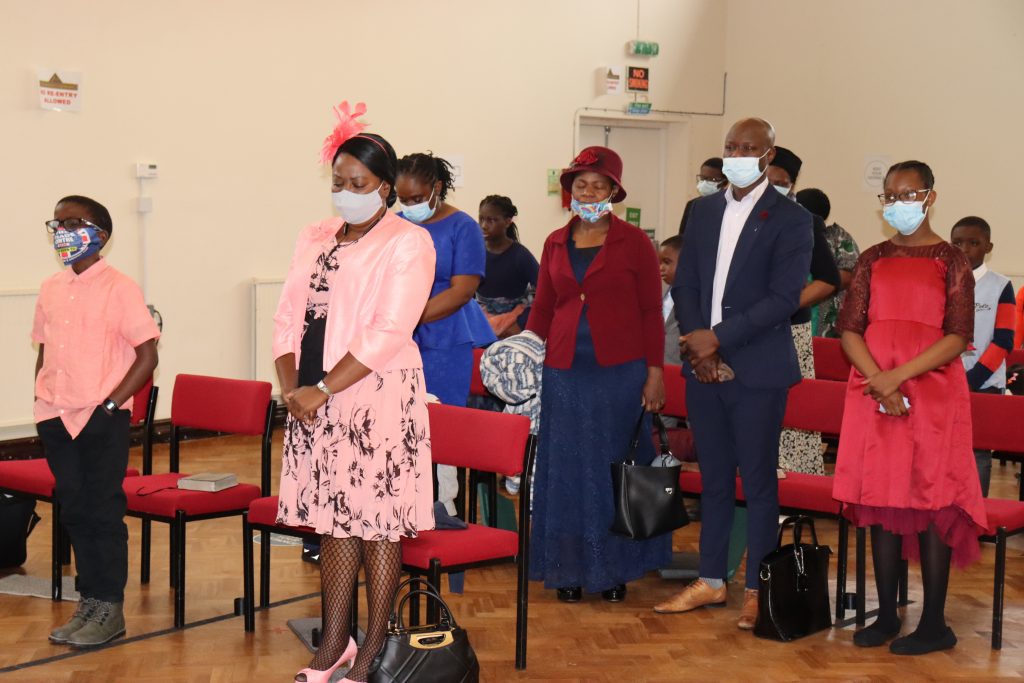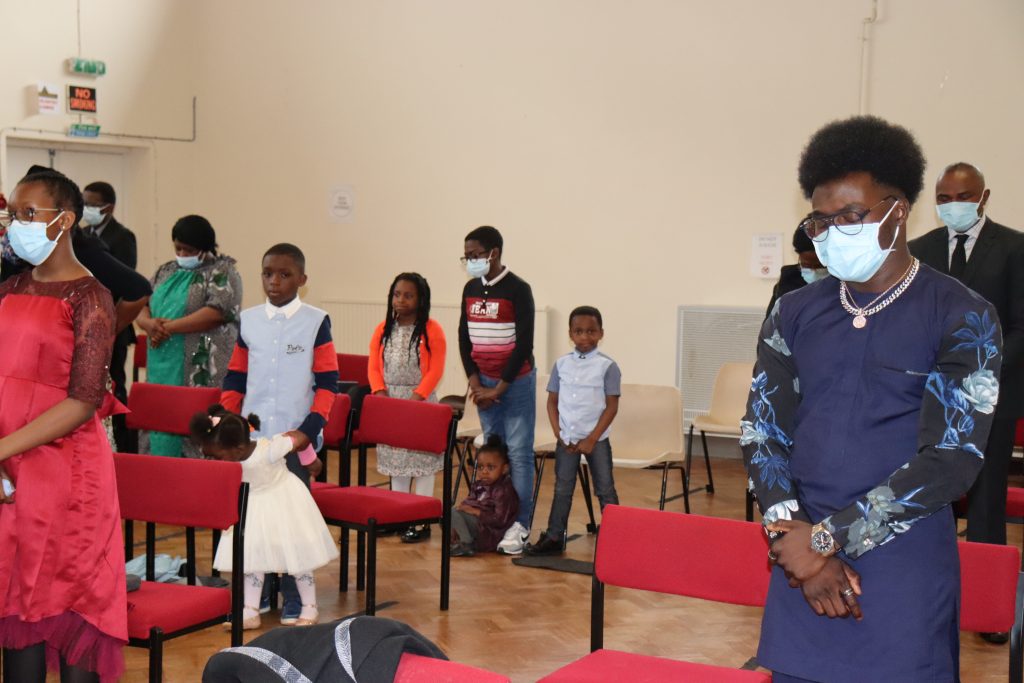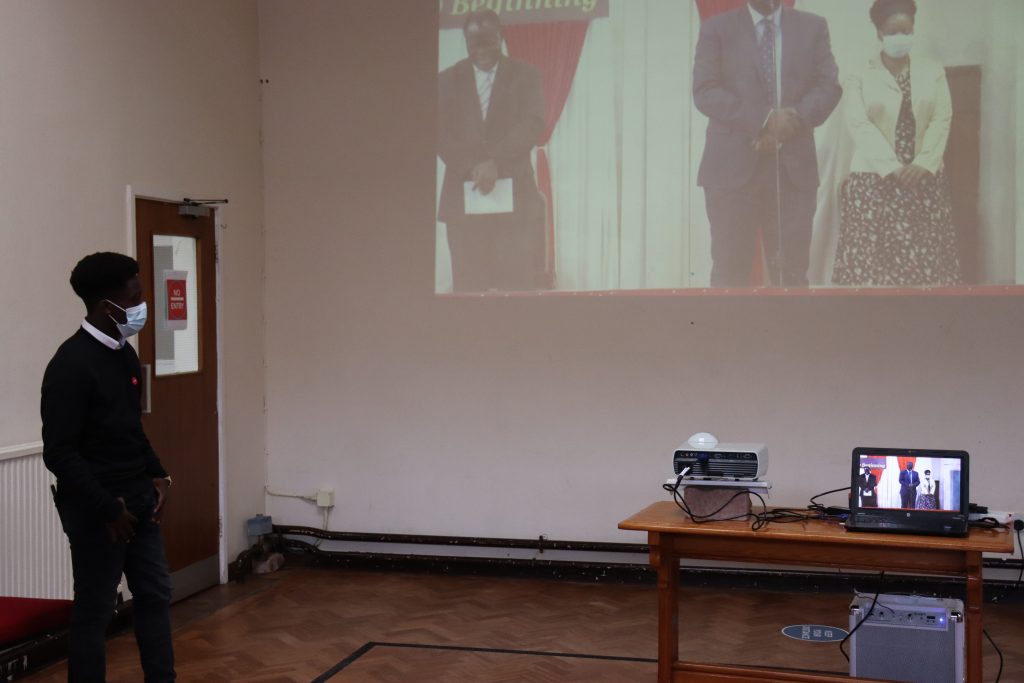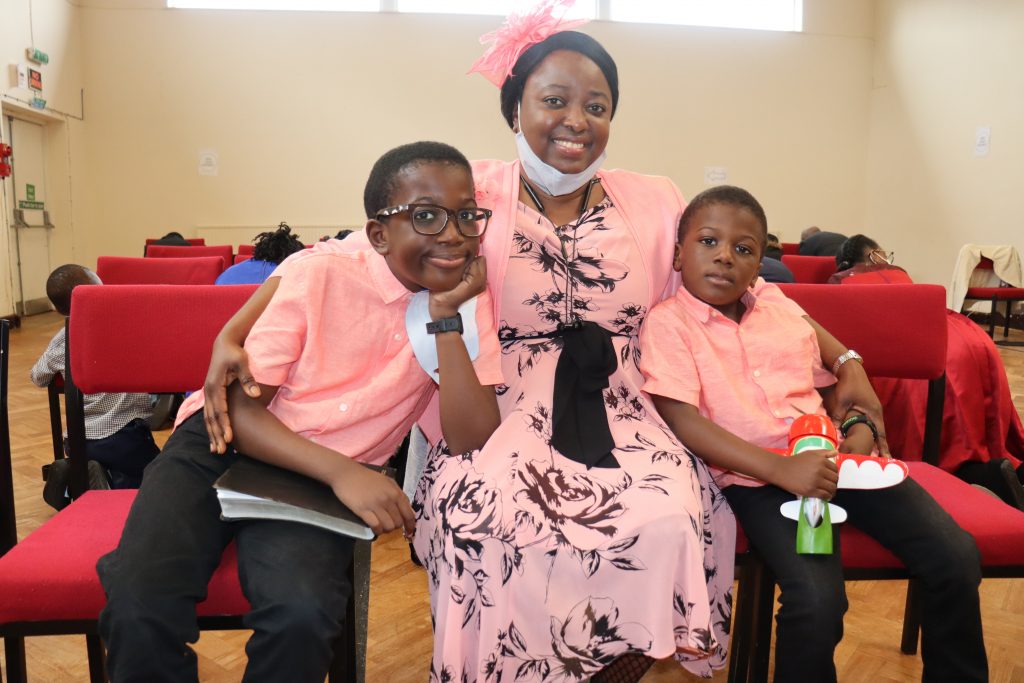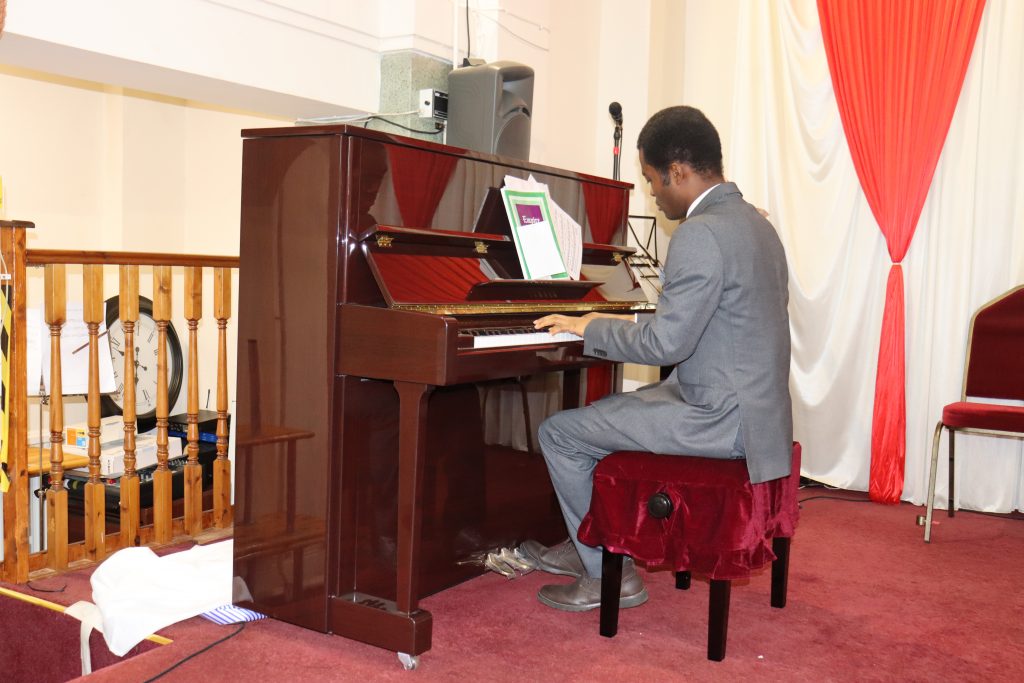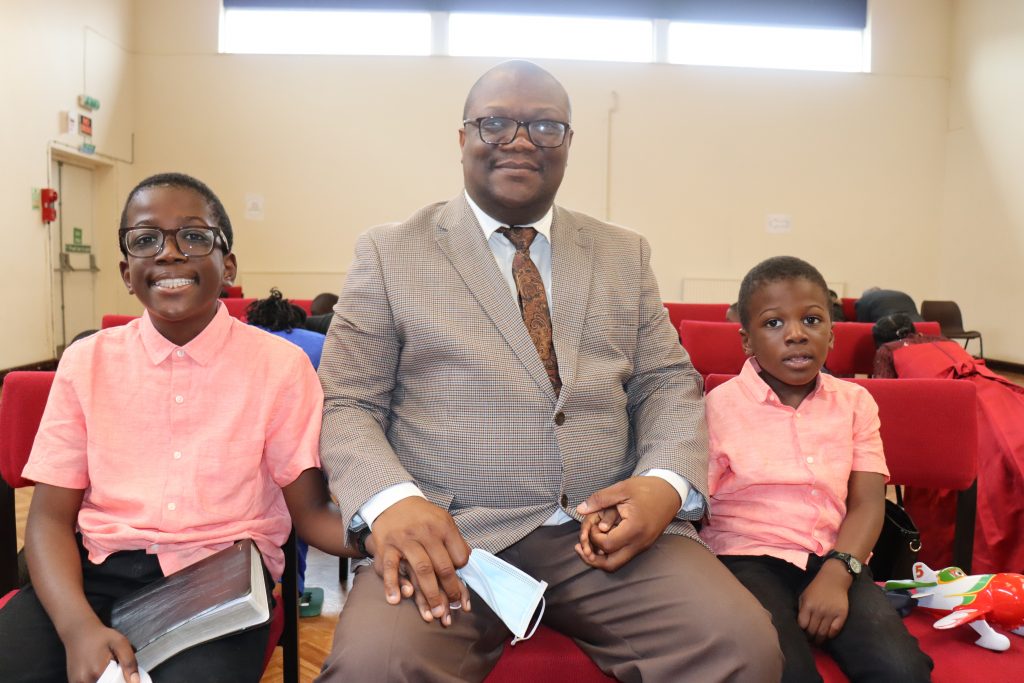“This month shall be unto you the beginning of months: it shall be the first month of the year to you.”
Exodus 12:2
April is our Month of ABIB in the Apostolic Faith Mission as an organisation. It is our “beginning of months” and has been from the moment of the Azusa revival fire that put the mark of God upon the founder of the organisation, Florence L Crawford who was present at those meetings. The call on her life in 1906 led to the birth of the organisation. Fast forward to April 1976, and there was another “birthing process” in which God used Rev. Victor Olusegun Okusanya to start Apostolic Faith Mission in the United Kingdom and 24 years later in April 2000, God again did a “New Thing” by orchestrating the baton change that saw the leadership of the UK Church change hands to put Rev. Isaac Adigun on the hot seat.
Through the first 45 years of existence in the UK, God has shown Himself faithful. He has continued to do “New Things” as a routine, from assuring the purchase of the first London Church at 95 Fenham Road, to the explosion of new churches not only across the United Kingdom but also into continental Europe. All glory and honour be ascribed unto our God!
In celebration, the whole of the week from Sunday, April 25, 2021, to Sunday, May 2, 2021was spent as a special week of thankful remembrance and reminiscences. This is our time to “return to Bethel”, as it were, to rekindle the fire that God Himself lit when He set up the organisation first in Portland, USA and thence to other corners of the globe including the United Kingdom.
The devotional service on the opening Sunday of the celebrations, April 25, 2021, was quite evocative. The whole service exuded the spirit, not only of happy remembrance but of the beginning of a New Thing, which must have been divinely inspired as the message that came was “A New Beginning”! Rev. Isaac Adigun, Western Europe District Superintendent, gave the message. He looked back at the wondrous things the Lord had done in and through His special vessels, particularly Rev. Victor Okusanya, and the miraculous follow-throughs that God orchestrated. It requires faith, consecration and ceaseless prayers to move heaven’s hands. As those ingredients became available, the Spirit of God moved mightily enough for the “tiny church in Peckham” to become the focus of the local media as “the praying church where miracles occur”. The import of the message is that God is prepared, even today, to do new things and grant new beginnings to His people. Rev. Adigun enjoined the congregation, both physical and virtual, to take the week of celebrations as an opportunity to “hold on to the edge of His garments” and make “virtue to come out of the Lord” once more as it happened with the woman with the issue of blood. All it requires is that we dare to believe!
Virtual Young People’s Service – Sunday, April 25, 2021
The celebrations did not leave out the young people, the lifeblood of any community. The virtual service, held at 5 pm did justice to the spirit of the times! Testimonies of God’s healing power, even among the youth, rang out from the very kernels that have started to yield new “ears of corn” for the church. The service showed once again how blessed we are as an organisation and confirmed that should Jesus tarry, there is no need to fear for the future of this organisation that God Himself planted.
The powerful message: “Are you covered / Insured?”, drove home the point of having confidence only in God and His plan of Salvation. Taking his main text from Psalm 118: 8-9 which enjoins that we put our trust in the Lord rather than put confidence in “princes”, Bro. Stan Nyakuhwa, the leader of our group in Leicester, illustrated the benefits, especially the eternal benefits, of having Jesus as the Captain of our “Ship of Life”. He sent out a clarion call for young people to heed the call and become the “prophets of their generation” that God is looking to appoint. He reminded the virtual congregation that the work in the UK was established by “young people” who were prepared to offer their lives to God for His service.
The Celebrations continued on Monday, April 26, 2021, at 7.30 pm with reminiscences and a prayer meeting anchored by Rev. Mark Mfandarahwa, the Pastor of our Birmingham Branch Church.
It featured a panel of eyewitnesses, including Rev. Godfrey Affiah, Sis. Sola Odunsi and Bro. William Henry.
Rev. Godfrey Affiah arrived in the UK in January of 1981. The London church then was worshipping in a building, which was shared with a Nursery, provided by the London City Mission. Meetings, on average, consisted of about 6 children and 15 adults. Attendance fluctuated, depending on the number of visitors brought to the meeting. A large number of the members were students. The Sunday single service started at 12 noon and after the service, there was always time for fellowship (lunch inclusive – provided by late Sis Martins) with a review of the next Sunday School lesson.
Midweek meetings were held on Wednesdays and Fridays, and it was always required that the venue be cleaned after the meetings, in readiness for the Nursery’s use the following day. After Friday’s prayer meeting, the venue was made ready for Sunday service. All adults served as ushers. While the starting time of service was known, the time to finish was in God’s hands as “Kneeology”, the art of staying on your knees in prayer until God gave an answer, took over. Leaflets were used for children Sunday School lessons, while ‘A series of Bible Studies by the Apostolic Faith Church’, Books 1 – 36, obtained from Lagos, Nigeria were used for adult lessons. There was one single class for Sunday School as the congregation was quite small. Bro. Godfrey noted that nevertheless, it was a lovely time of great fellowship.
As the congregation grew, the Sunday service times changed. Sunday morning service was held at 10.30 am and evening service started at 6.30 pm. Bro Godfrey asserted that prayer was the mainstay, and we bless God that it is still the same today! He stated further: “As the congregation grew, we moved to Fenham Road, Peckham in 1982 to use a building that was initially rented until the Lord, miraculously, provided the funds for it to be bought.” Rev. Victor Okusanya was the pastor, music teacher, and Sunday school teacher all rolled into one! Rev. Affiah thanked God for the strength and dedication God provided to the pioneer Pastor in those days.
Sis Sola Odunsi’s contribution corroborated every facet of Rev. Affiah’s account concerning church services and Sunday school arrangements. She also mentioned that when they moved to Fenham Road, they had a lot of work to do in terms of clearing the surrounding of the church. In those early days, there were just children or elementary classes, no junior class was available in Sunday School. Sunday School for children was taught using Sunday School leaflets for children as well as visual aids such as Bible-in-Pictures, picture rolls and flannelgraph. Sis. Sola was also co-opted into taking the young people in their violin lessons.
Sister Sola went on to recollect that after the church moved to Peckham, there were two different occasions when another group wanted to affiliate with the church, but it did not work out because there were differences in teachings/doctrines that could not be overcome, and Rev. Okusanya was not prepared to shift from the standards of the Gospel that he had received and found efficacious.
Bro William Henry joined the church in January 1982. As was mentioned, the preponderance of the members as students. Bro. William was the first Caribbean (and Antiguan) member of the Apostolic Faith Church in the UK. He started his contribution by appreciating how Christ had led the church through a turbulent birthing period. He emphasized that this celebration and reminiscences should give us hope and courage for the next 45 years if it pleased God for Christ to tarry. He recollected that initially he was in two minds about joining the AFC in the UK, but added that the motto of the church found in Jude 3, “Earnestly contend for the faith which was once delivered unto the saints.” made him stay as he could see brethren who literally lived out a life of contending for that faith. The group, when Bro. William joined, believed that prayers could move mountains, and it certainly did for them.
Bro. William also added that he was drawn in by the pioneer Pastor’s stance on consecration. The razor-sharp focus was prayer. “Sometimes, we started prayer meetings at 7pm and left at 12 am the following morning” he stated. In the 1990s, he further explained, the South London Press described the Church as a “praying church”. Bro. William continued: “There were people who did not have children, and some were facing deportation issues but through prayer and consecration, all these issues were resolved”. The key statement from all the accounts was that ‘Prayer Made Us Different’ and it still does today!
Rev. Mark Mfandarahwa rounded off the session on reminiscences with a call to prayer, using Psalm 85:4-7.
“Turn to us, O God of our salvation, and cause thine anger towards us to cease……Shew us thy mercy, O Lord, and grant us thy salvation.”
He said: ‘If we want God to work on our behalf, we have to engage in ‘kneeology’ (a term coined out by Bro William during his recollections) and pray’! May God give us the zeal and power to pray.
For Tuesday, April 27, 2021, we had Rev. Isaac Sodipe as the anchor for the reminiscences and prayer sessions. The reminiscences were offered by Sis. Funmi Akinwunmi, Bro. Saula Ogunkoya, Bro Ade Akinola and Sis Arit Nduoyo.
Sis. Funmi Akinwunmi’s account centred mostly on Music. She said Rev. Okusanya’s plan was to return to Nigeria after his Music study at Goldsmith’s College in the UK, for which he had a scholarship. Although Rev. Okusanya did go back to Nigeria, where he was a principal organist, music director and examiner, after his studies, God brought him back to the UK for His work. Back in the UK, with a very tight schedule of work, Rev. Okusanya still gathered people for services and through him, God mended a home that had been broken for 29 years. Rev. Okusanya was particularly instrumental in the music ministry, which was his forte.
Sis. Funmi came from Nigeria with a letter of recommendation as a senior chorister, but there was no choir and orchestra in London! Oftentimes, Bro. Ayanlaja, a student who was in the UK for his studies, would play the clarinet whilst Sis. Funmi sang. After completing his studies, Bro Ayanlaja returned to Nigeria, after which Sis Orlu arrived to join the congregation. To help with instrumental training, Rev. Okusanya brought a gentleman from his university to teach violin and cello, but the man wouldn’t teach the class as he felt the students were not qualified for the class; however, Sister Funmi’s husband, Bro Akinwunmi, would go to the man’s place to learn cello.
Rev. Okusanya taught some students with support from other qualified musicians in the church, which included:
- Sis Sola Odunsi – taught the kids Violin.
- Caroline Ladeinde – taught voice production.
- Ayo Sobowale – taught some young people rudiments of music
- Bro Solomon Oshun – prepared the Choir members for ABRSM examinations.
Bro Solomon Oshun, who until then was a member of a different Church, was invited to the Church by Bro Ayo Sobowale. God was able to later convict and save. Bro. Solomon then became the principal organist of the church. He later left for Nigeria where he became a principal organist too. God helped him to return to the UK later, where he continued as the principal organist. As a result of the progress made in music, broken chords started vibrating again as backsliders started returning to the fold.
Sis Arit Nduoyo’s report also had to do mainly with Music. Posing the question – “what is worship without the music?”, she corroborated large areas of Sis. Funmi’s account. Sis. Arit read portions from Psalm 149:1,4 and 150:4. She said, “Though we were few, we all sang from the bottom of our hearts, and When we sang songs from the bottom of our hearts, souls were saved”! Sis. Caroline Ladeinde was the choir leader. Bro. Bode Odulaja later joined the group from Nigeria as a trumpeter, and it was a great addition to the Choir.
As mentioned previously, Rev. Victor Okusanya had a passion for music and trained all his children in music. Sis. Ladeinde also very helpful with the music ministry. Sis. Arit mentioned that the first organ they used was FARFISA2, a manual, 1 Octave Pedal organ, which was taken to Peckham when the Church moved. When it stopped working, a two-pedal organ was bought in its place. One of the brethren from Norway donated the money that was partly used to purchase the first piano. In 1994, the first evening of music was held with great success.
Bro. Saula’s memories centred on the Boys and Girls club. The Club was started in the 80s by Sis. Funmi Abdulai and Sis. Stella Adigun with activities taking place at Sis. Funmi’s house. Later on, the club outgrew the house and was moved to the church. The club entailed activities packaged to run between morning and evening services, with lunch thrown in. The children taking part in the activities were first the children in the church, but the organisers also knocked on neighbouring homes to invite children to attend the activities.
Bro. Ade Akinola gave an account of the metamorphosis of the Audio-Visual Department. Bro. Ade joined the church in 1983 but was not very regular until 1985. The Audio-Visual (AV) department started out of necessity as the congregation was struggling to hear the service properly. Bro. Femi Fatunde, then an usher, brought him in to assist because of his expertise in electronics. Bro. Ade’s role was to make sure the loudspeakers in the sanctuary functioned properly, and people could hear the proceedings of the service well. Soon after, members started requesting recorded sermons and the department rose to the occasion by recording messages in audio cassettes. The production of these cassettes was tasking and a bit complicated for lack of facilities. Bro. Fatunde bought some Audio-Visual equipment too. Bro. Steinar Bruvoll, from Norway, gave the UK Church an Audio Tape Duplicator, which enabled the duplication of a “master tape” to four tapes at once. This proved very helpful. The church had a library where people could borrow these cassettes and Sis. Bola Ogedengbe was the librarian.
During the Easter or Christmas Seasons, the department would rent a projector for film shows. At some point, because of rising needs, they had to get a television screen and a camcorder to relay service proceedings to nursing mothers who had to watch services in the kitchen. Occasionally, outside activities like going to leisure parks created a need for documentation of those events. To meet that need, the church bought a VHS camera, and the first outing for that camera was at Safari Park.
In 2001, the church was in Liverpool for Camp Meeting, and Dr Bayo Ladeinde came on board to help the AV crew. Another video player was acquired in 2003 to enhance the work of the department. Brother Ade continued, “As the congregation grew, the main Church auditorium because too small and could no longer contain everyone, as some had to watch the services from the prayer room.” It then became necessary to acquire multiple screens to allow those in the prayer room to watch the services. This growth in membership led to some creativity in managing the needs of the department.
Bro. Ade rounded off by mentioning the contributions of a host of people to the development of the Audio-Visual Department. The roll call included Bro. Lekan Aremu, Bro. Ike Onyemaobi, Bro. James Olaleye, Bro. Toyin Ajayi, Bro. Ikpaisong Ukpe, Bro. Michael Owolabi and Sis. Esther Onabanjo. Bro. Ade stepped aside from the team in 2015.
In his concluding remarks, Bro Isaac Sodipe read from Lev 9:23,24.
And Moses and Aaron went into the tabernacle of the congregation, and came out, and blessed the people: and the glory of the Lord appeared unto all the people. And there came a fire out from before the Lord, and consumed upon the altar the burnt offering and the fat: which when all the people saw, they shouted, and fell on their faces.
In those early days, the Lord brought something out of nothing. He asked: Is our fire still burning? He concluded with a call to prayer by saying we needed to check our hearts to be sure our fire was still burning.
In the 1990s, there was an influx of young people from Nigeria, and when Bro Ola Balogun arrived, he became the leader of the group, with the name changing from “Boys and Girls Club” to “Youths Club for Christ”. Under the leadership of Bro. Ola, the club grew. Children who were not members of the church were invited, using the church buses to pick up and drop them off. The allure of learning instruments made children from outside the church join the club, and this led to the start of the Salem Academy of Music. At a point, about 40% of the students of Salem Academy were not members of the church.
Salem Academy has really impacted the church, and we now have other music schools in some of the branches. It has had an impact on other churches as well, as two of the students who graduated from Salem Academy have set up a music school in their own church.
Wednesday, April 28, 2021, brought us to the midway point in our week of celebratory remembrance. The evening programme offered another opportunity to watch a movie of the celebrated Welsh Revival of 1904. The Welsh revival was one of the most far-reaching revivals that ever took place. In the movie, we saw how the revival broke out and how it changed lives and impacted the entire society. Through the use of contemporary letters, interviews, photographs, and songs, the movie examined the 1904 Welsh Revival through the eyes and thoughts of the Revivalist himself, 26-year-old Evan Roberts. From his conversion at age 13 to the outbreak of Revival in November 1904, the movie retraced the steps of his spiritual development from the coal mine and blacksmith’s shop to the grammar school at Newcastle Emlyn and the actual outbreak of Revival at his home church of Moriah Loughor.
“Lord, Bend ME” was a heart’s cry that moved heaven’s hand and rained down revival.
At the end of the movie, Rev. Isaac Adigun reminded everyone present of the question posed by Evan Roberts: “How about if the Spirit came and you are absent?” He emphasised the need to be present at meetings as no one was sure of the time the trumpet could sound. Sis Chioma Okere closed the meeting with a prayer.
Thursday, April 29, 2021, was another night of prayer and reminiscences anchored by Rev. Ola Balogun who introduced a panel of brethren who were there when the church planted its roots 45 years ago. They included Bro. Godwin Okusanya, son of our founding father, saw it all from close quarters during his formative years. His closeness to the “furnace of prayers” forged him into an enduring instrument that the Lord has not let go of since then! Bro. Godwin was saved at the age of 14 and is still marching on in God’s service! Hallelujah!! Also, on it was Sis. Henrietta Animashaun, Sis. Elizabeth Adewole and then Sis. Stella Adigun (then Aganbi), who held sway in the Okusanya household, allowing Rev. Okusanya and his wife to “plough the fields and scatter” far and wide, wherever the call led.
Sis. Animashaun started reminiscing by saying “I thank God for a day like today. I came to Apostolic Faith Church because I was bereaved but my burden was lifted in the first service. Later I got saved. I thank God for our brother Rev Okusanya, for bringing the church to England. If not for him, I would not understand Christ or know what it is to be saved. I had a sickness that got worse after I got saved. I had a consultation with my GP and after, I went to my pastor to inform him of the pain in my body. He asked me to pray. The church was always open then and I went to pray.
It was a cyst in my stomach close to my kidney. At some point, I had to go to the hospital to be admitted for an operation.”
Sister Henrietta continued, “Before the surgery, the GP ordered that one more X-Ray should be taken before going into the theatre. This final X-Ray did not show the cyst anymore”. I said to the doctor, “Maybe my case is beyond help!”. I was crying. The doctor told me “No, do not weep, you are fine”. He then discharged me. I went home that day and decided to go and inform Bro. Victor the next day. I showed the Pastor the doctor’s letter and he said, ‘I told you! See what I told you, God answers prayers!’ Since then, I have made up my mind to serve Jesus. Jesus is real. I am going to serve him until my last breath”. Another shout for the power of prayer!
Bro. Godwin Okunsanya’s Account was a guided interview of sorts, as Bro Ola pushed for his recollections in specific areas of the work.
Bro. Ola: Your home was a household name in the 90s. Can you tell us the practicality of seeing the church and home in one place? How did you cope with the house being an office as well as a mission house?
Bro. Godwin: “It was a major experience. It fashioned me. It was perennially busy. It wasn’t really the church mission house, but it was effectively the guest house for those who just arrived in the UK. It was a blessing seeing things on the inside and the practicalities of seeing what dad preached. The church was 95% students. Prayer requests were mainly about immigration issues, visas that needed to be extended and deliverance from deportation. Sunday was an all-day affair, from 7 am to 12 am or even 3 am sometimes. If there was a soul praying in church, we had to wait until that person finished praying. Even when we got home late, dad would still wake up to pray. The life of prayer really wore him. It was challenging but a blessing at the same time. We did not have a father that had the time for us, but today, we can count the blessings”.
Bro. Ola: “Give us one example of a good outcome and challenging outcome from one of the outreach events in those early days…visiting old people’s home, etc”.
Bro. Godwin: “What really struck me was that there was such a hunger in the local community which, incidentally, led to the start of the boy’s and girl’s club. I was blessed to join the team that went out to pick up Gypsies from their camp. It was challenging because there were wild dogs, but the parents were always willing to let us take their children to church. I was called the Jesus man. There was a time I met one of the kids, who is now grown and called me Jesus’ man. I thank God that those little lessons stayed with them”.
Bro. Ola: “As a pastor’s child, there were a lot of evangelistic travels… how was life when your parents were out on evangelism?”
Bro. Godwin: “Dad was always busy, but we always had sisters Stella, Chioma and Esther Jelenke to take care of us during those times. As kids, we wore them down with our energy!”
Sis. Stella Adigun’s recollections went on in the same vein, similar to Bro. Godwin’s and the “interview format” was preserved.
Bro. Ola: “In the early days, the church was one close-knit family. How was your experience staying with and being close to the Okusanyas?”
Sis. Stella: “I came to this country in 1981 for studies. I stayed in the students’ hostel in the Westend of London. I was brought up helping the mission house in Nigeria and I felt I should help in the UK too. During holidays, I always moved to the Okusanya’s to help while their parents were away. I was like the aunty in the house. I would dress the kids up and do the cooking. I saw first-hand the great hand of God. Rev. Okusanya instilled faith in us and we saw miracles. There was great faith exhibited in the house. Whenever there was nothing to wear, we just believed God would do something about it. It was a blessed time. Bro Victor was like a timeless man and God worked through him. He helped me to learn to pray and have faith in God’s Word and promises. It was a wonderful time serving the man of God.”
Bro. Ola: Can you please give us some insight into the fellowship and relationship among brethren during those early days.
Sis. Stella: We gave homes to one another. We always had people living in other person’s homes. Almost like the Apostles of the early days with Jesus, we almost had “everything in common” in those days. Many of the singles had to live in some people’s homes because things were quite difficult during that time. We made things for each other. We helped each other with jobs. We tried to be there one for another. We were nannies for each other. We struggled a lot but God was there. People shared jobs. We shared money and food.”
Sis. Elizabeth Adewole’s reminiscence showed powerfully the heart that submitted to God’s instructions and demand, even when not convenient. When Sis. Elizabeth arrived in London, she was the breadwinner for the home, but God laid it upon her heart to work for the ministry! What a challenge! It took her some time to bend her will to God’s but she eventually did and informed Rev. Okusanya of her consecration. The Spirit of God immediately prompted her to take a course in computing, which gave her the requisite skill to do the work she was called to.
When God calls and the call is answered, He makes Himself evident in the life that submits to Him.
“And thine ears shall hear a word behind thee, saying, this is the way, walk ye in it, when ye turn to the right hand, and when ye turn to the left.”
Isaiah 30:21
On Friday, April 30, 2021, there was a special Revival & Evangelistic service which started at 8 pm, as part of the celebrations. This service was preceded by a combined prayer session for our brethren in St. Vincent in the Caribbeans who were recently victims of a volcanic eruption that devastated the area. This was followed by testimonies and reminiscences from Sis. Grace Eka, Sis. Jumoke Olayiwola and Bro. Bayo Awobayiku.
Sis. Grace Eka and her husband, Bro Edward Eka, were one of the first people to have water baptism in the Church and this was held in a hired church baptistery on Summer Road Peckham. Their faith was sorely tested when Sis. Grace was pregnant with her daughter Faith, who incidentally is a member of the Choir & Orchestra today. Her water broke suddenly and the doctors advised her to have a caesarean section. She refused to sign the legal documents required and so did her husband. They told the doctors that God was well able to ensure safe delivery! And God did just that! But Satan was not done yet! The placenta refused to separate. All through the ordeal, she was singing in her heart, “I am trusting Thee, Lord Jesus”, and “My faith looks up to Thee”. The saints went into intense prayers, and after some hours of praying, God miraculously brought out the placenta. Was Satan done yet? No!!! Daughter Faith had severe medical issues all the way through her first 11 years of life, at which age she suddenly refused to take any more medication and God honoured her! Faith, true to her name, is now a mother of three in her own right! Praise God!
Sis. Jumoke Olayiwola also had an amazing double whammy of testimonies. First, the Lord miraculously undertook for her in a medical condition that had led her to have series of operations. The last operation almost took her life. When the issue raised its head again, she spoke to Rev. Victor Okusanya and prayer was offered for her healing. She went back to the hospital where the doctors confirmed that the condition was still present, and another procedure was scheduled. On the day of the operation, the doctors had the last scan to check the position of the problem only to find that it had disappeared! They were astounded. They agreed that it was beyond medical reasoning or understanding!
Sis. Olayiwola also had another issue that confirmed that when we stand on God’s Word and obey His injunctions, He will stand with us in the hour of need. She had lied to the British Embassy in Nigeria when applying for an immigration visa to the UK. After salvation, she had a conversation with Rev. Okusanya who said she needed to make things right. She returned to Nigeria and went to the consulate, telling the immigration officials what she had done. They were not only amazed that she came back to make things right, but they also offered her complete forgiveness, giving her a new, now genuine, immigration status!! Our God is great!
Bro Bayo Awobayiku provided the final testimony of the evening. He came to the UK initially in 1981, hoping to be here for 3 years, but now he is in his 40th year in the country! A vivid proof that, as it is said in the scriptures, a man may plan his ways, but it is the Lord that will direct his steps!
Over the years, he worked many different jobs, some of the menial, but the Lord, in His time, chose to elevate him, after faithfully obeying the directions that came from on High! It pays to serve the Lord and listen diligently to His voice.
Bro. Alban Igwe, who himself came to study in the UK in the early 2000s but currently living in Nigeria, gave the Word virtually from Nigeria, to round up the day’s activities. He took his lead text for his sermon from 2 Tim. 1:5, using Unfeigned Faith as his title. He also referred to the motto of the organisation taken from Jude 3, “….earnestly contend for the faith which was once delivered unto the saints.”
Bro Alban said that even though some of us were not privileged to have been there during the early days of the establishment of the Church in the Uk, we can still be in the picture. He challenged the young people especially to “keep the fire burning”, urging them to take on the mantle of the prophets for their generation. His homily was followed by an altar call.
Saturday, May 1, 2021 morning was devoted to a two-hour prayer meeting from 8 to 10 am, split into an hour each.
The first session was led by Brother Francis Odudu, while Bro Lazarus Simbanegavi led the second session. In rounding up the first session, Bro Francis read from 1 Cor. 9:24-27, following which he requested prayers for Rev Okusanya, his children and other children that were part of the history of the Church but no longer attend. The Church prayed that none of these individuals would miss heaven. The prayer sessions were salted by more reminiscences from some members who were there in the early days of the London Church.
Sis. Chioma Okere was a regular visitor to London from about 1977, but she finally migrated to the UK in 1986. Sis Chioma remembered that the church was predominantly populated by students and the attendant issues were those of getting the correct papers that would allow them to work and for Visas to be extended once they started running out. During those days, Rev. Okusanya was “all things to all men”, playing the role of father, brother, uncle, and even solicitor to a lot of his congregants. Rev. Okusanya was ably and completely supported by his wife Sis. Grace Okusanya. The homes of brethren, especially the Ekas and the Abdulais, had “open doors” to one and all.
In the middle of all that, some of the neighbours took the church to court alleging noise pollution; Bro. Ikpaisong Ukpe and Bro. Remi Abdulai represented the church in court, backed by the prayers of the saints.
They came back rejoicing as God gave them victory! Safety was also of grave concern as Peckham, in those days, was a rough environment and the church was burgled on occasions, but God’s protection was always over His people.
Bro. Femi Osayemi came from a Muslim background, but he was saved on the altar benches, often referred to as “mourners benches” for those conversant with the Apostolic faith vocabulary.
He looked back on the difficulty of trying to do evangelism in an environment that was not receptive. It was challenging, but God remained faithful as He watered the seeds that were being sown.
Sis. Florence Osayemi chipped in on how difficult things were, especially for the women, during those days. Husbands could not work as they were on students’ visas mostly, so it fell on the women to do as much as they could to maintain the families. By working together as “one family under the banner of Christ”, the women were able to provide sustenance, especially on Sunday afternoons when 3 families, the Ekas, the Odutuyos and the Abdulais catered for almost everybody.
Bro. Remi Abdulai came to the United Kingdom in August 1982 and after receiving his Christian experiences, played a very large part in the public relations services of the church. He often had to meet visitors at the airports without actually knowing what they looked like, and he never had a placard to indicate who he was, but to the glory of God, the visitors always managed to find him without any difficulties. As money was a scarce commodity, using public transport was the only option available to him most of the time. When visitors happened to have significant luggage, that created difficulties!
How did he and his family cope? God always provided for their needs!
Sis Florence Bamigbade arrived in the UK in 1984 to join her husband. She remembered that only 6 people in the church had cars, but they always made themselves available to ferry those who did not have cars to and from church. Communal living was actually thriving. They lived as one “family of God”. She also remembered that Rev. Okusanya would always wait for the last person still on the altars of prayer to finish before he went anywhere or closed the church. “We had nothing then”, she said, “but we were rich spiritually”.
Bro. Lazarus Simbanegavi rounded off the second part of the prayer sessions. He prayed that the Lord who was with these people who were giving us testimonies of what He did back in the day would continue with us. He said we should ask God to hold our hands as we run this race. He reminded everyone that as prayer was a “staple diet” in those days, it still should be for us today and that the God who answered prayers back then is still answering prayers today.
The evening of Saturday, May 1, 2021, was dedicated to the presentation of a historical video on the history of the Church in the UK. It chronicled the course of the Gospel work from inception in 1976 to the present day which has seen the Church spread across the United Kingdom and spilling over into some parts of Mainland Europe. Indeed, God has been good and faithful in supporting His work in Europe.
Sunday, May 2, 2021, saw the rounding off of the 45th Anniversary Celebrations. The devotional service was set up to give a “nostalgic look back” to what services used to feel like “back in the days” when Rev. Victor Okusanya was the singular live wire of the church, being everything from Pastor/preacher, Organist, song leader and everything in-between! Bro. Godwin Okusanya did a passable representation of what things used to be like, including trying to speak like his dad in the introduction of the songs and thence jumping on the organ to play the tunes to lead the congregation. It was evocative, and for those who remembered what it was like, quite nostalgic
The whole service was evocative as the Spirit of God descended mightily. Reverend Darrel Lee, the General Superintendent of Apostolic Faith Church worldwide, delivered the sermon with the title: “The Gospel Cannot Be Contained.” It ran through the gamut of experiences in the scriptures that could simply not be suppressed, from the leper who was healed by Jesus but was admonished “not to tell anyone”. Nevertheless, he could not contain his joy but noised the miracle abroad! Also, in the account was the raising of Jairus’ daughter from the dead, where those who witnessed the incident were also told not to talk about it but yet, they found it too overwhelming to keep quiet! Bro. Darrel posited that the Gospel is too good to keep covered! The great works of God are just too good not to share. It is imperative that we continue to deliver the “Good News” of Christ’s Kingdom until His Second appearing!
Sunday, May 2, 2021, at 4 pm there was a Family Forum event as the final programme in this week-long celebration. The programme looked at “Cross-Cultural Parenting” and the need to build a “Joyful Community Grounded in the Gospel”. The first part of the programme had been held on March 7, 2021, and had allowed the congregation to examine all of the nuances that were creating misunderstandings between different generations of our church community. This programme attempted to examine the tools that could be put in place to assist families in coming to grips with relationships that were not developing or progressing as they should. Some of the tools suggested included:
- Taking responsibility for situations and not letting things degenerate to levels that may be difficult to correct
- Understanding the differences between teaching and experience. This looked at taking cognisance of the fact that raising a child demands the understanding that children will do what they see being done rather than what they are told to do.
- Communication as a tool to understanding and peaceful co-existence
Sis. Shareen Ojo, who anchored the programme, prayed that God Himself would teach us according to His Word and His promise:
“And my people shall dwell in peaceable habitation, and in sure dwellings, and in quiet resting places.” Isaiah 32:18
May the Lord grant us His Peace in our families. Amen.
Find pictures from the event here.
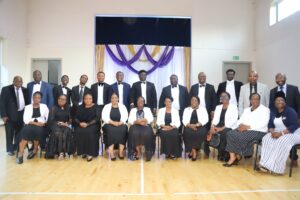
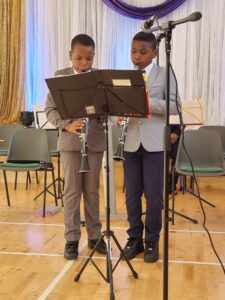
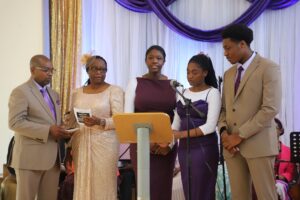
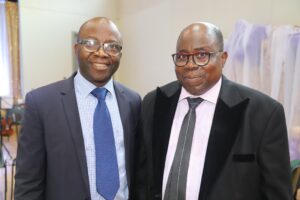
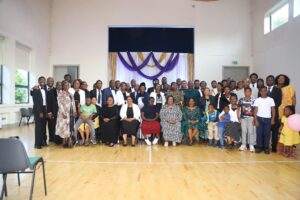

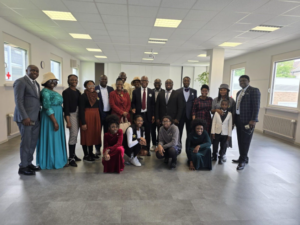
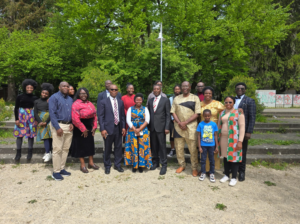
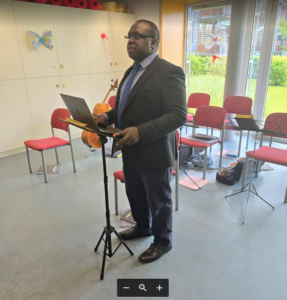
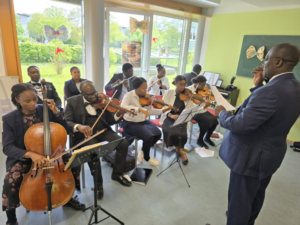
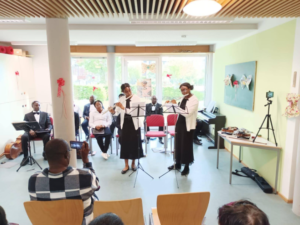
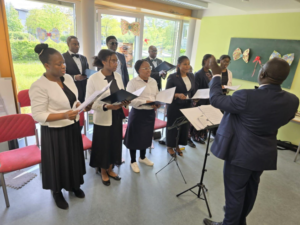
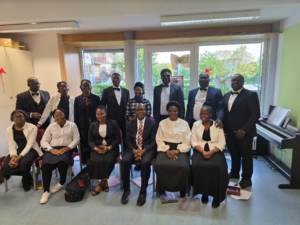
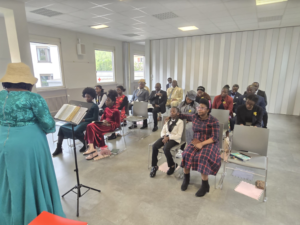
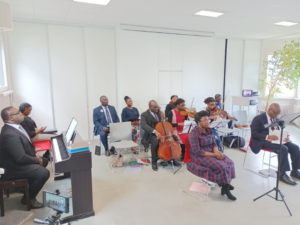
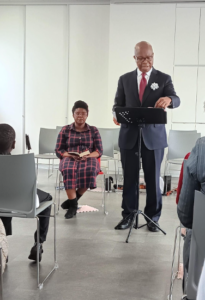
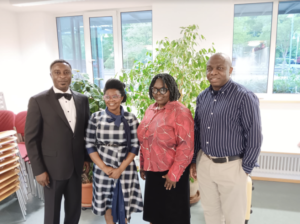
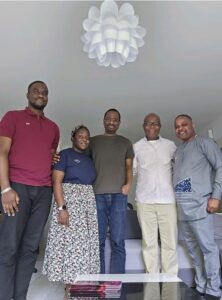
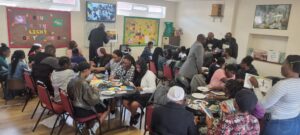
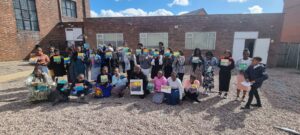
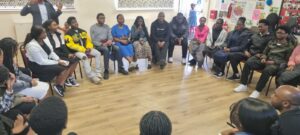
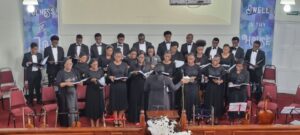
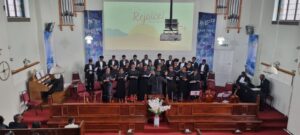
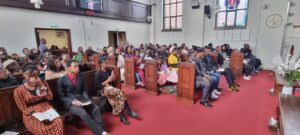
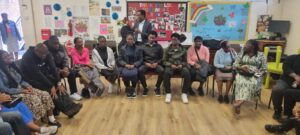
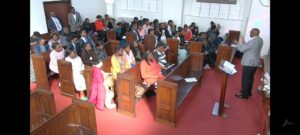
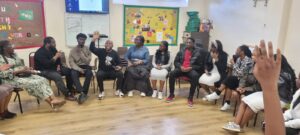
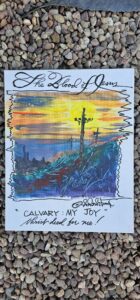
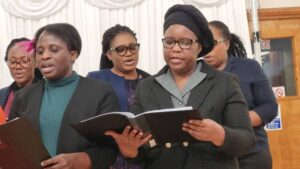
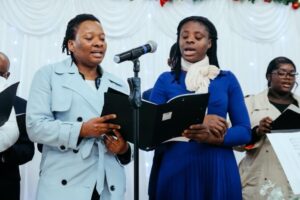
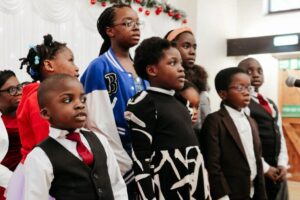
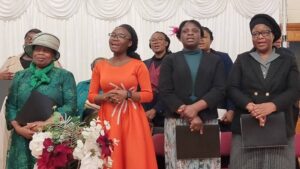
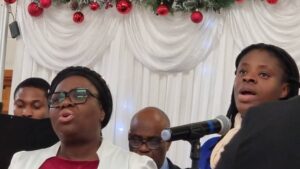
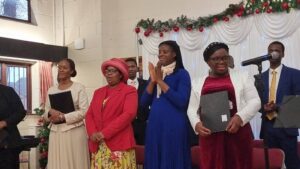
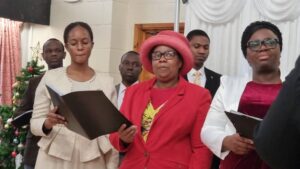
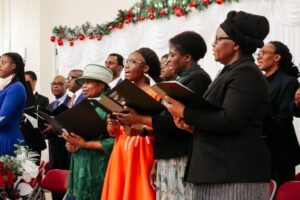
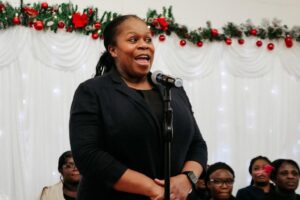
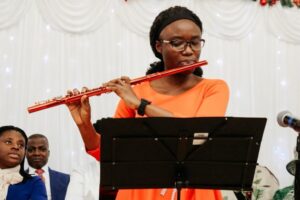
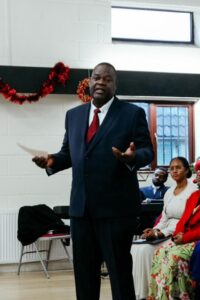
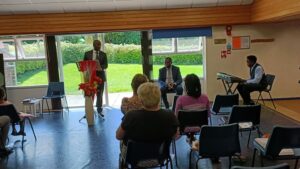
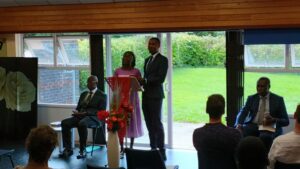
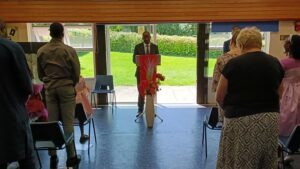
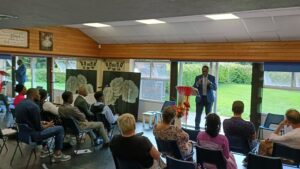
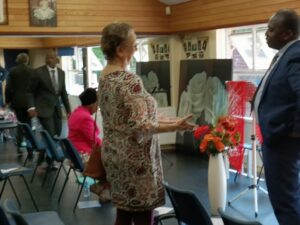
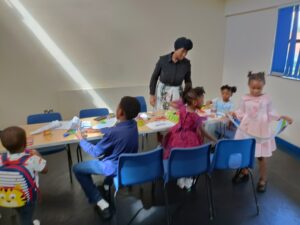
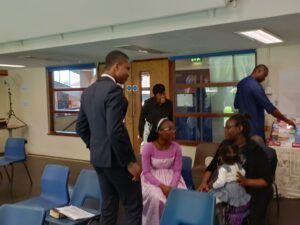
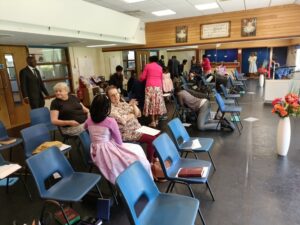
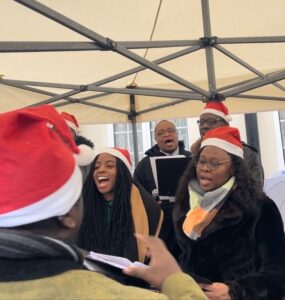
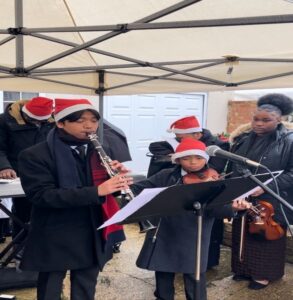
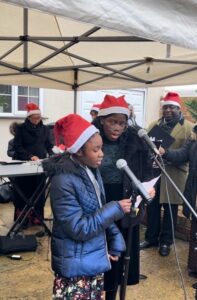
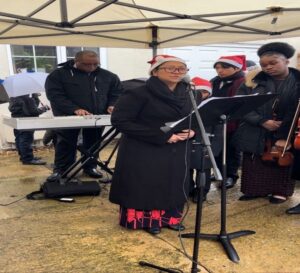
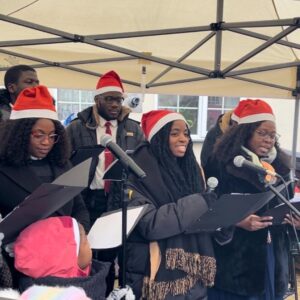
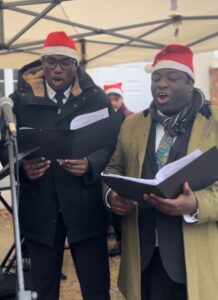
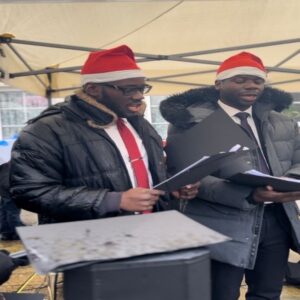
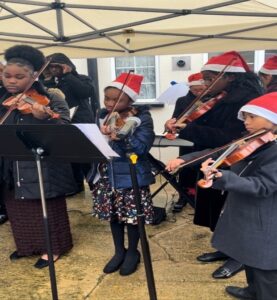
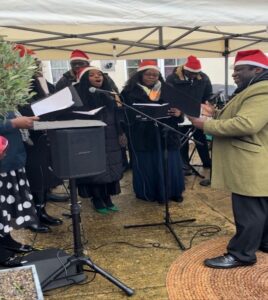
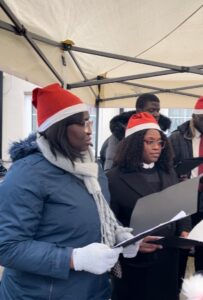
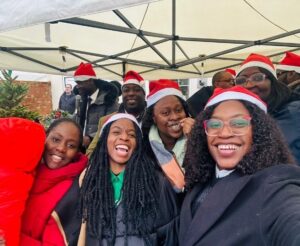
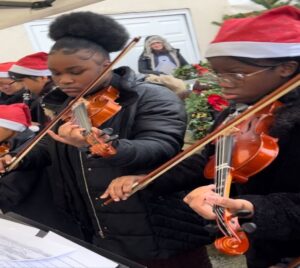
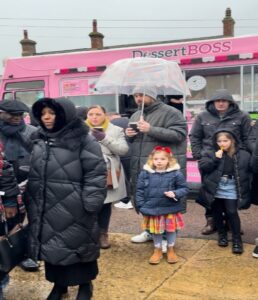
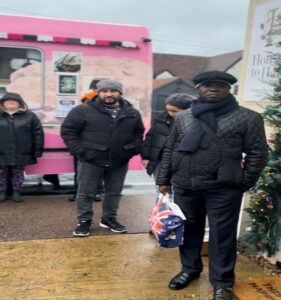
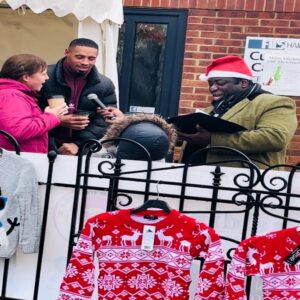
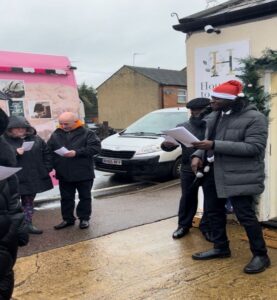
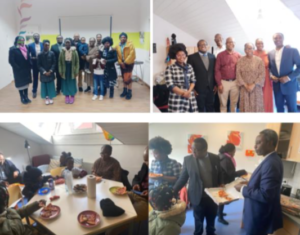
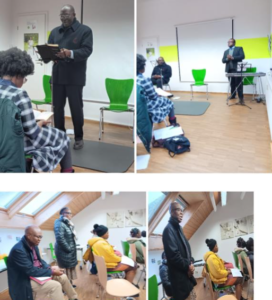
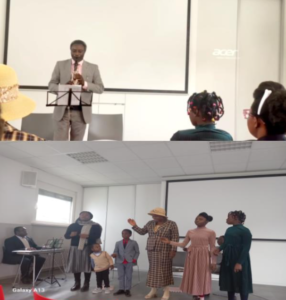
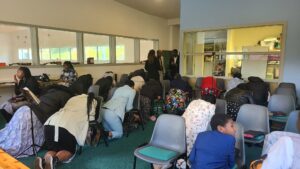
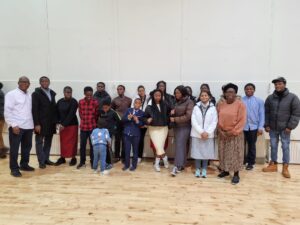
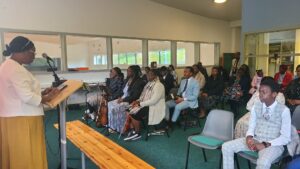
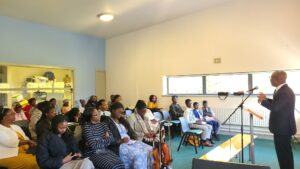
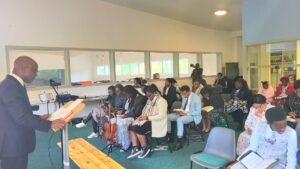
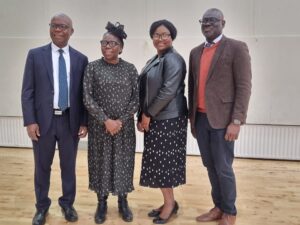
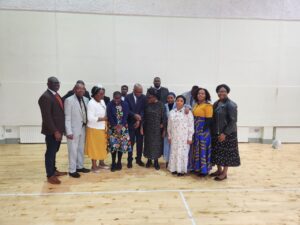
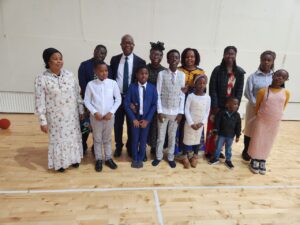
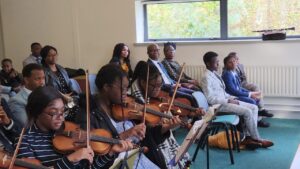
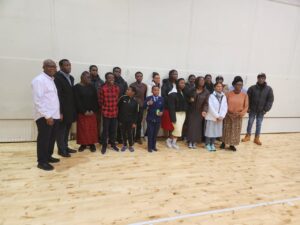
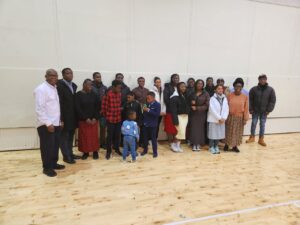
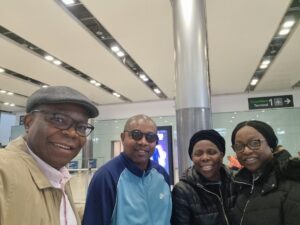
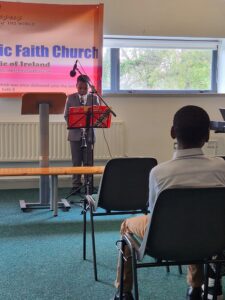
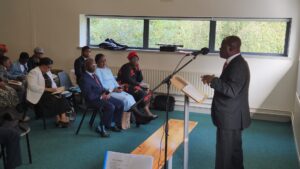
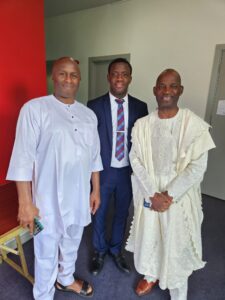
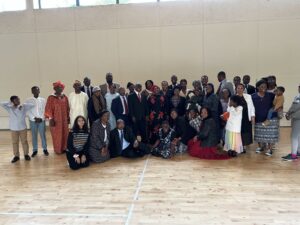
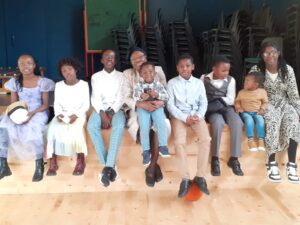
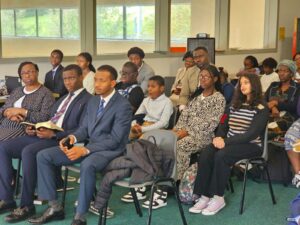
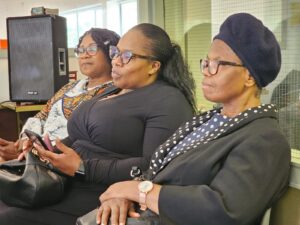
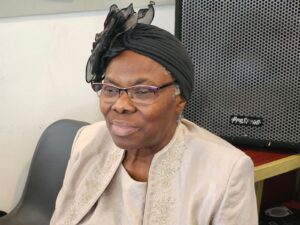
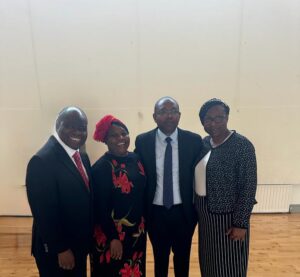
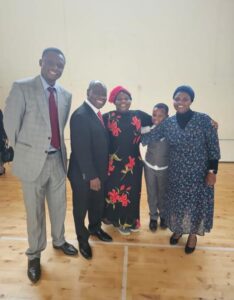
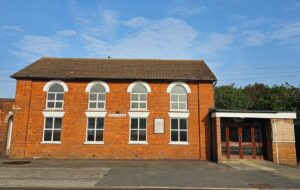
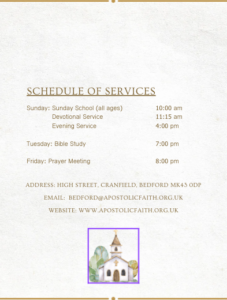
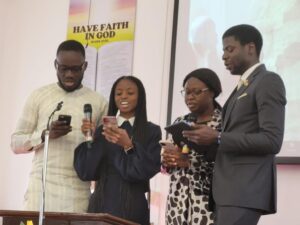
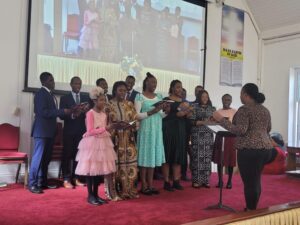
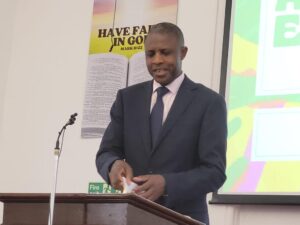
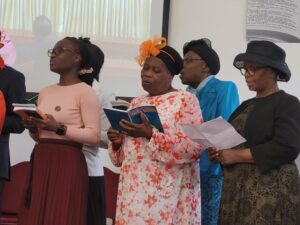
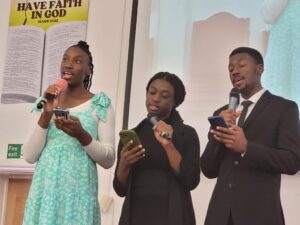
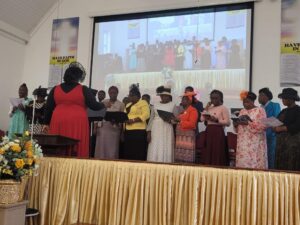
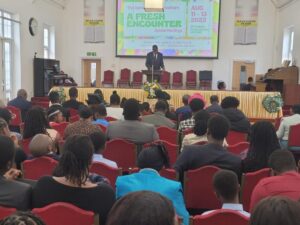
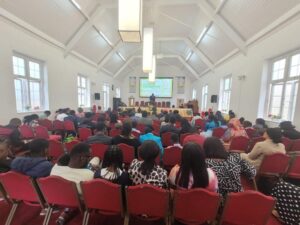

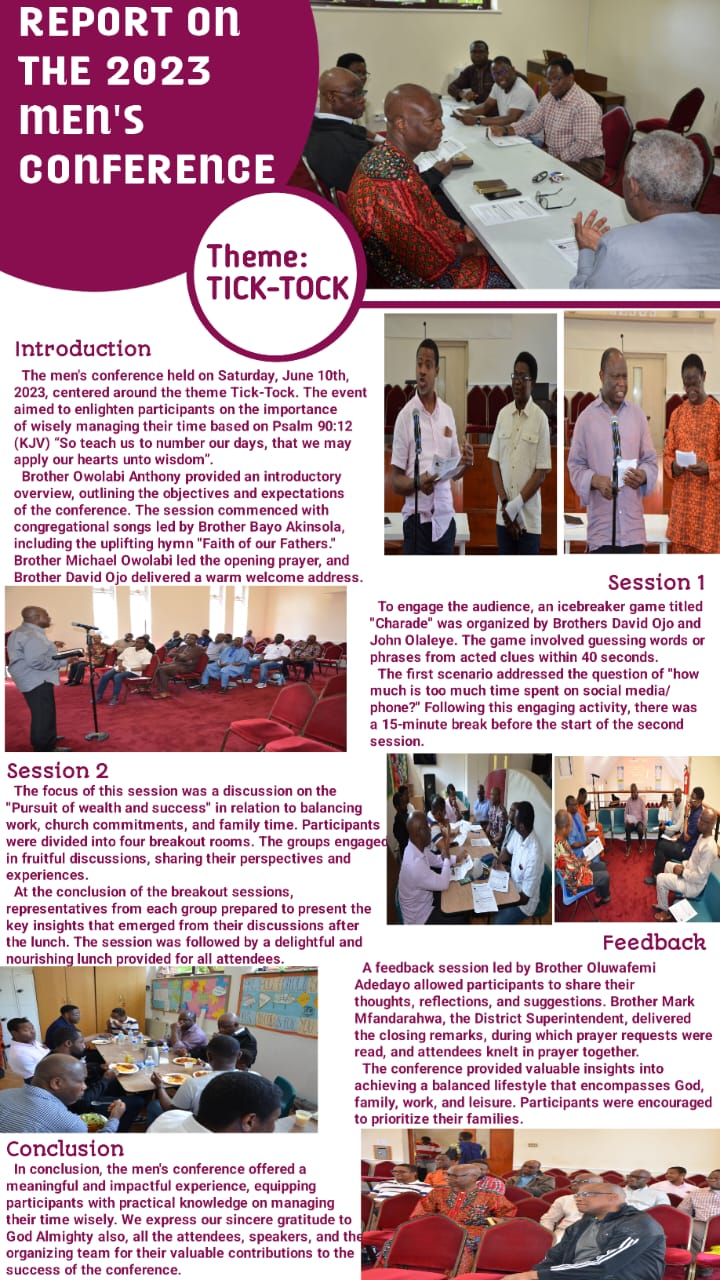
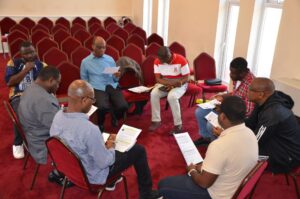
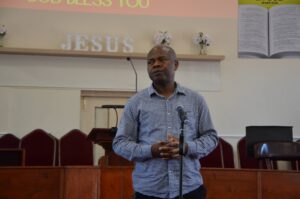
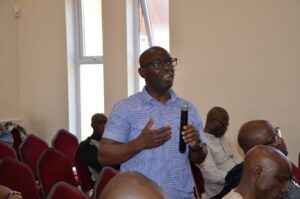
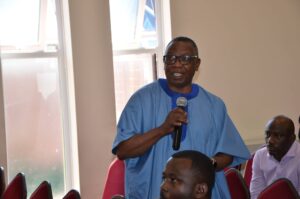
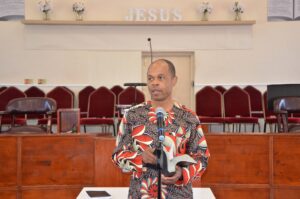
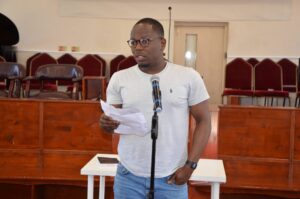
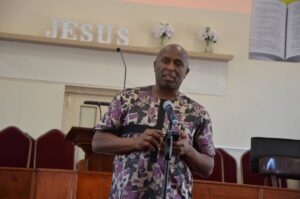
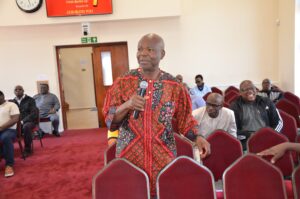
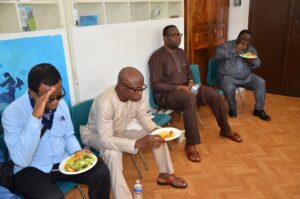
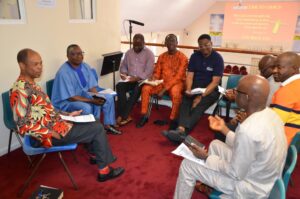
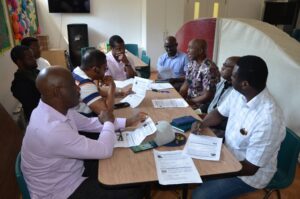

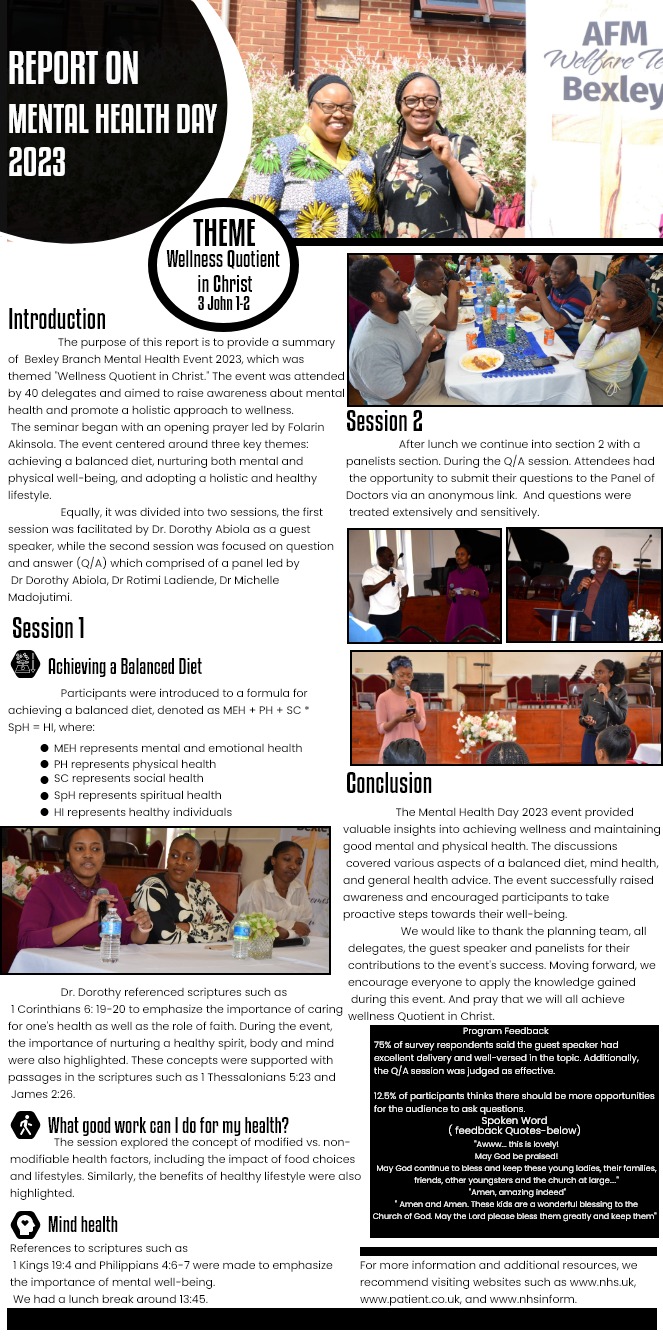
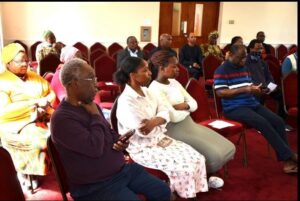
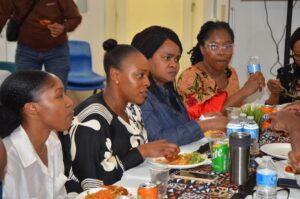
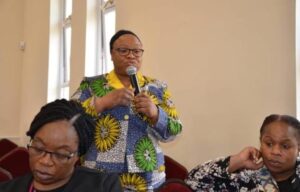
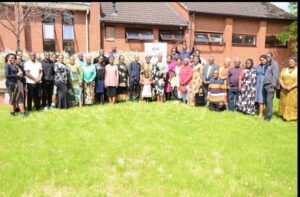
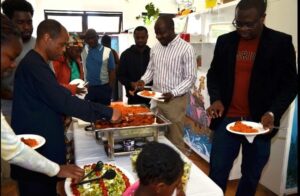
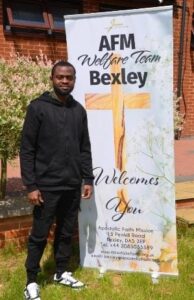
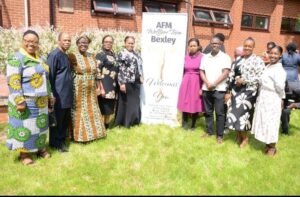
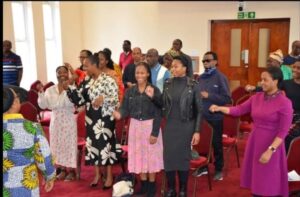
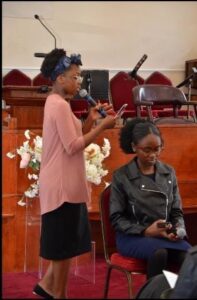
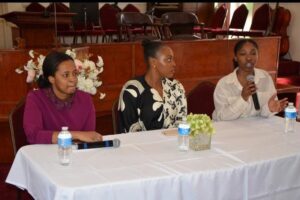
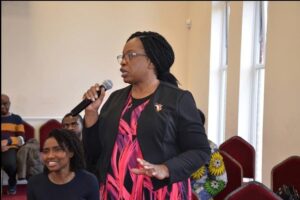
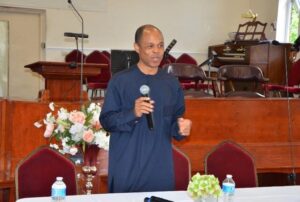
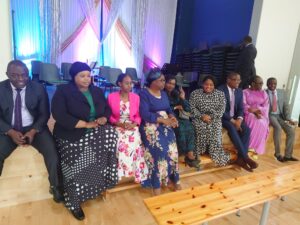
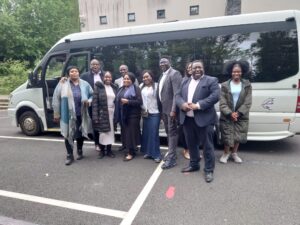
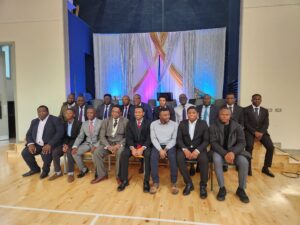
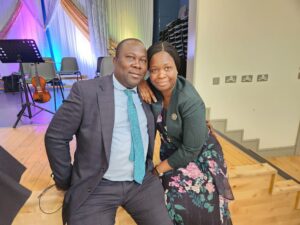
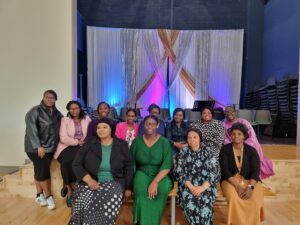
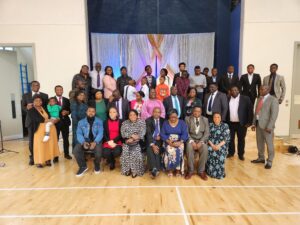
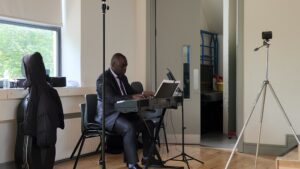
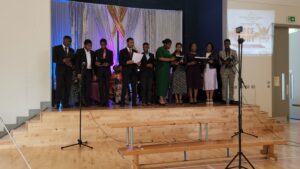
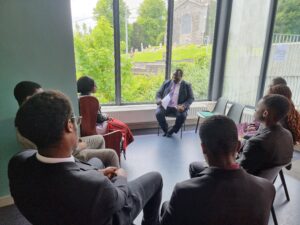
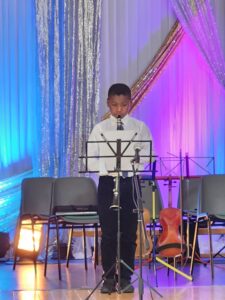
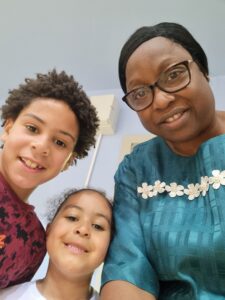
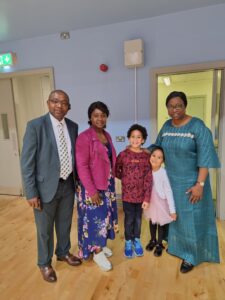
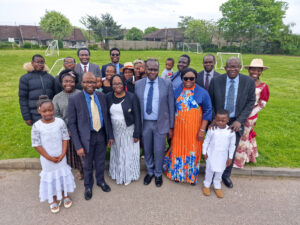
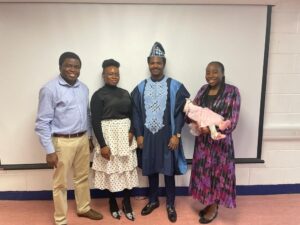
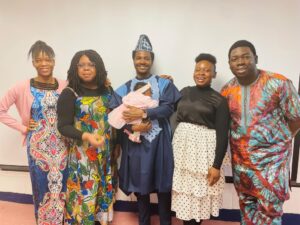
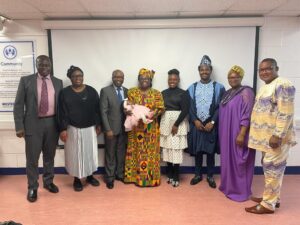
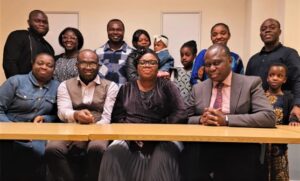
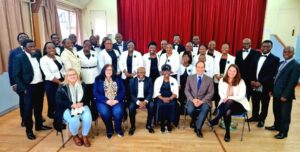
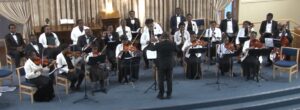
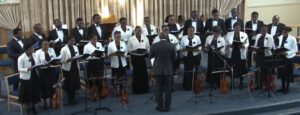
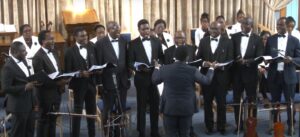
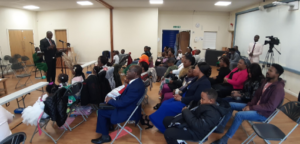
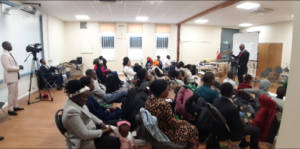
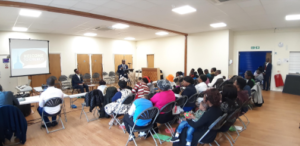
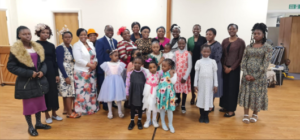
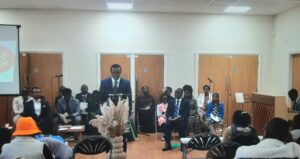
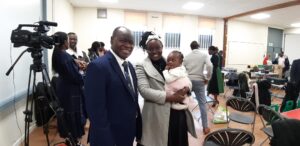
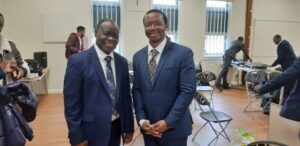
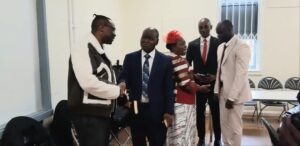
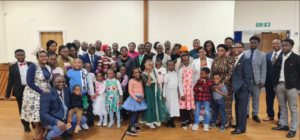
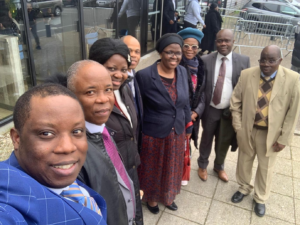
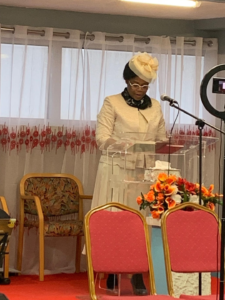
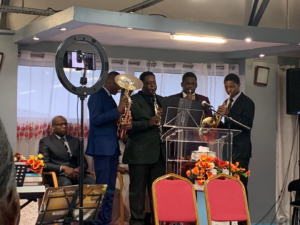
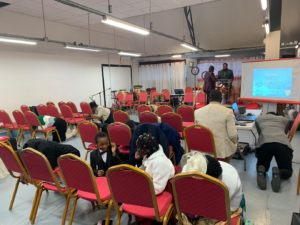
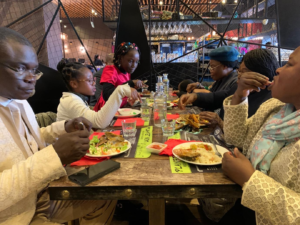
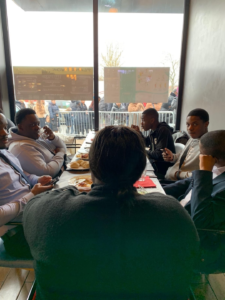
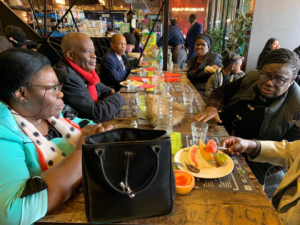
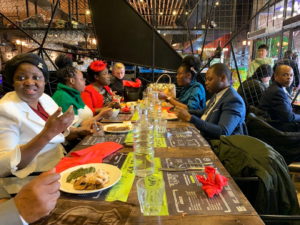
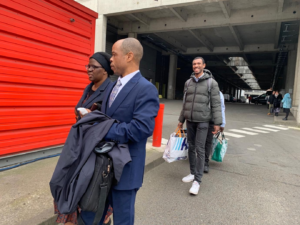
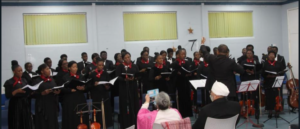 (Coventry)
(Coventry)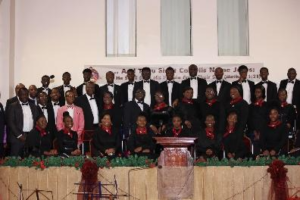 (Birmingham)
(Birmingham)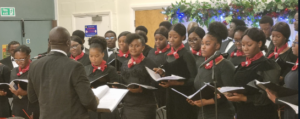 (Leicester)
(Leicester)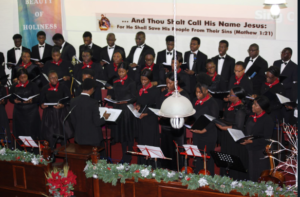 (Manchester)
(Manchester)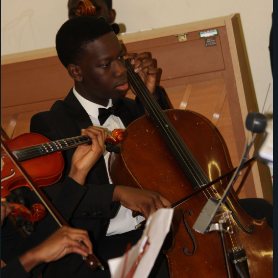
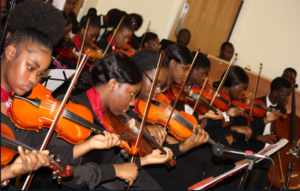
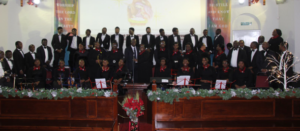
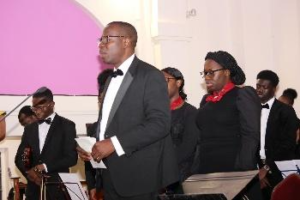
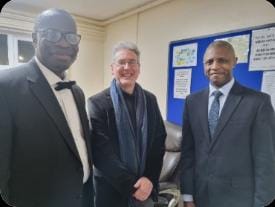
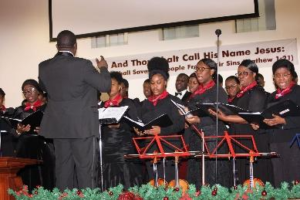
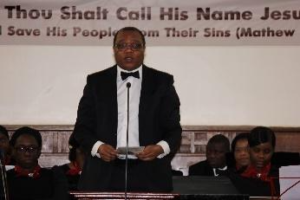
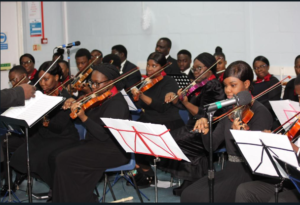
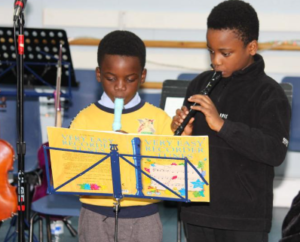
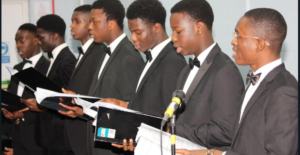
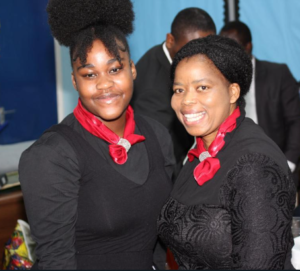
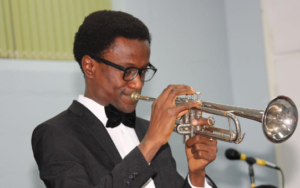
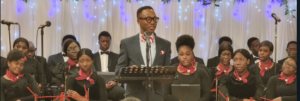
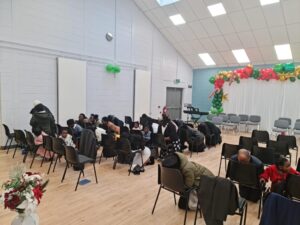
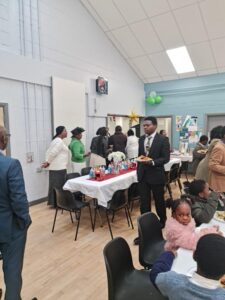
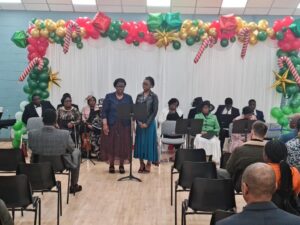
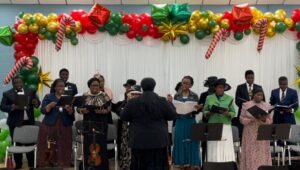
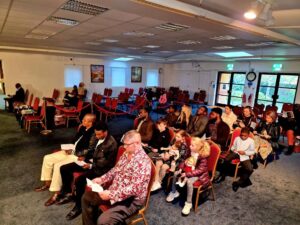
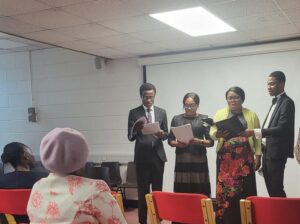
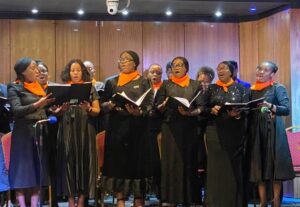
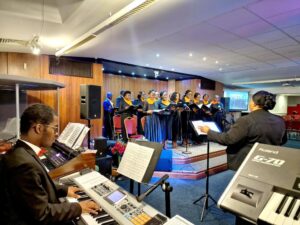
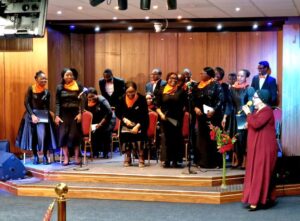
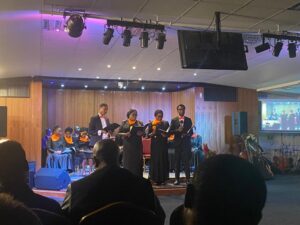
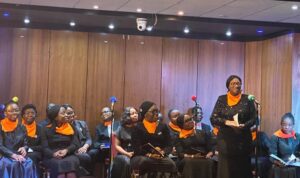
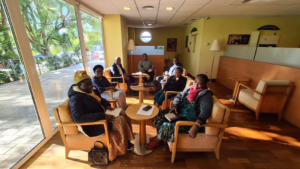
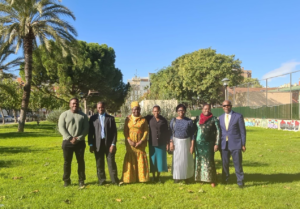
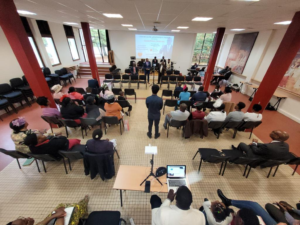
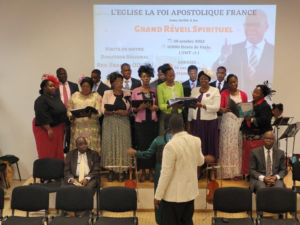
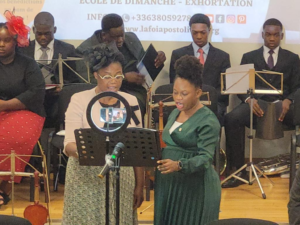
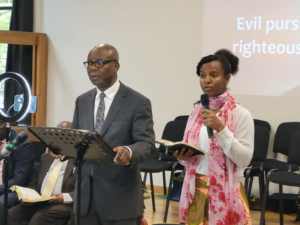
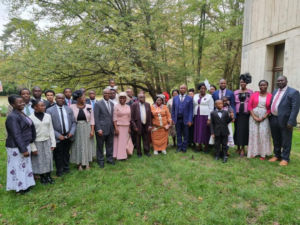
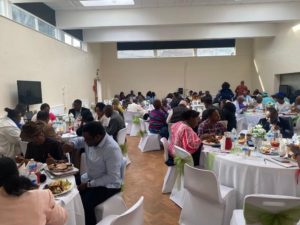
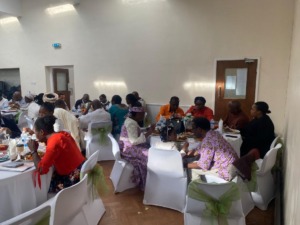
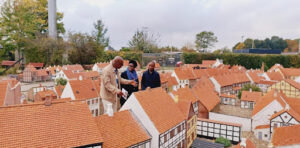
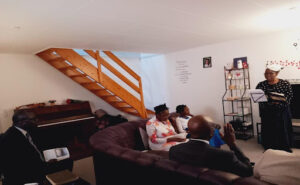
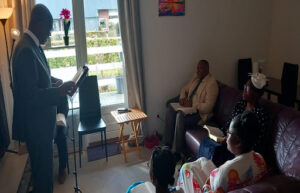
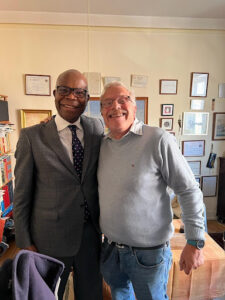
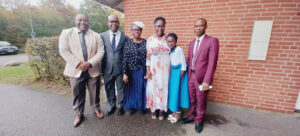
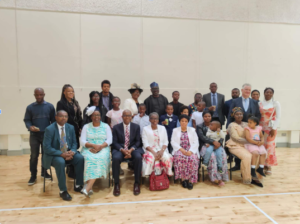
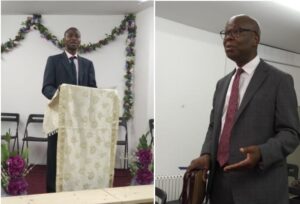
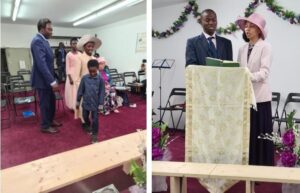
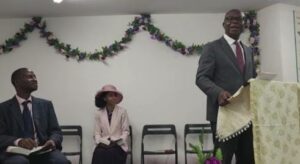
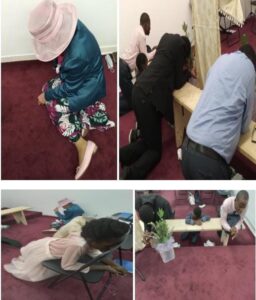
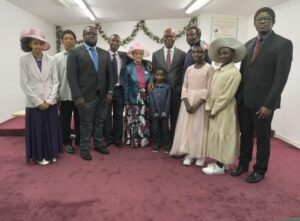
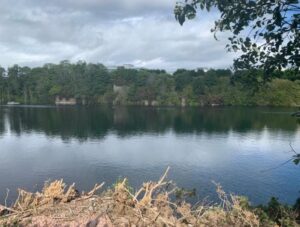
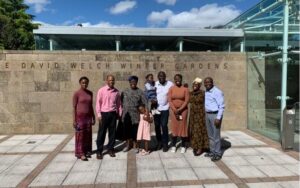
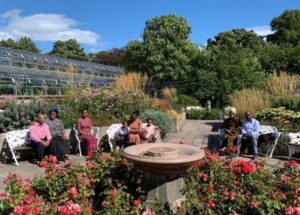
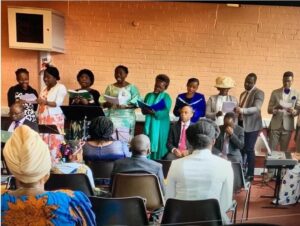
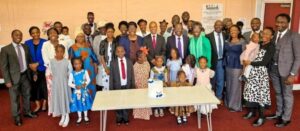
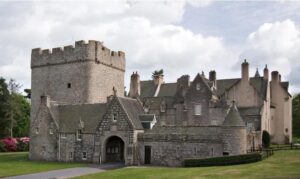
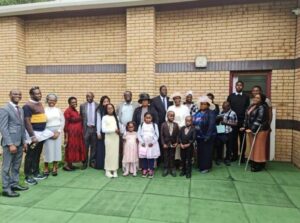
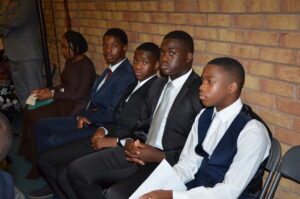
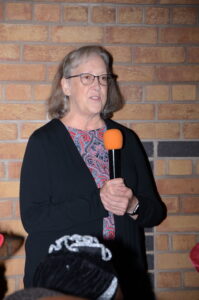 Click
Click 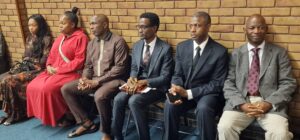
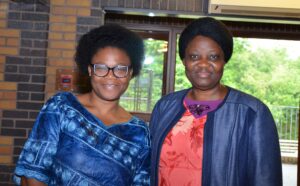
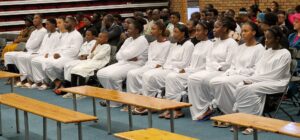 Click
Click 